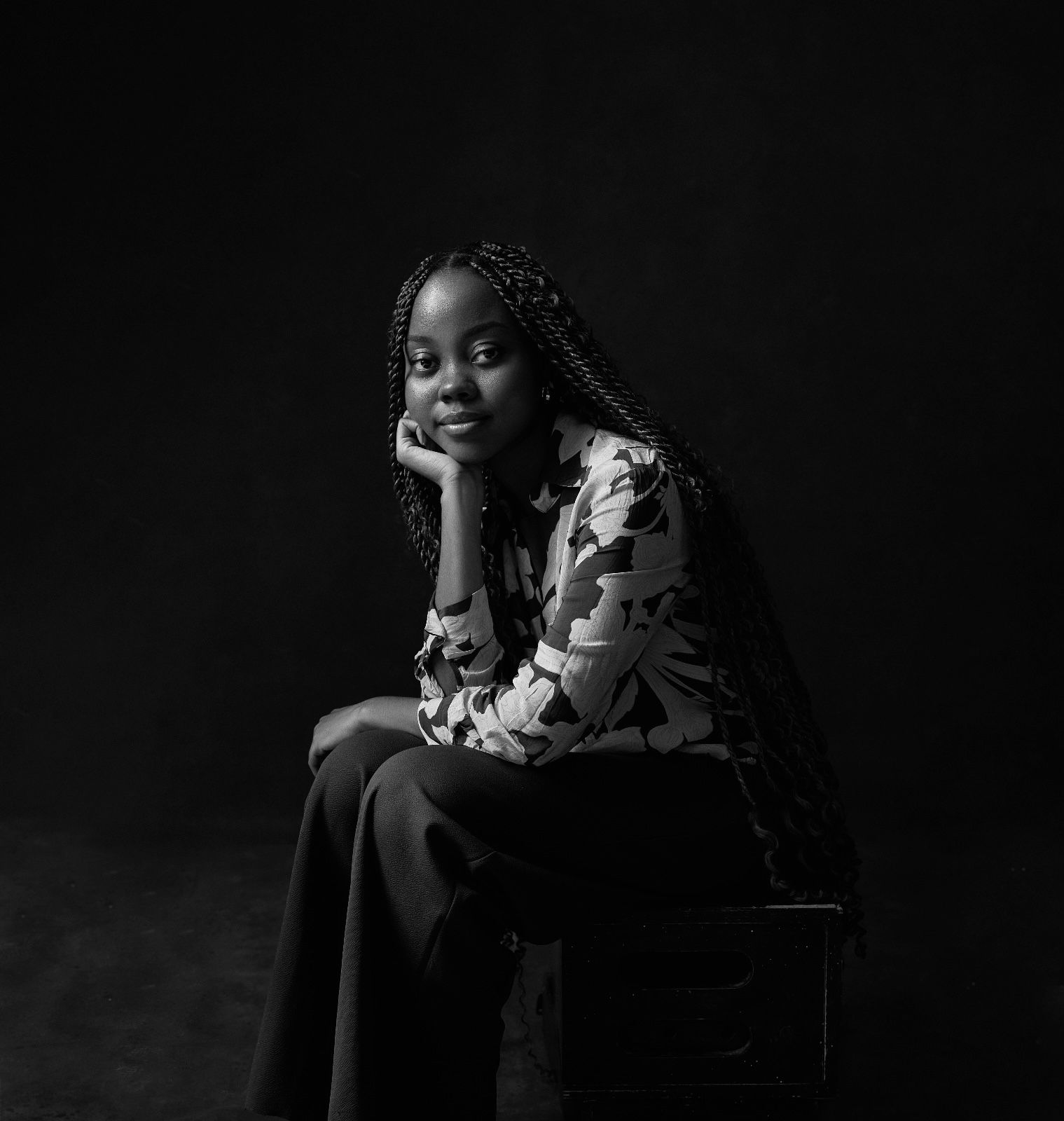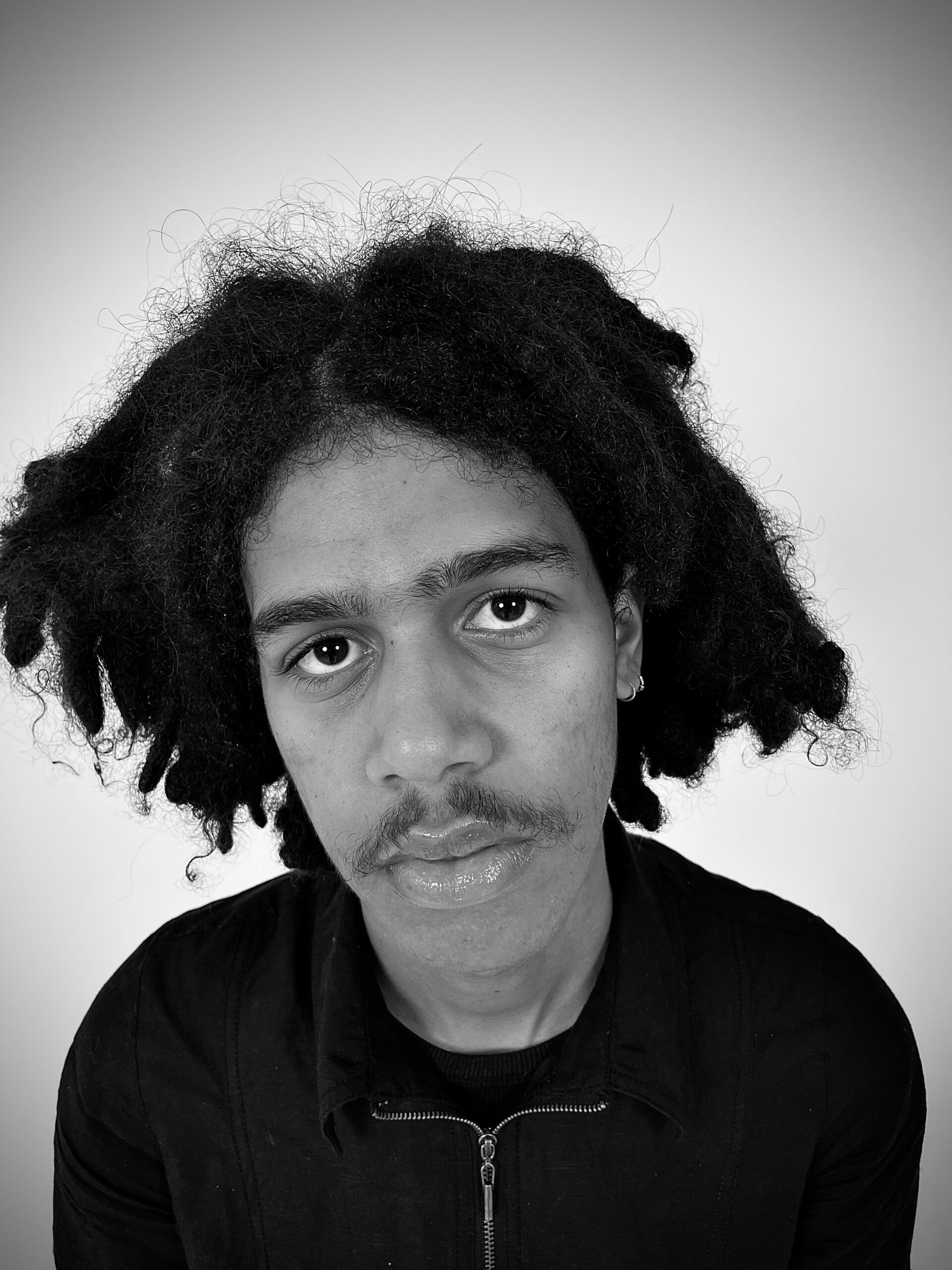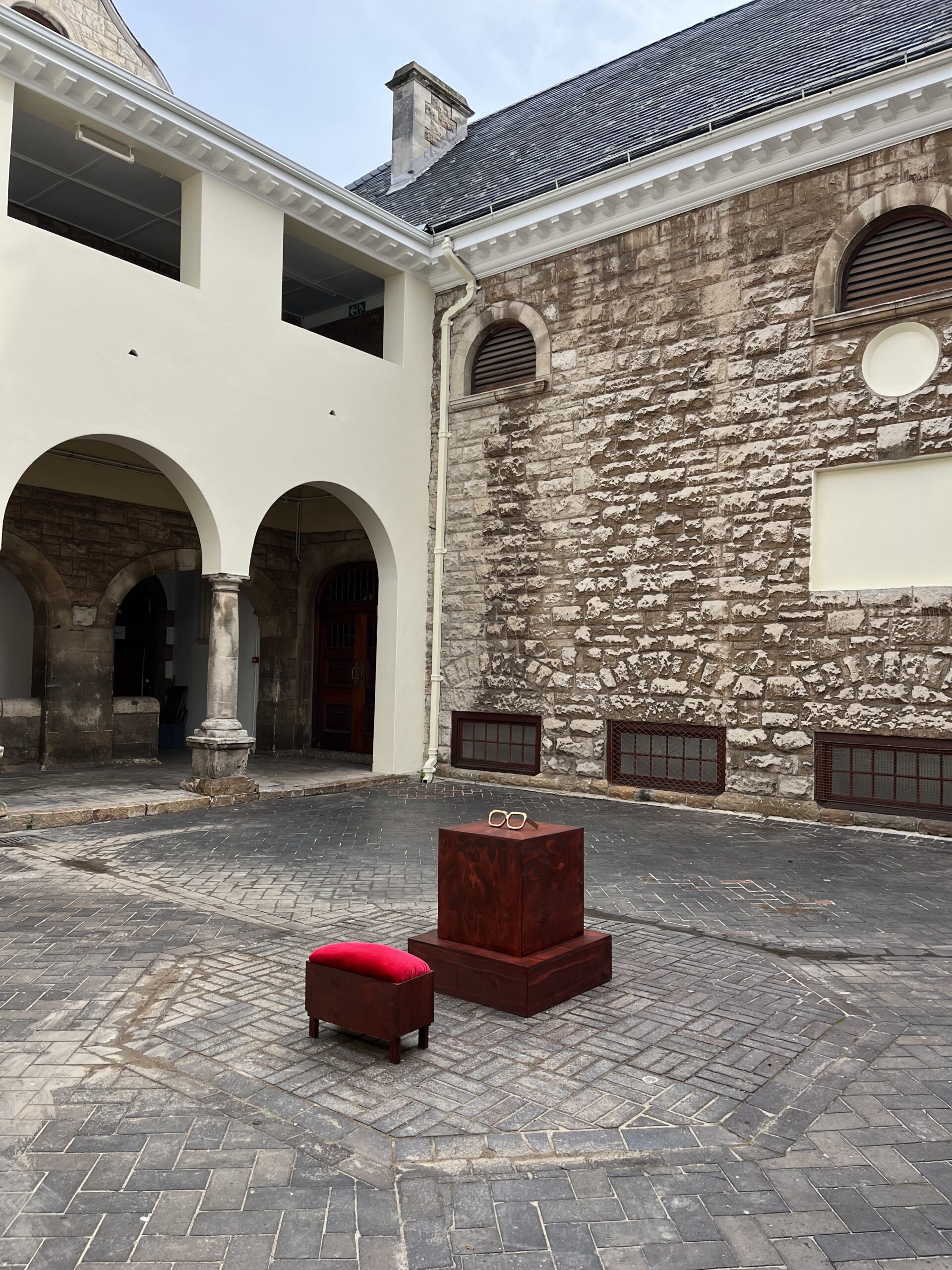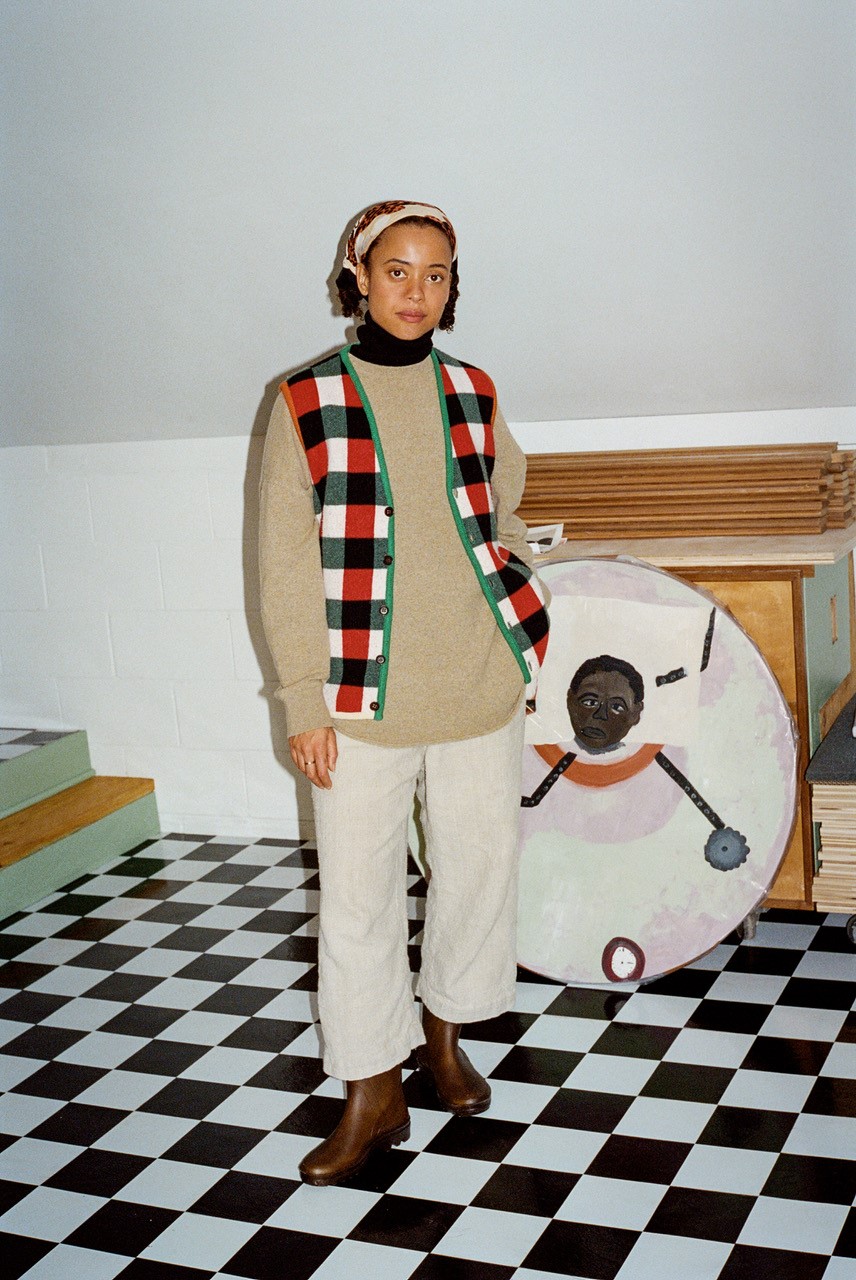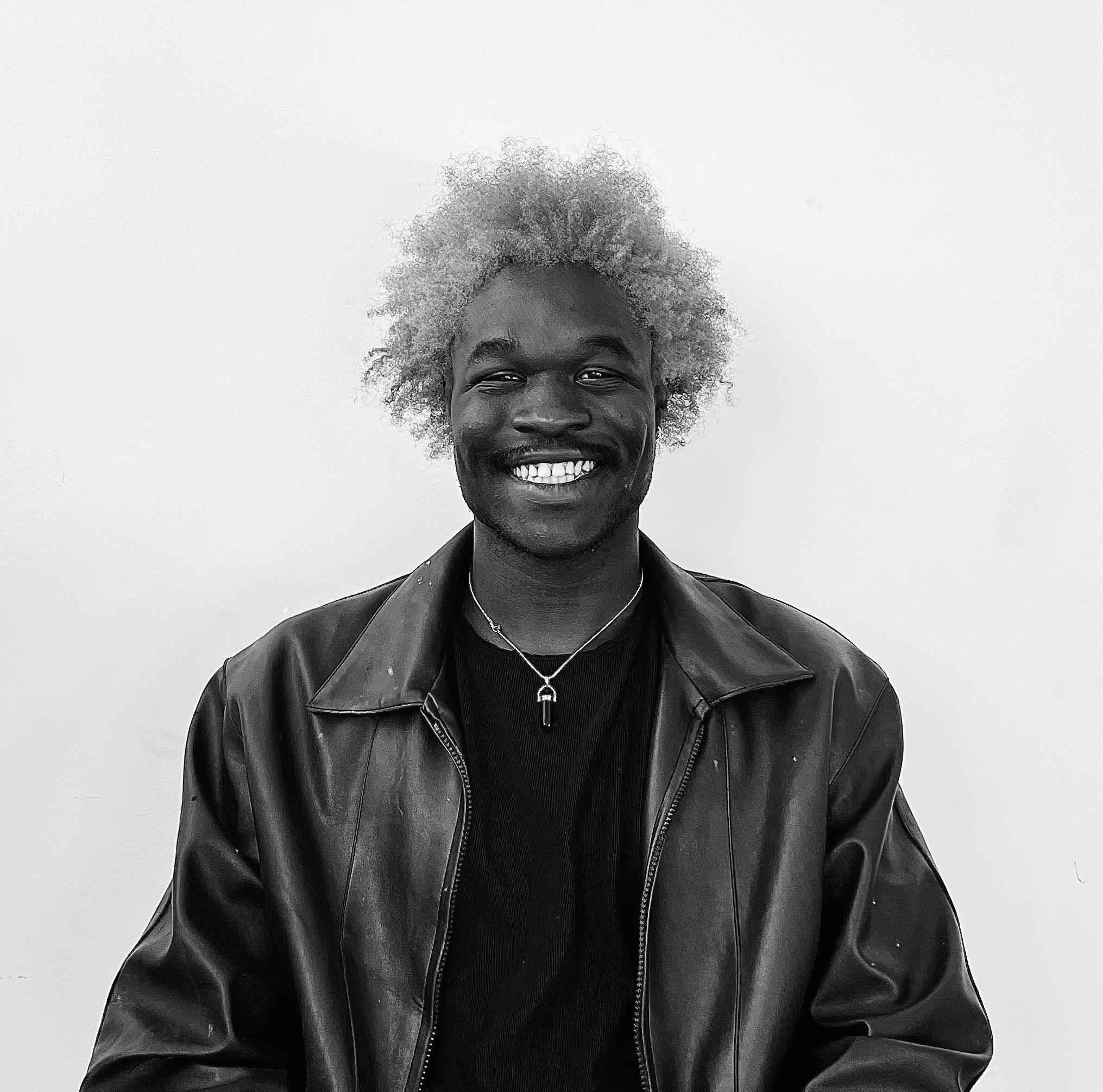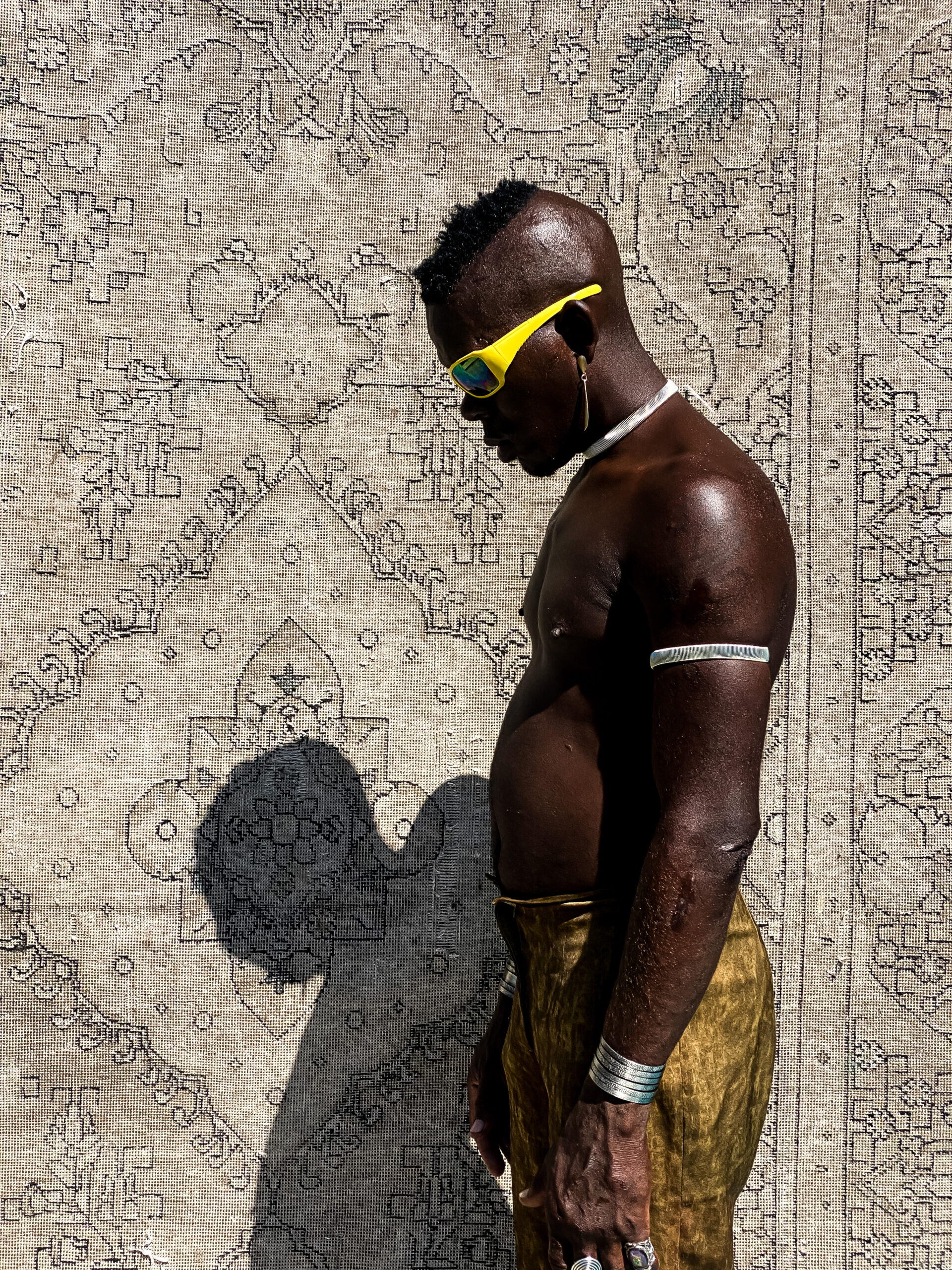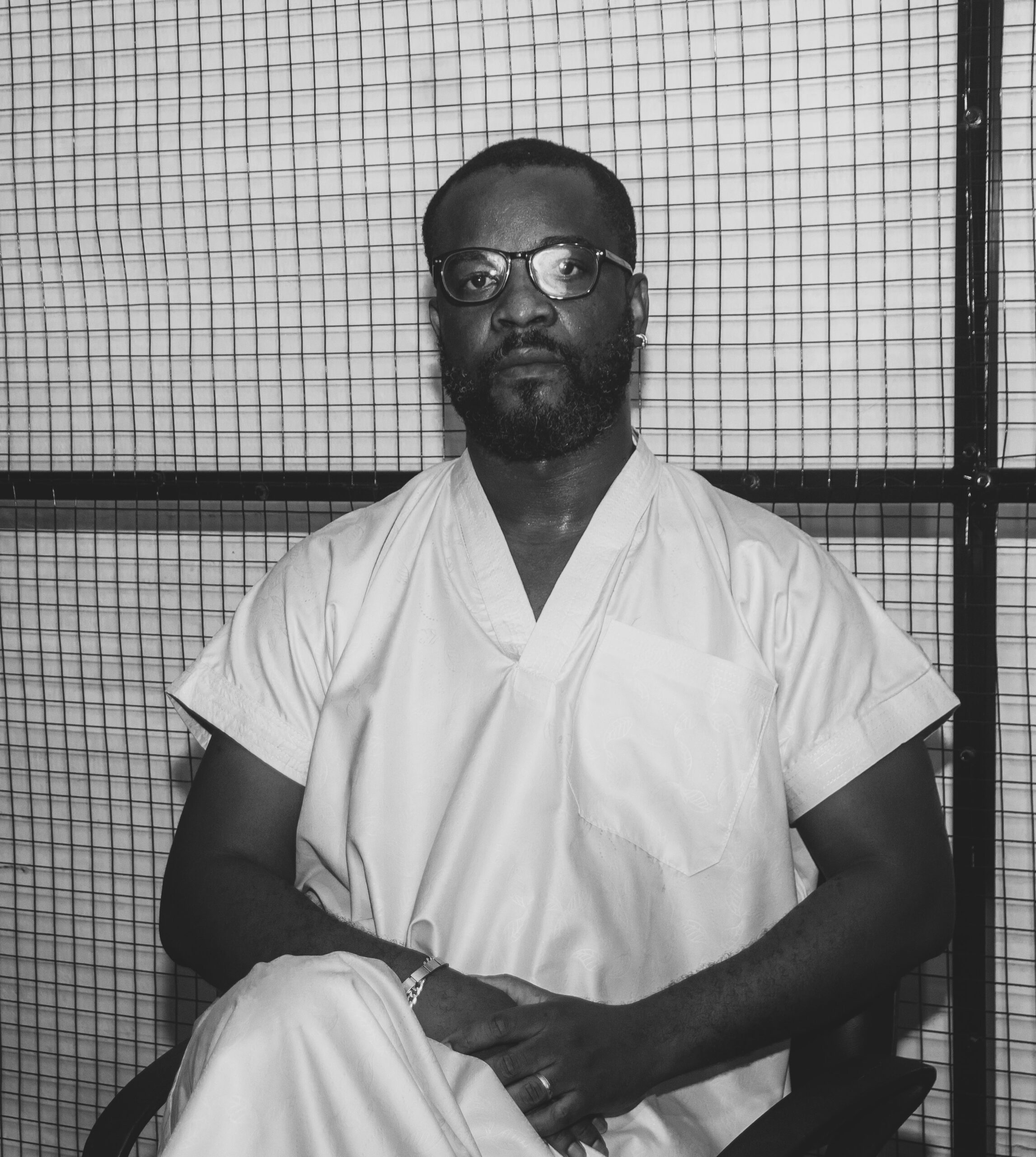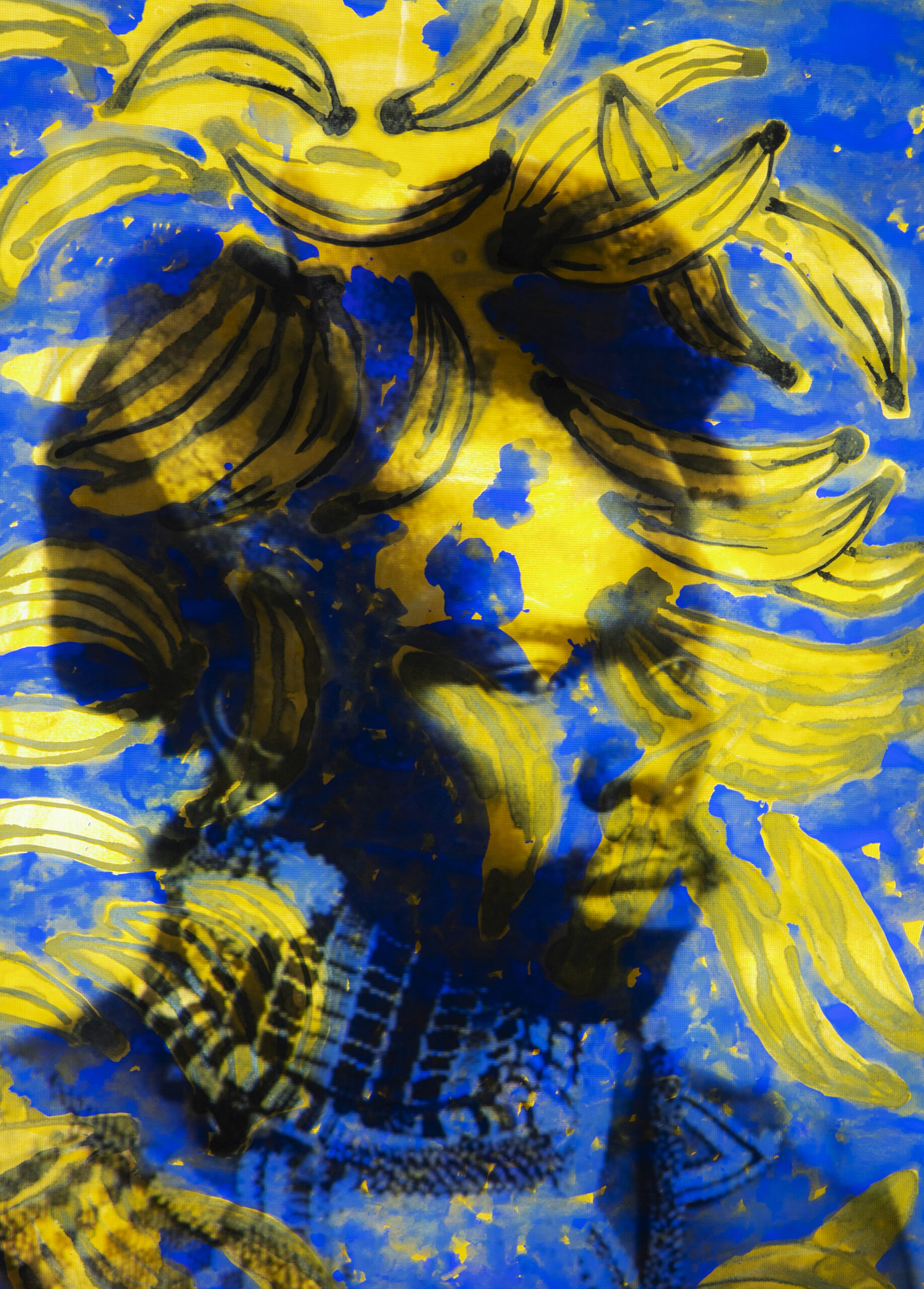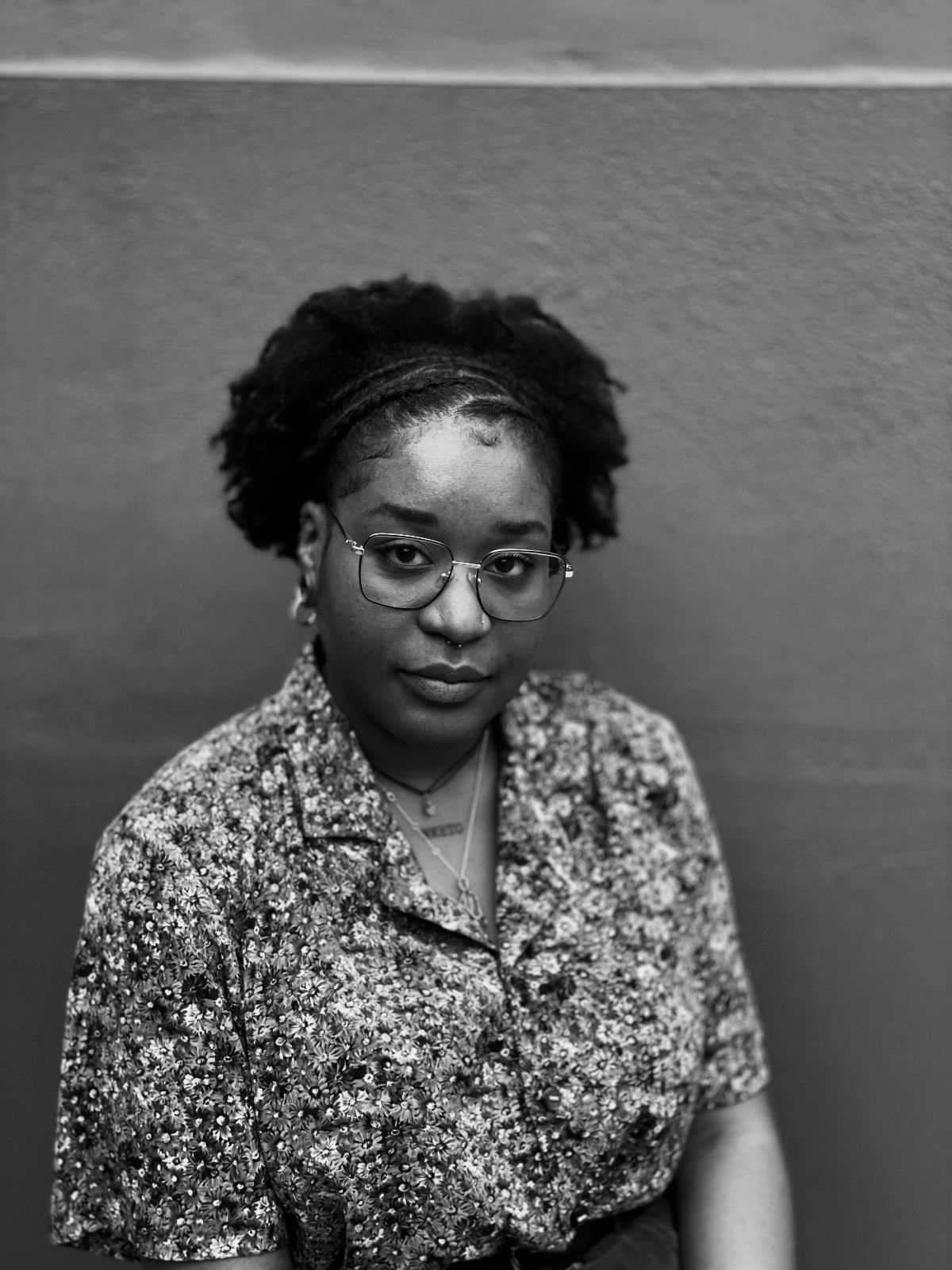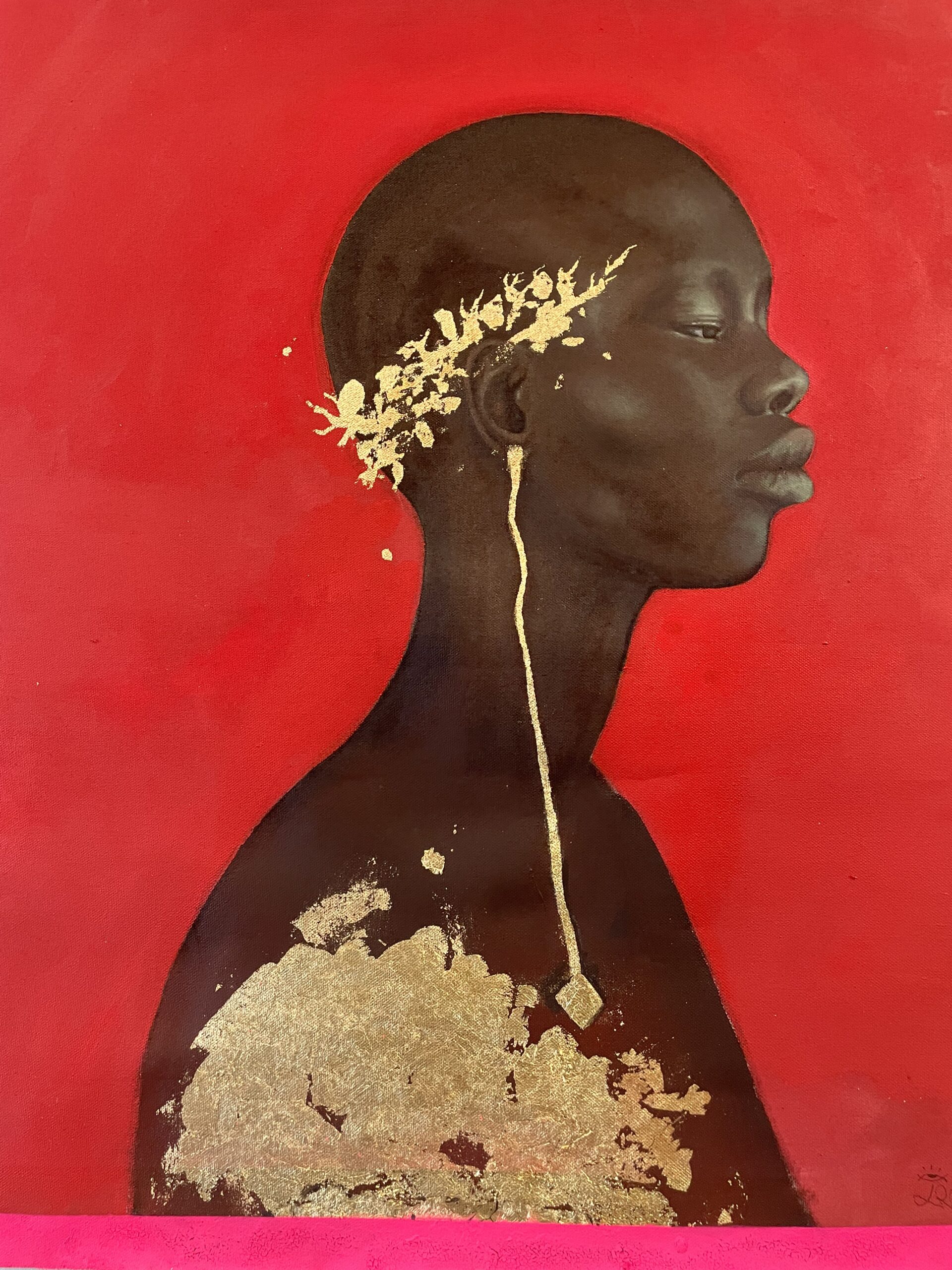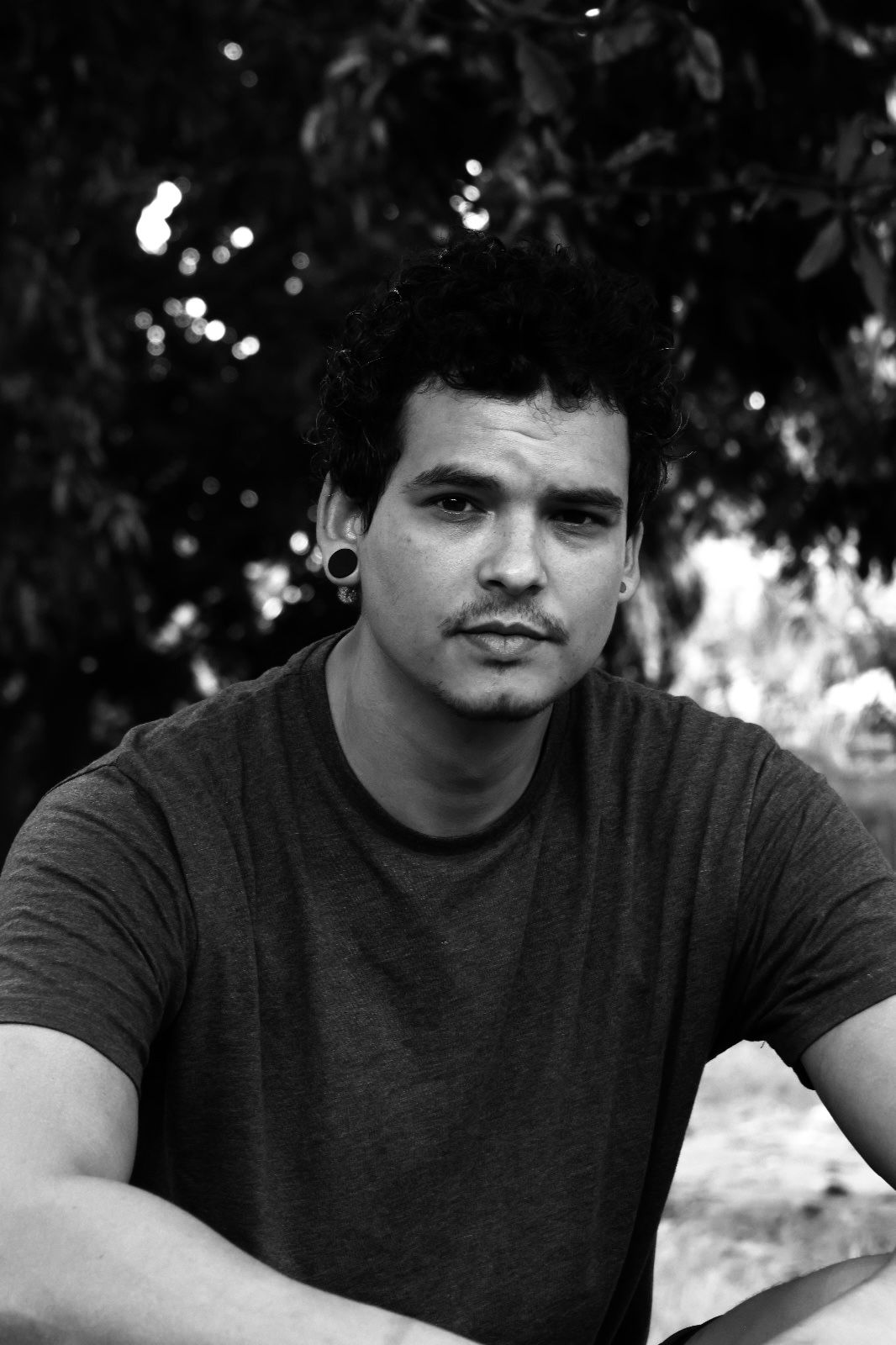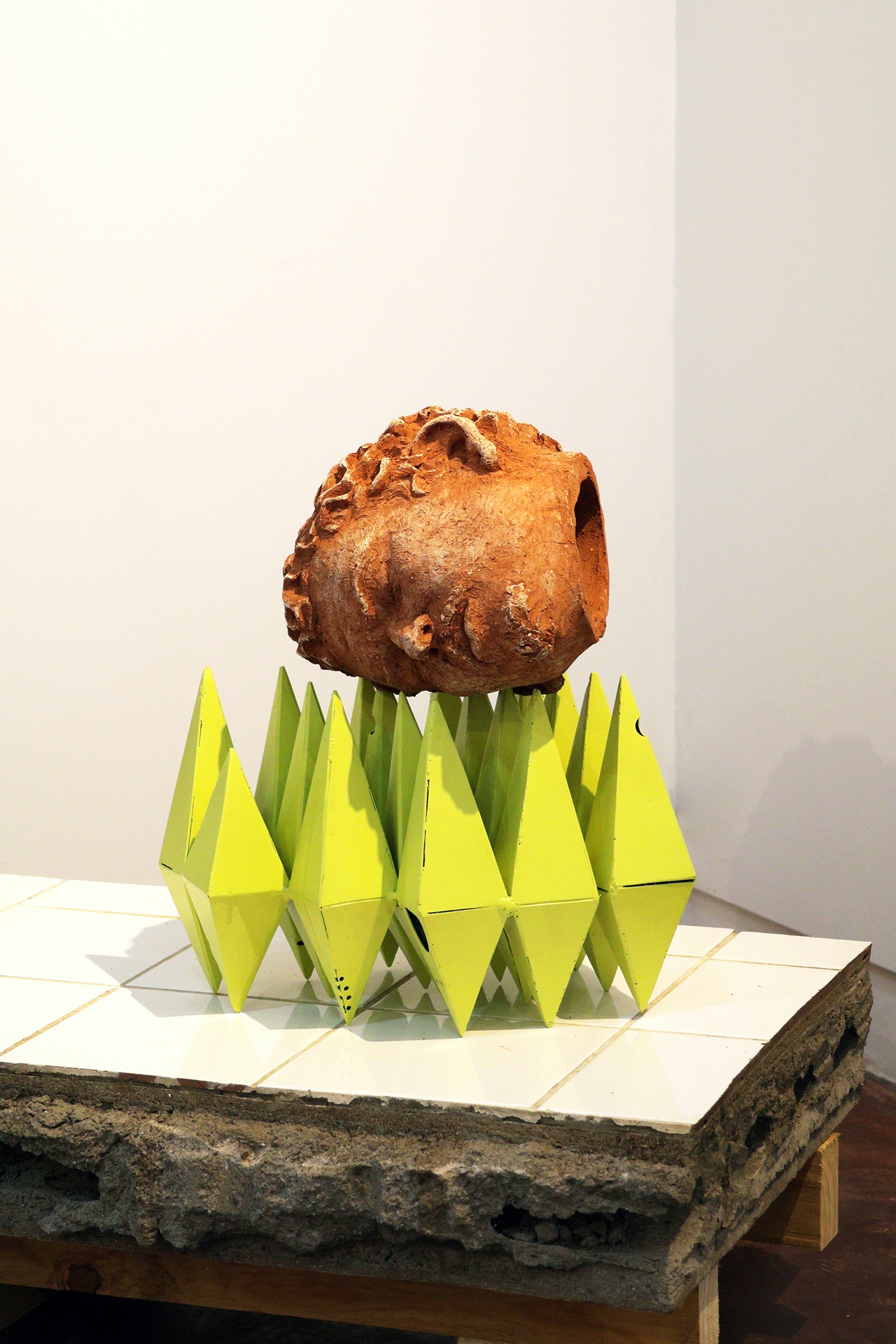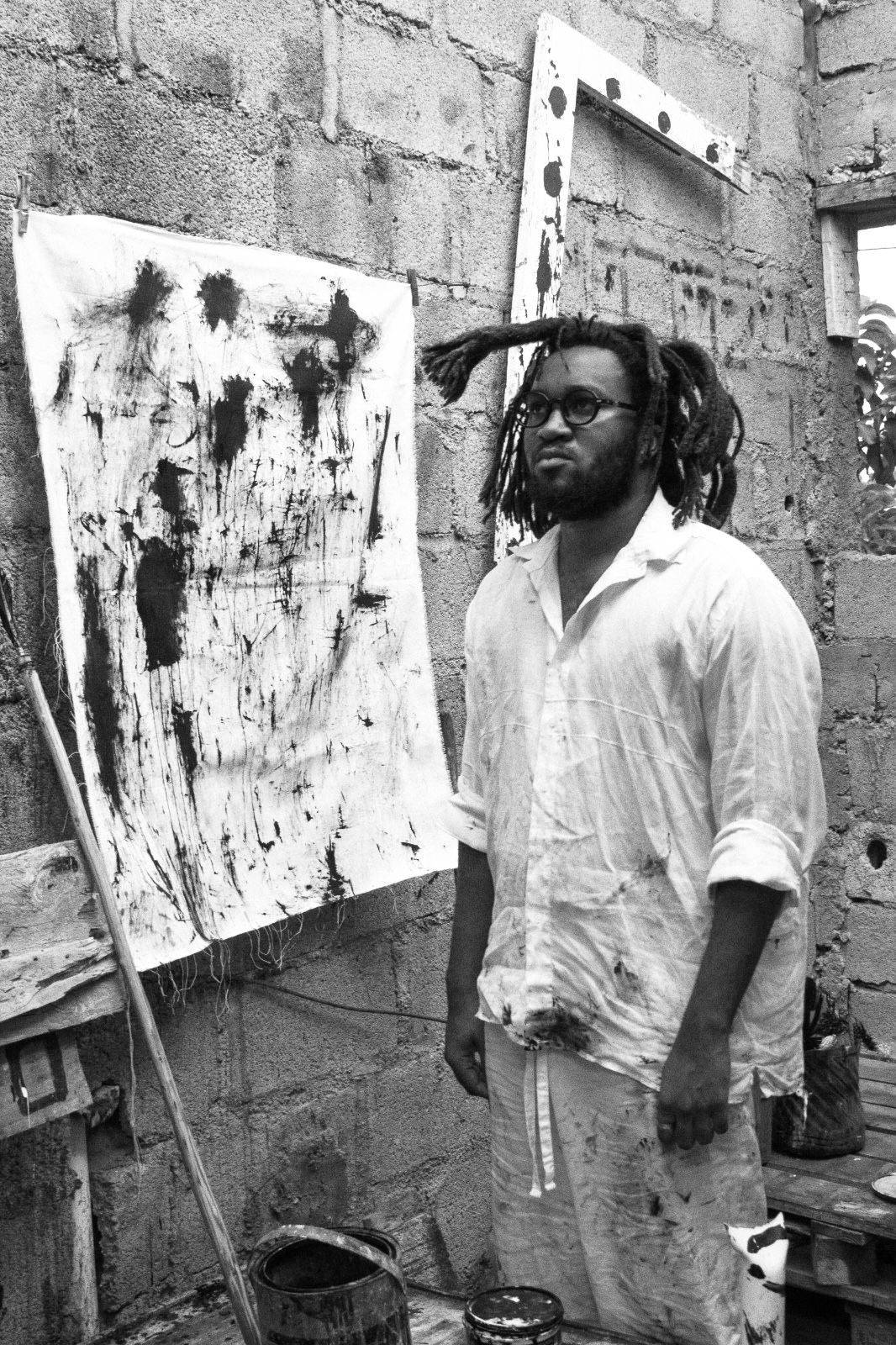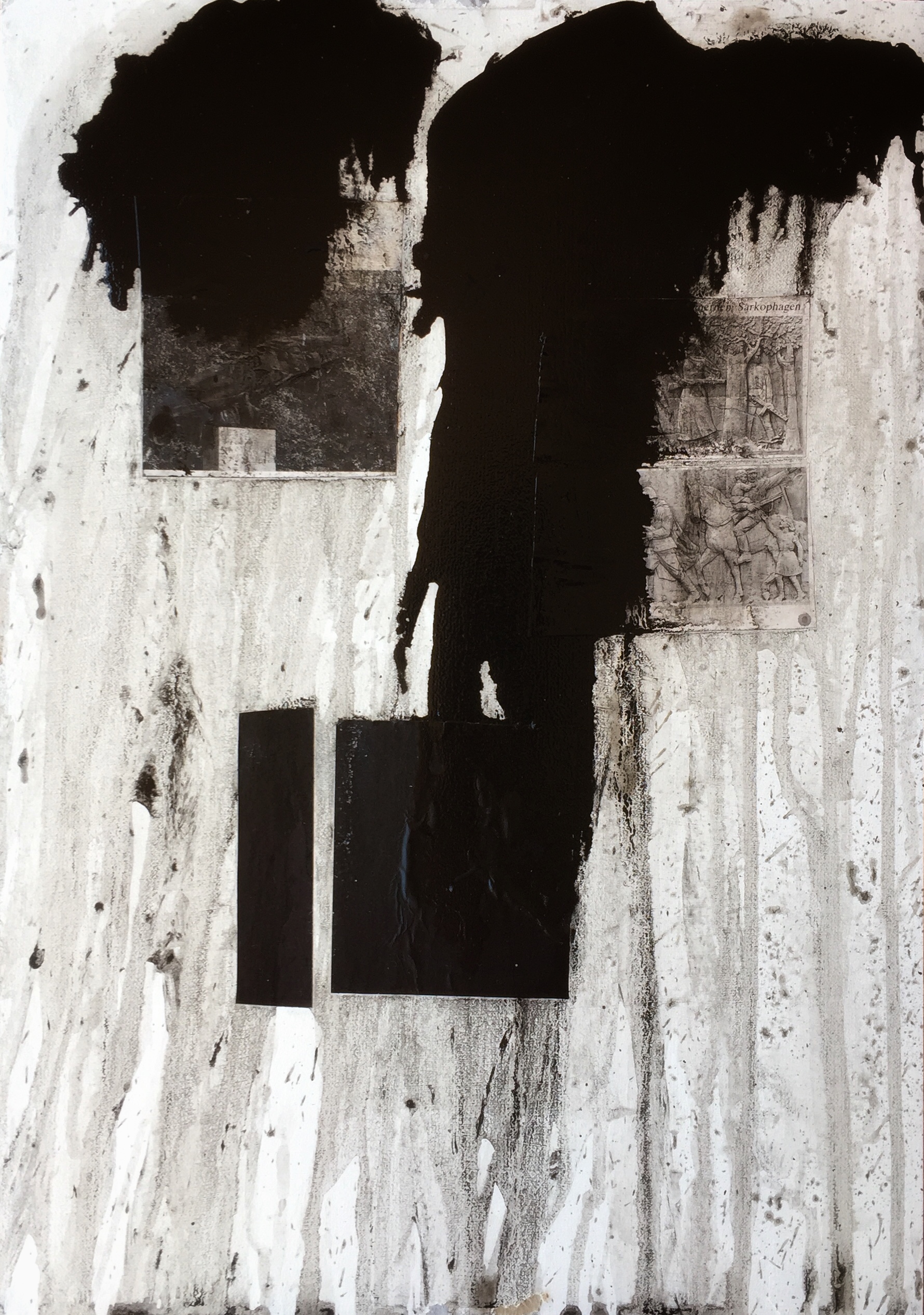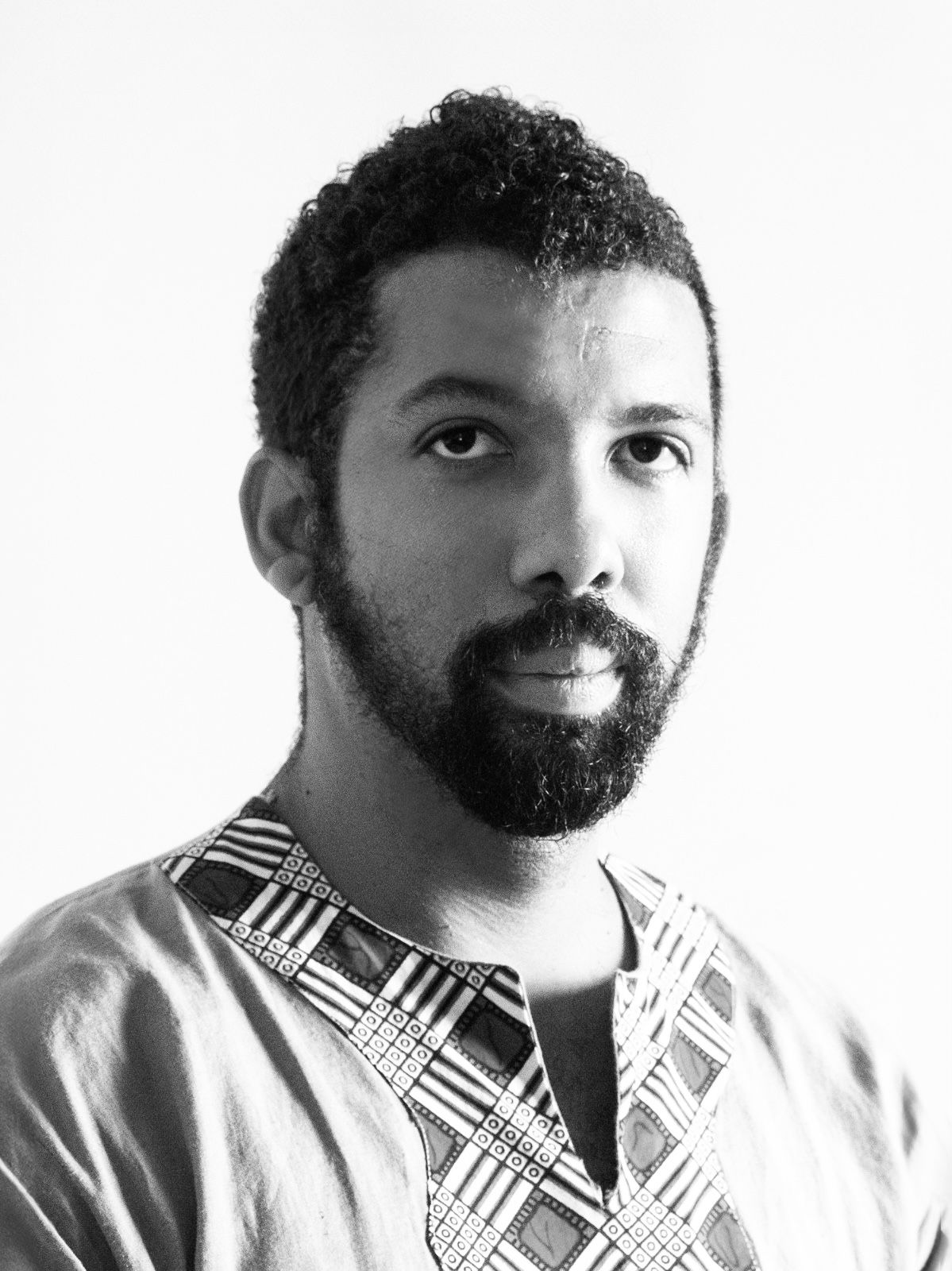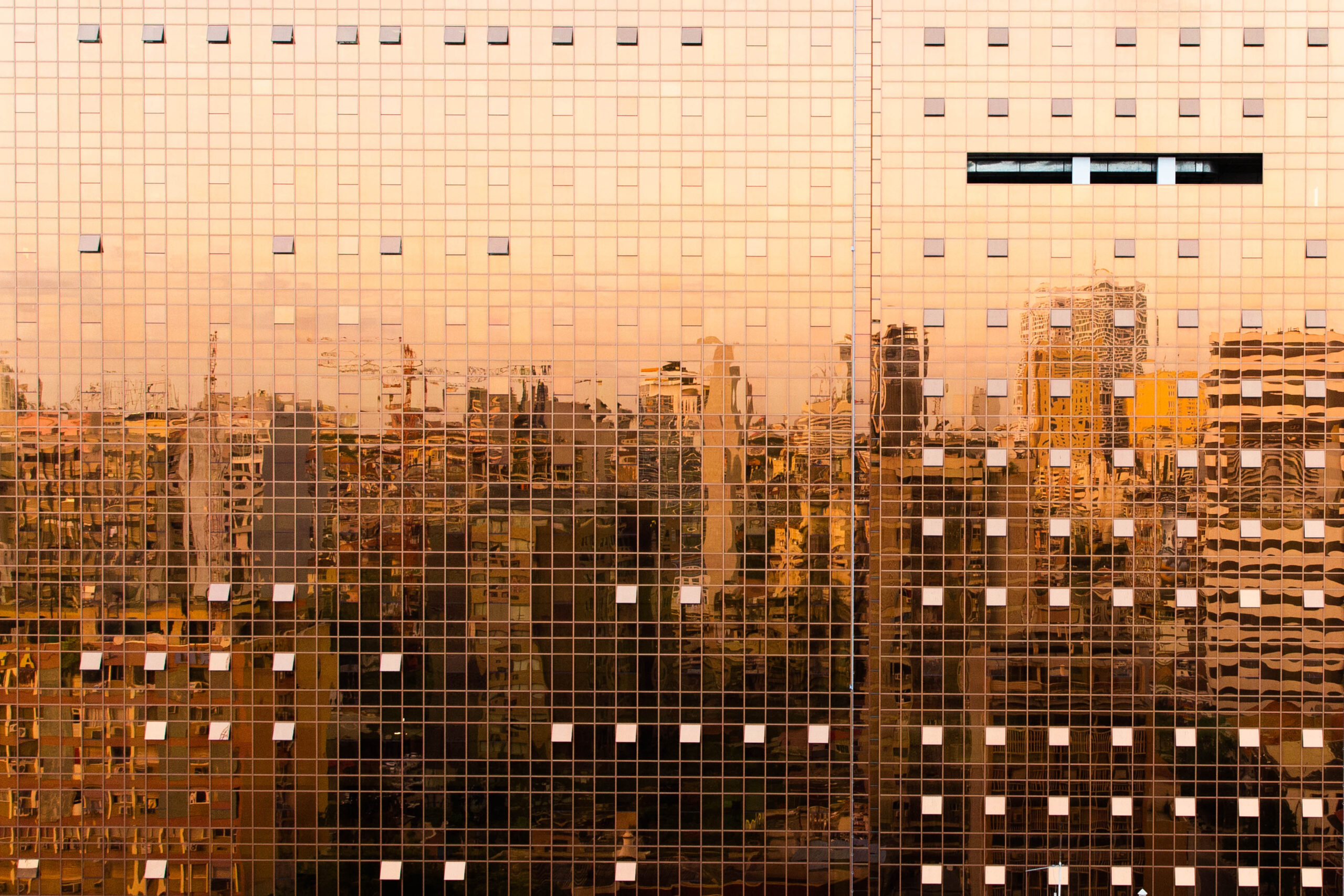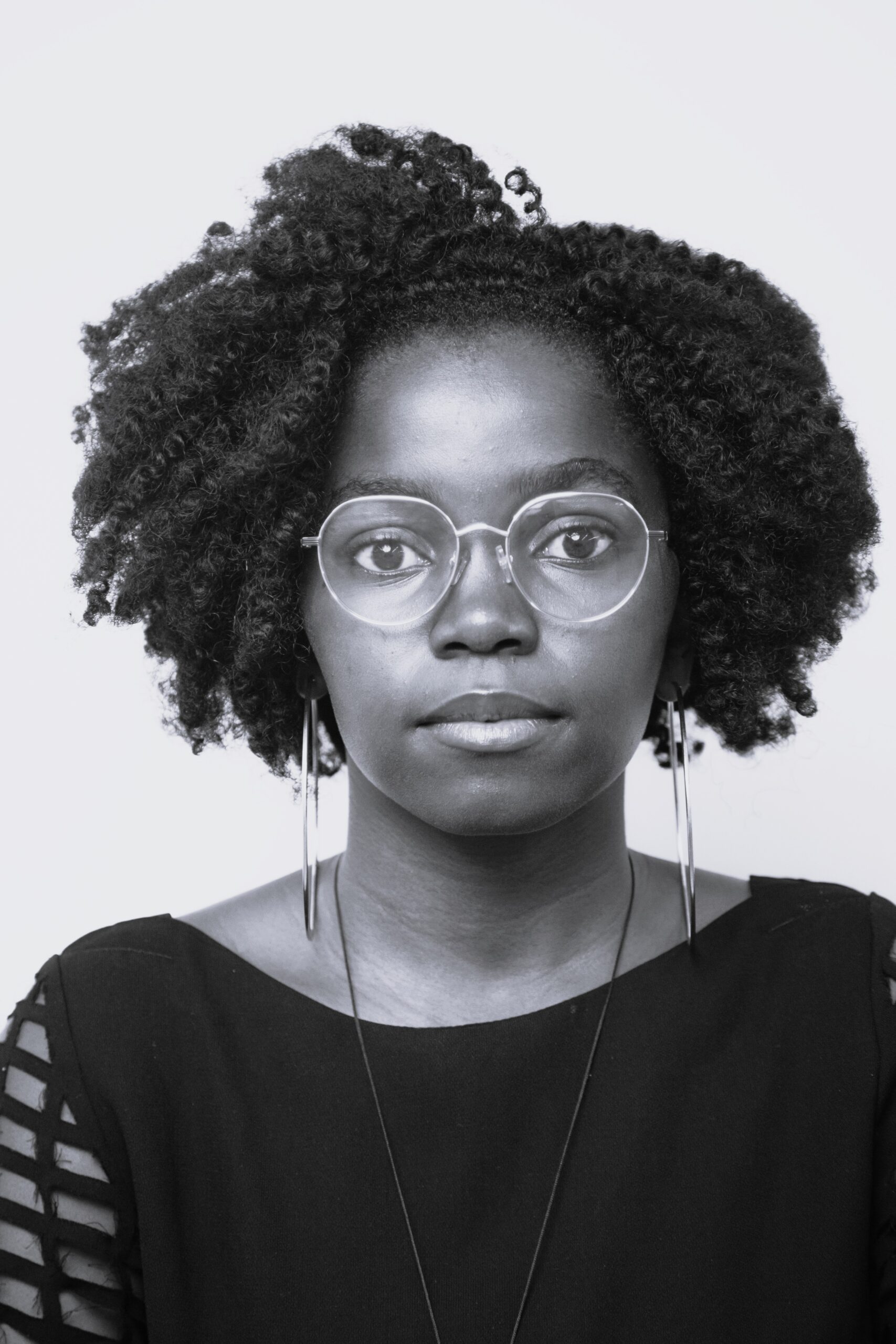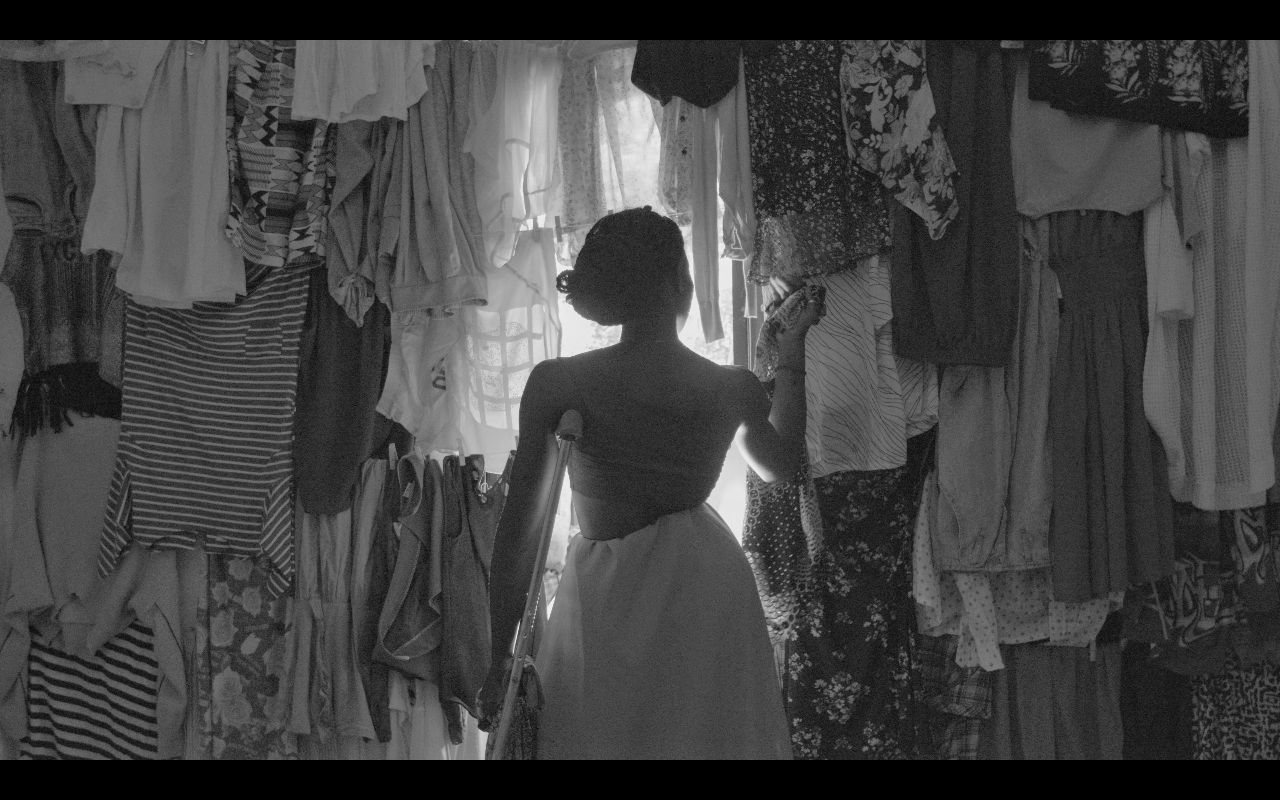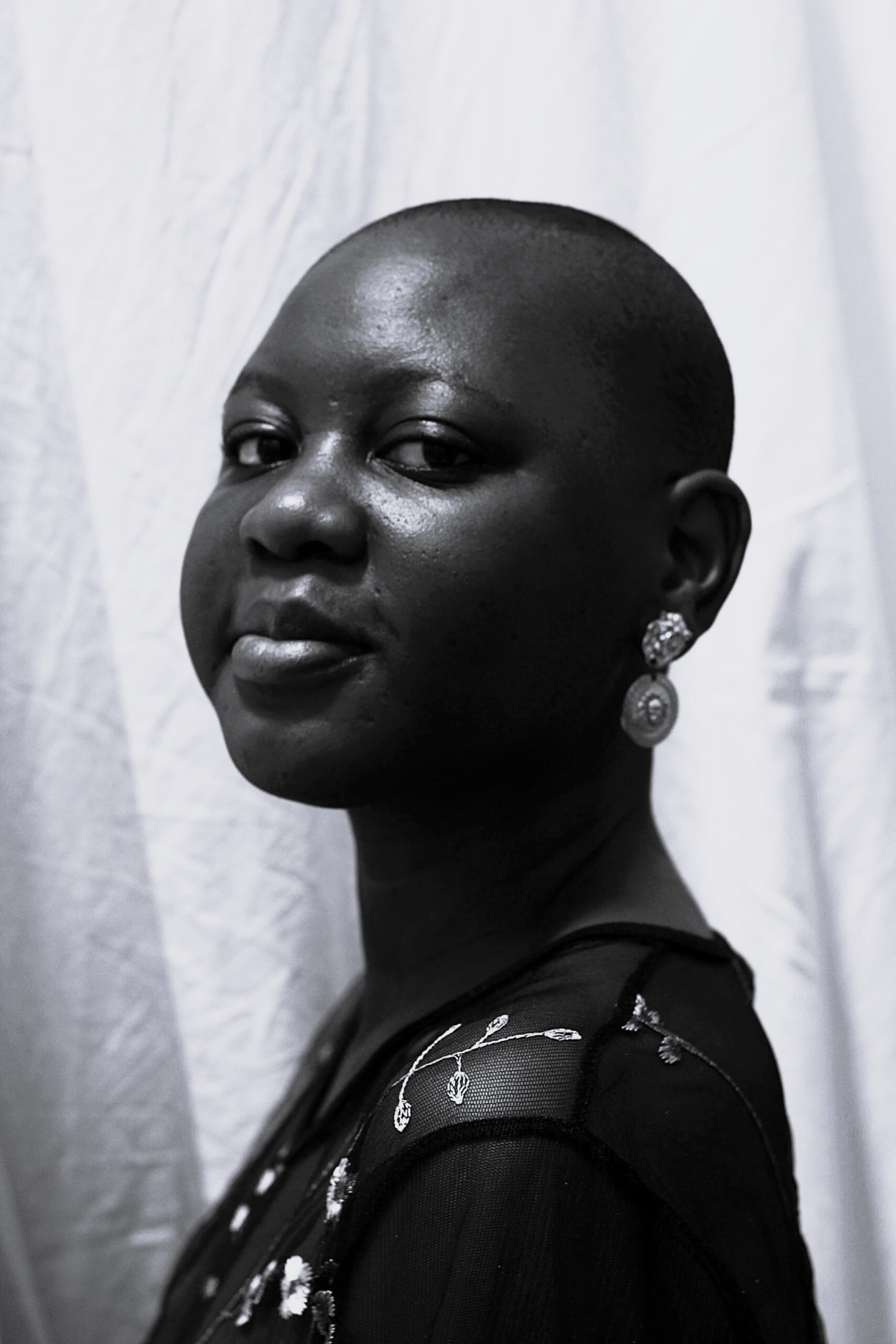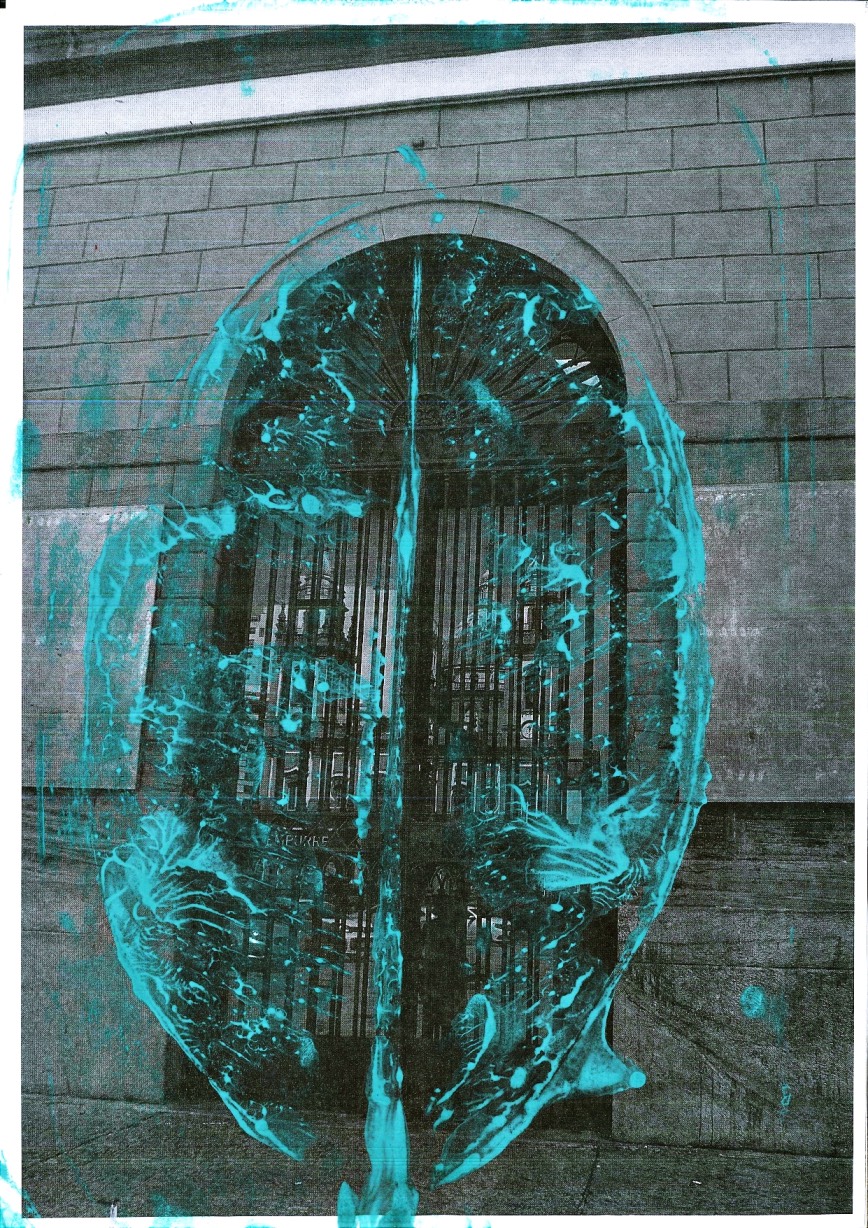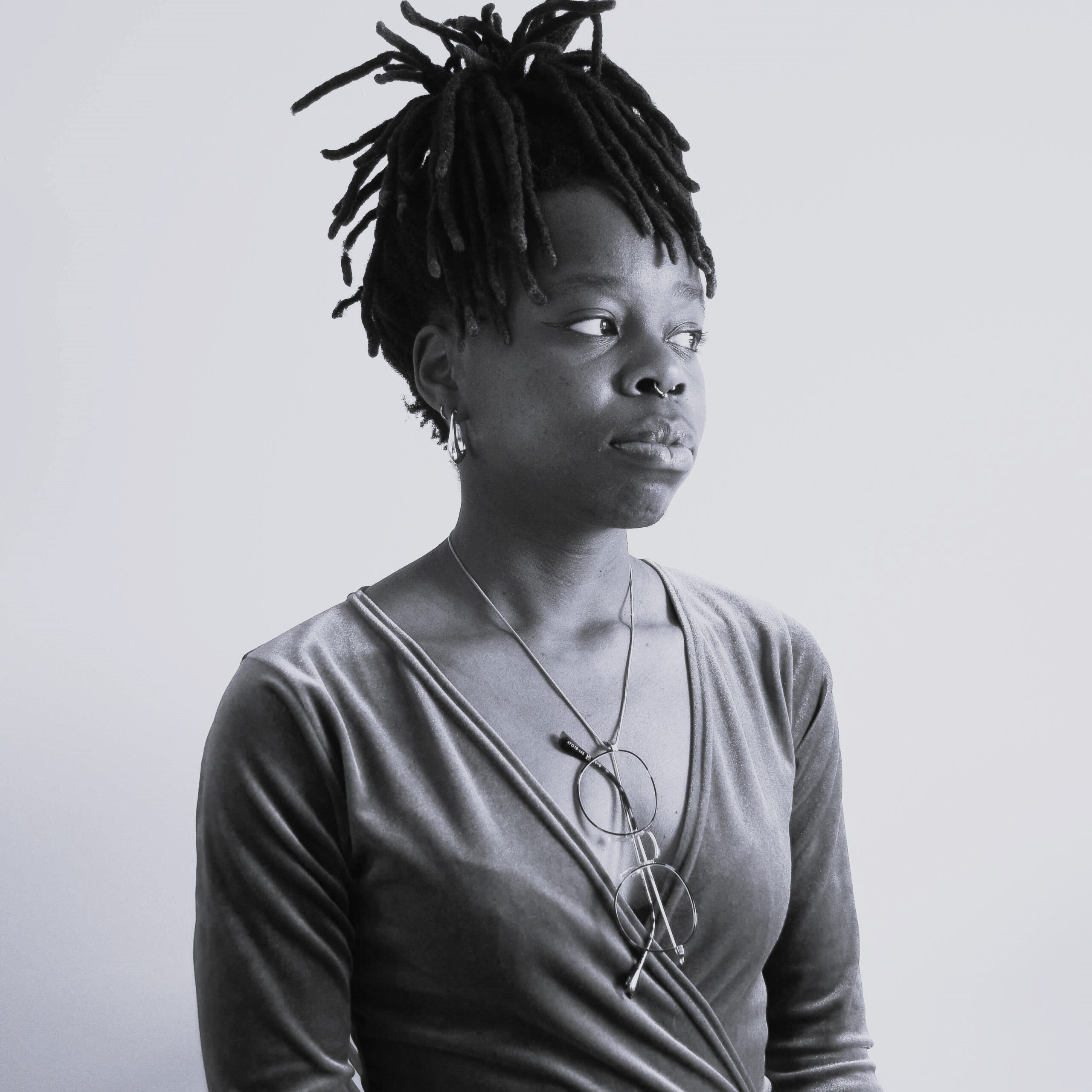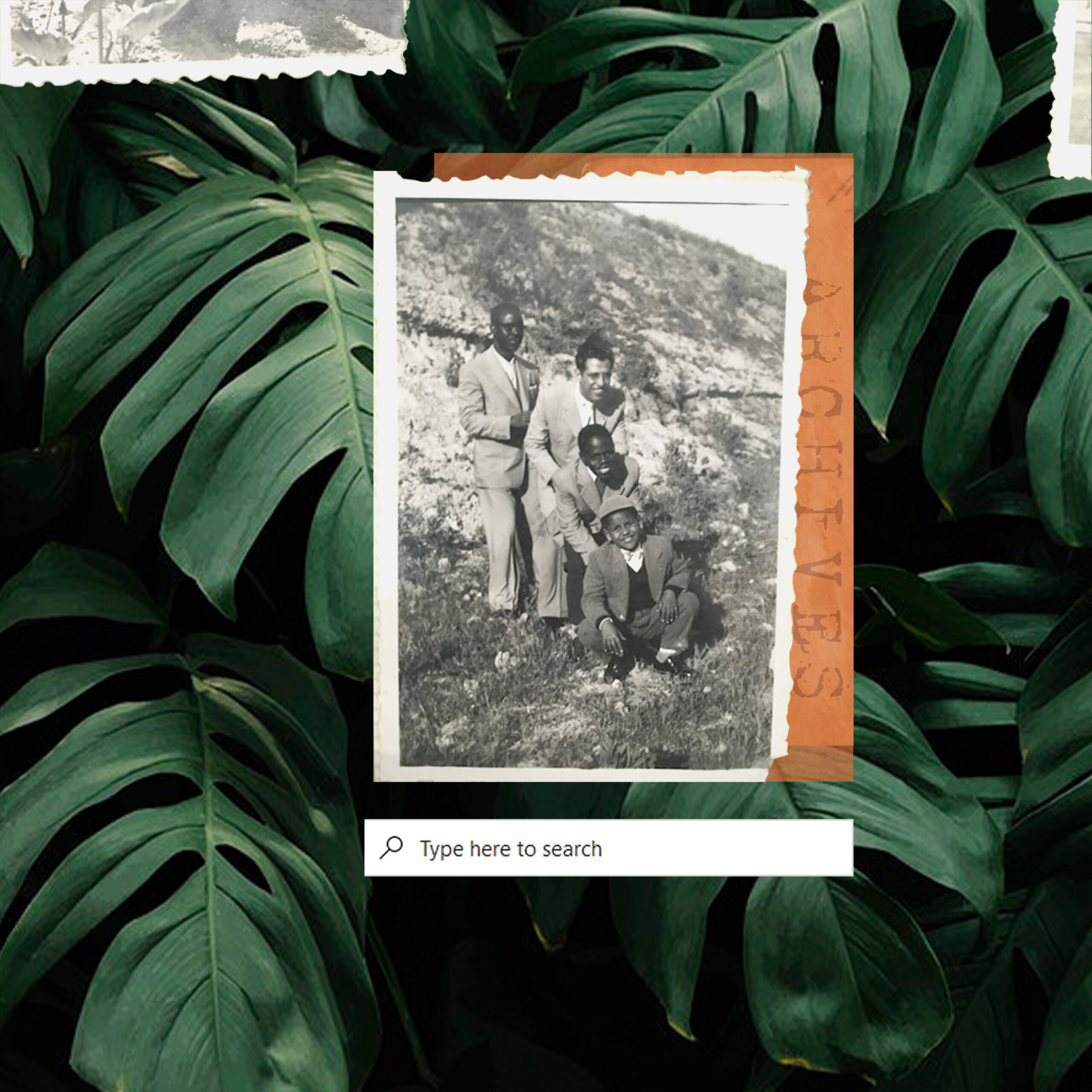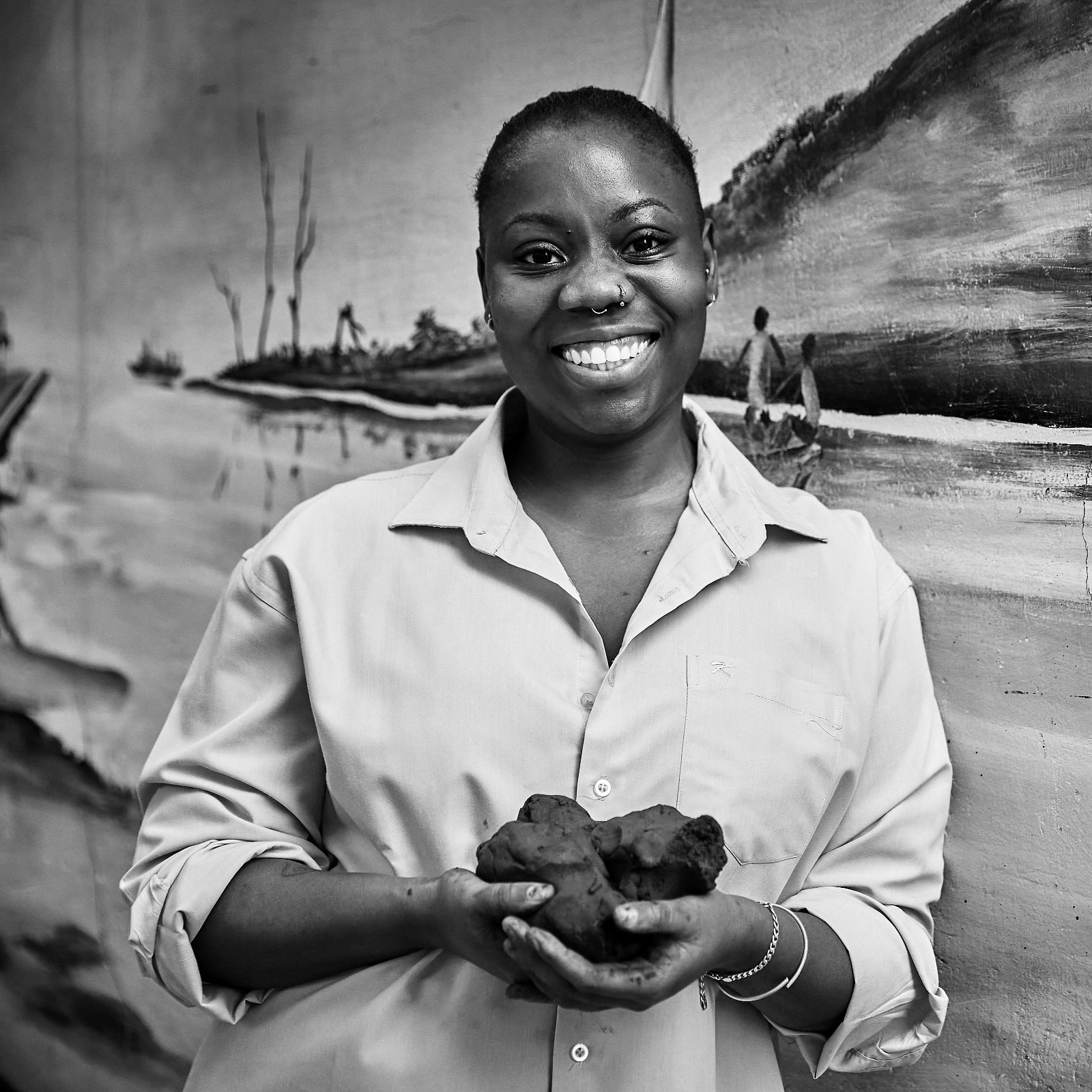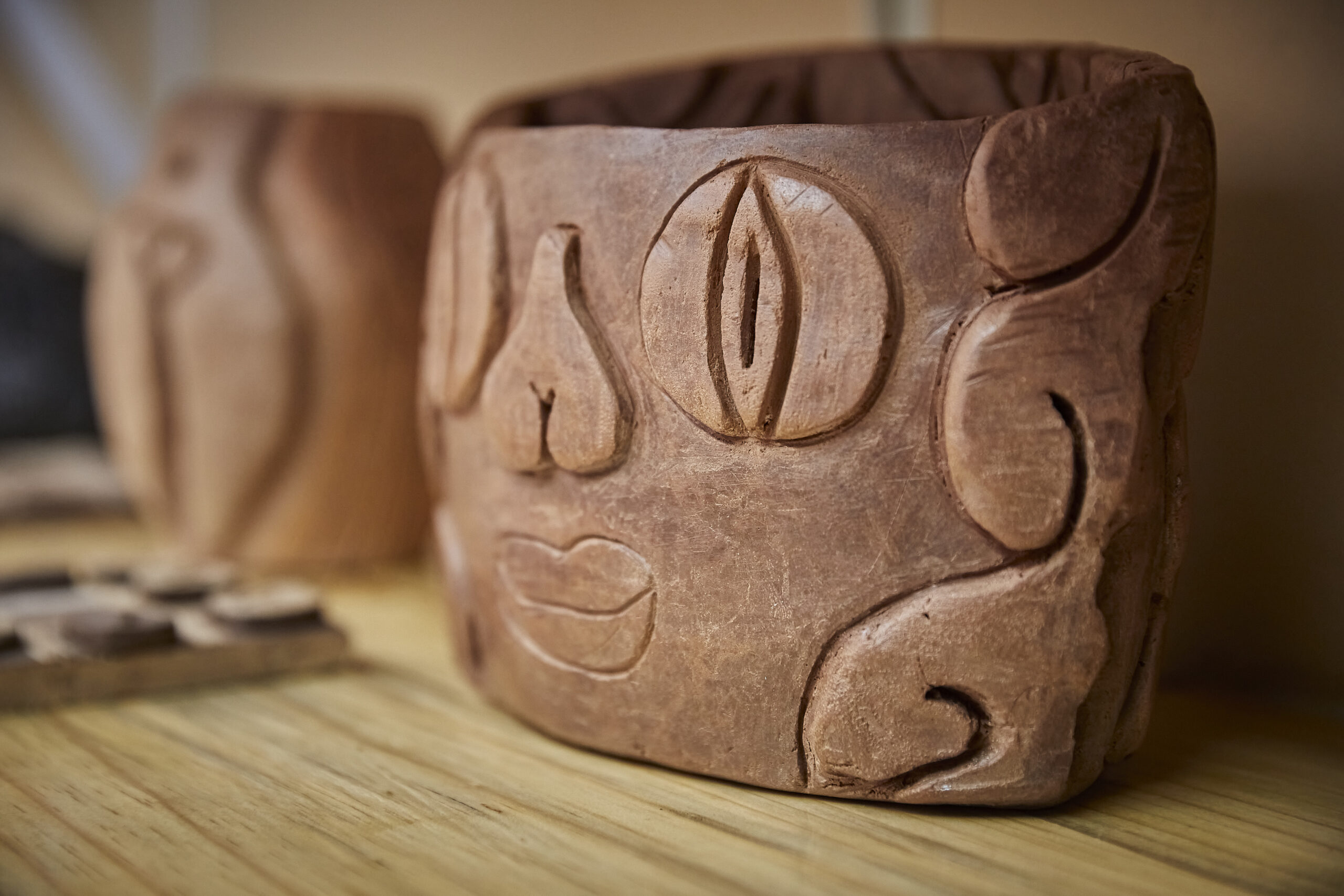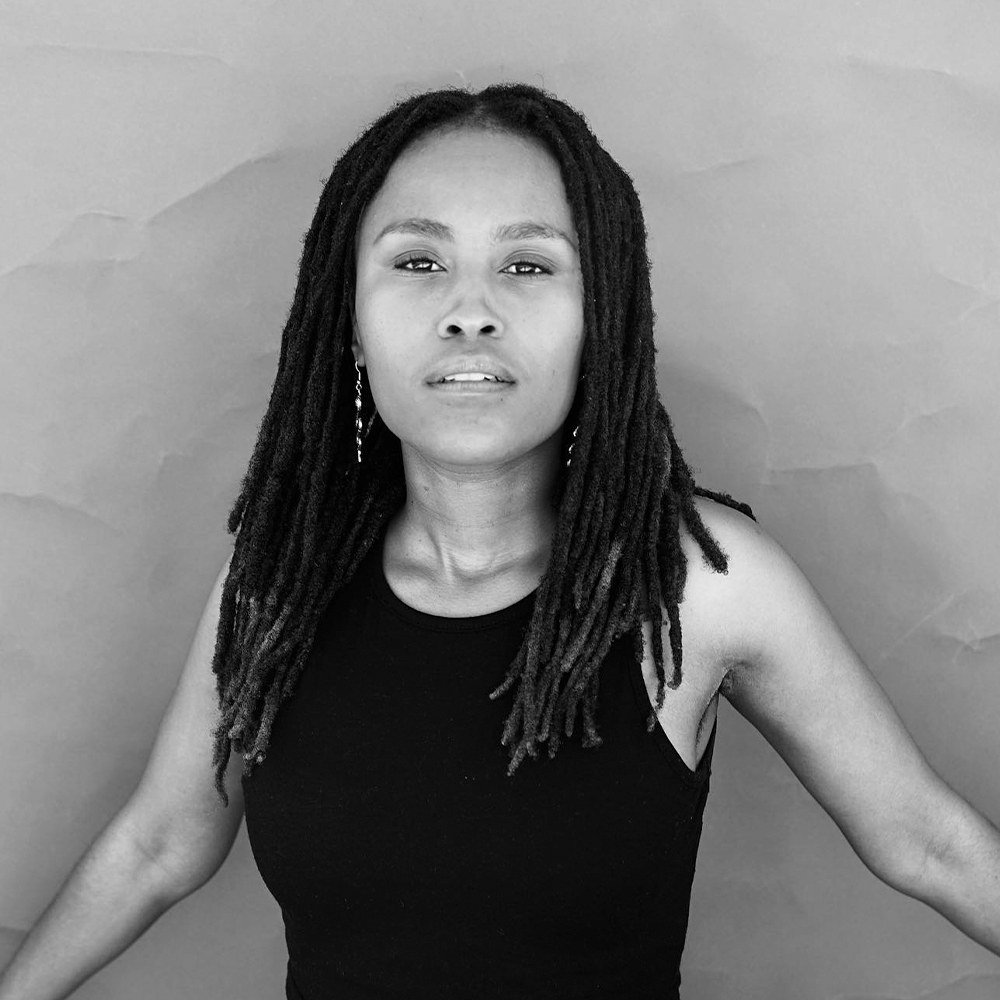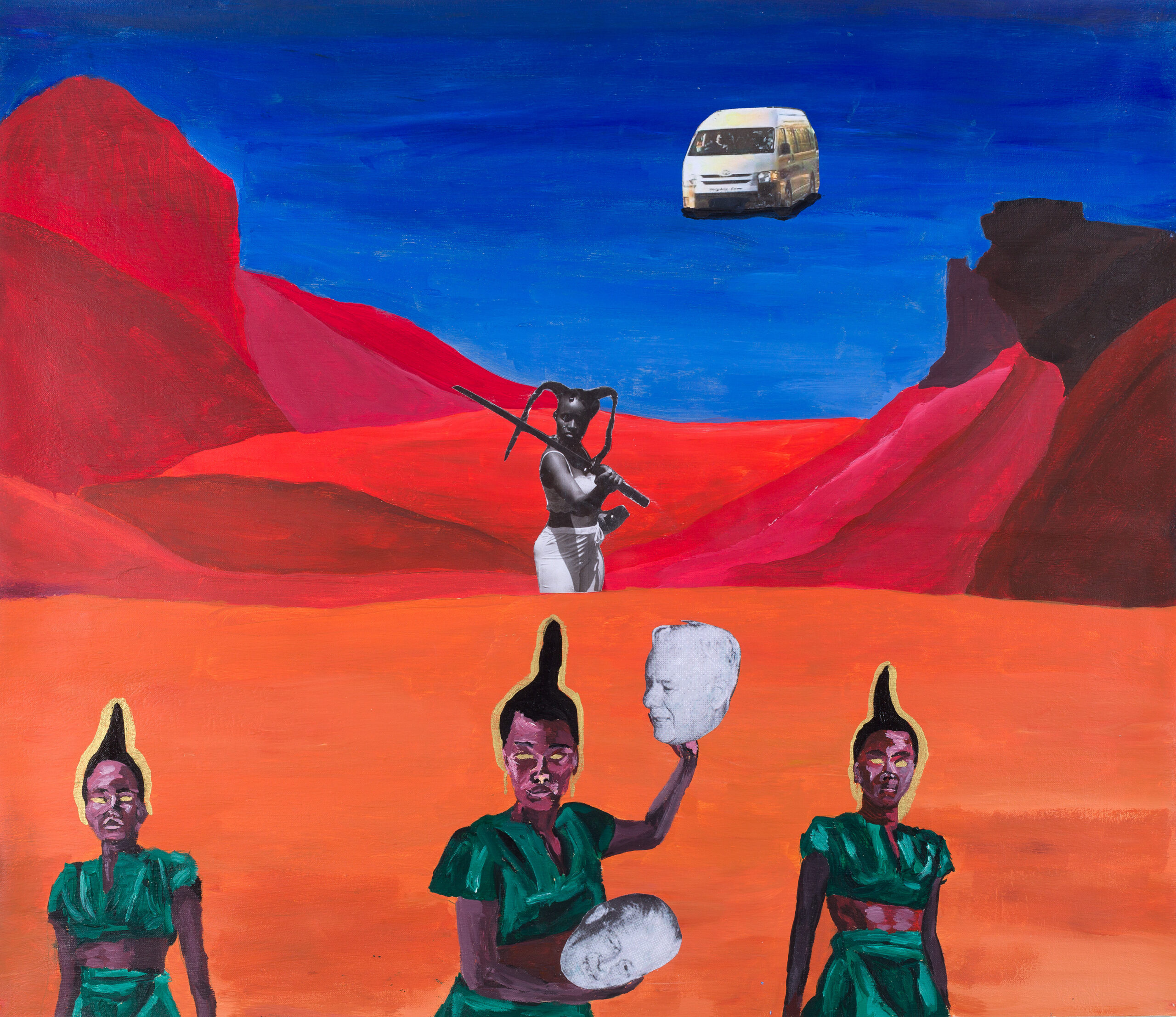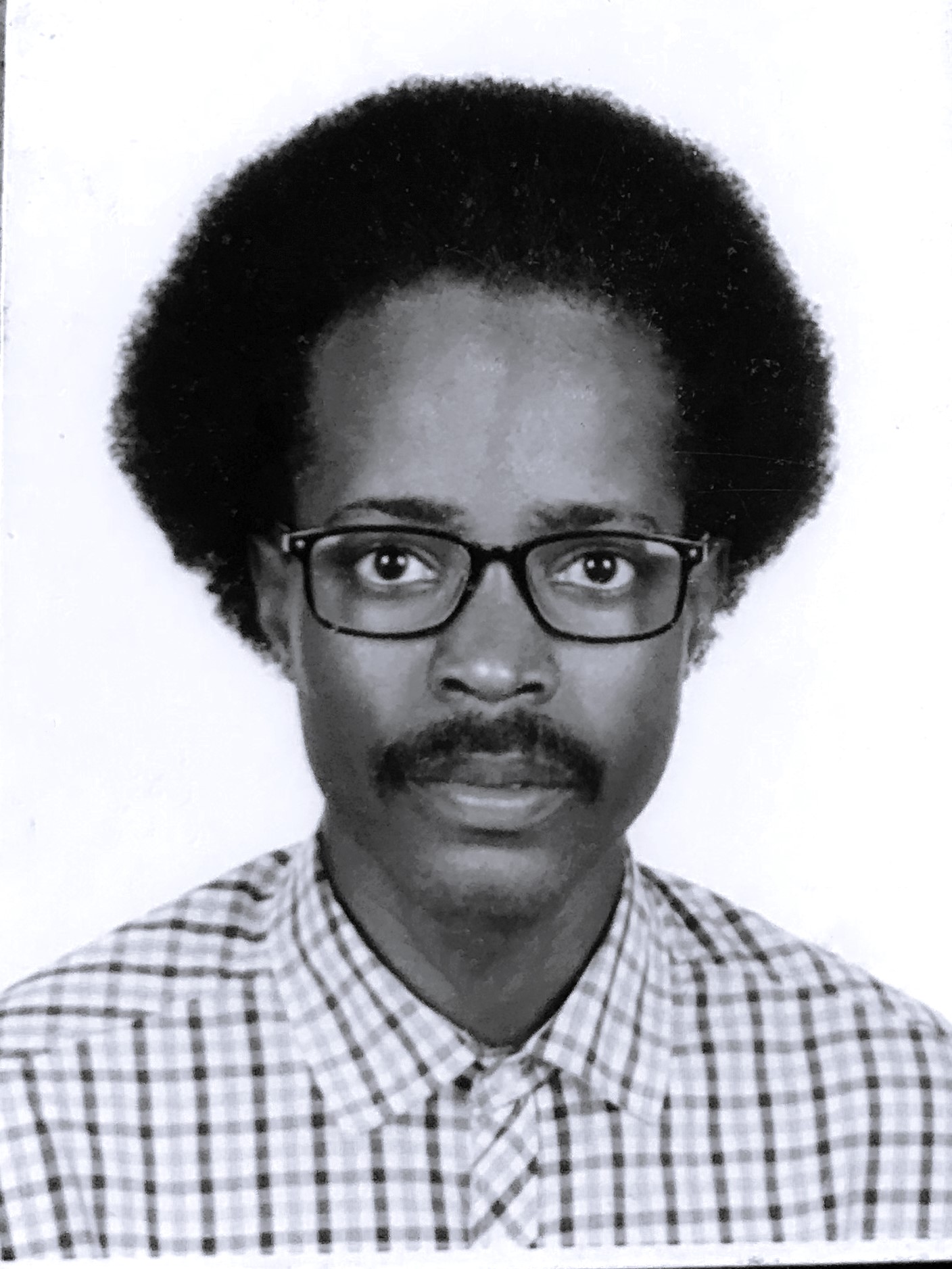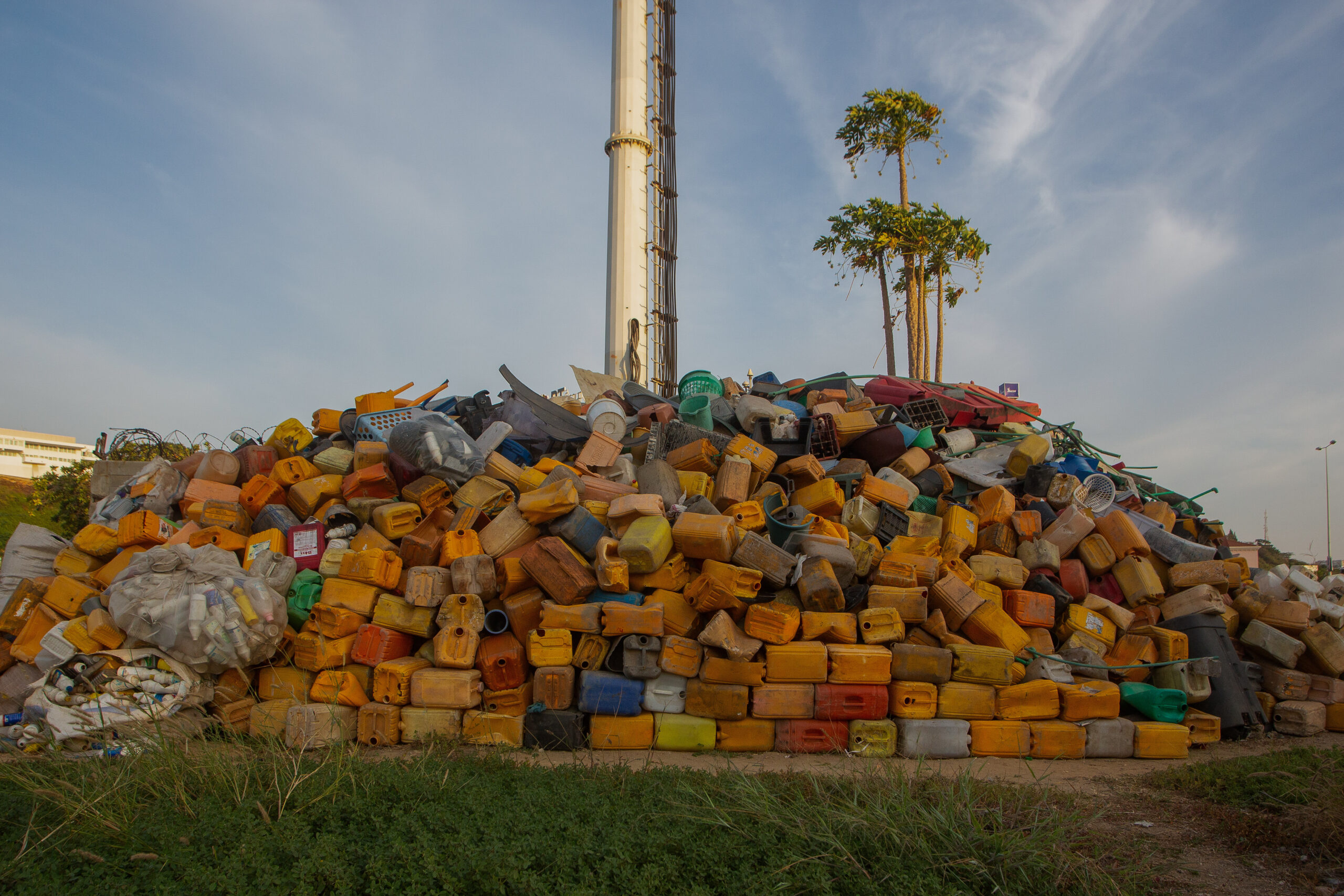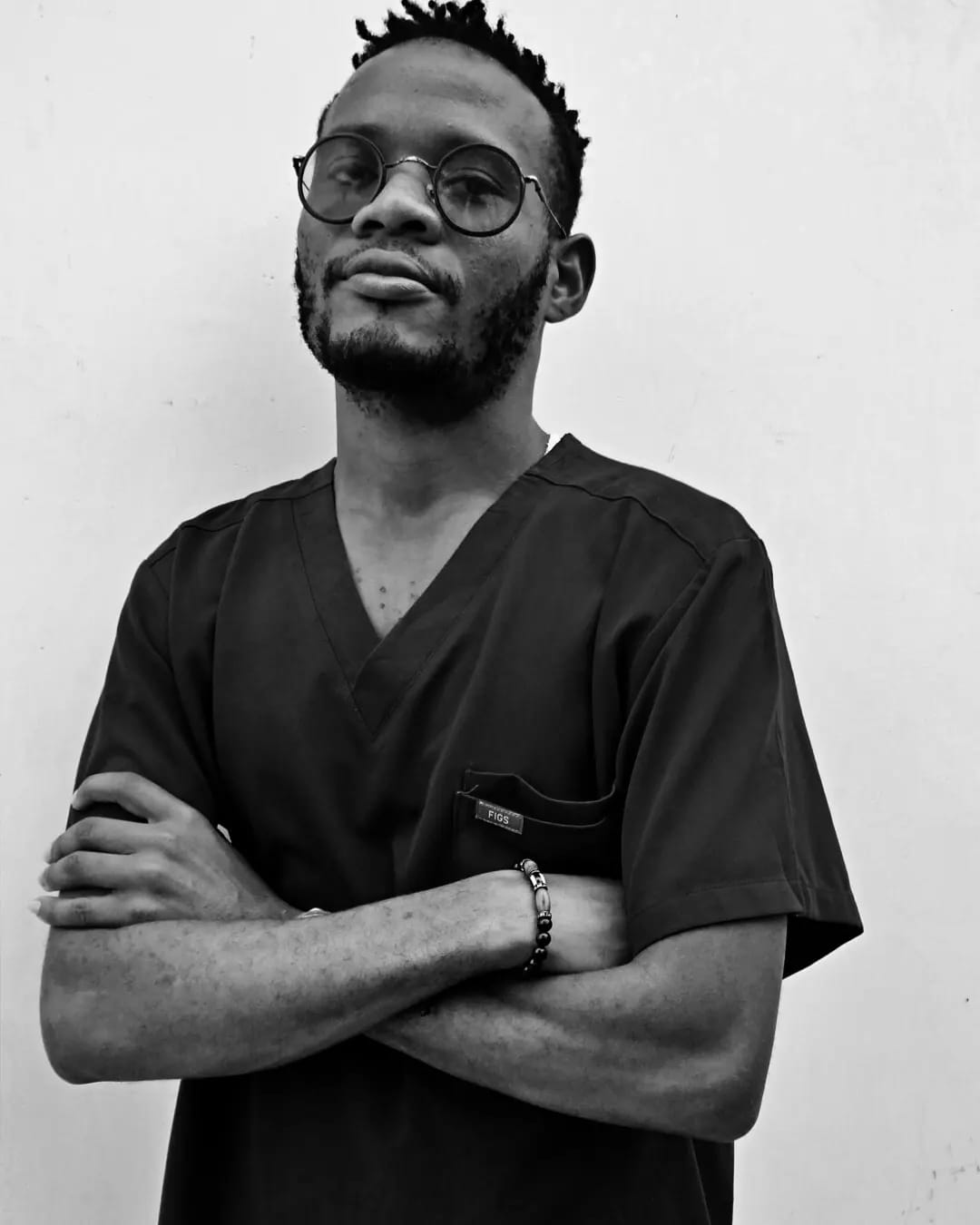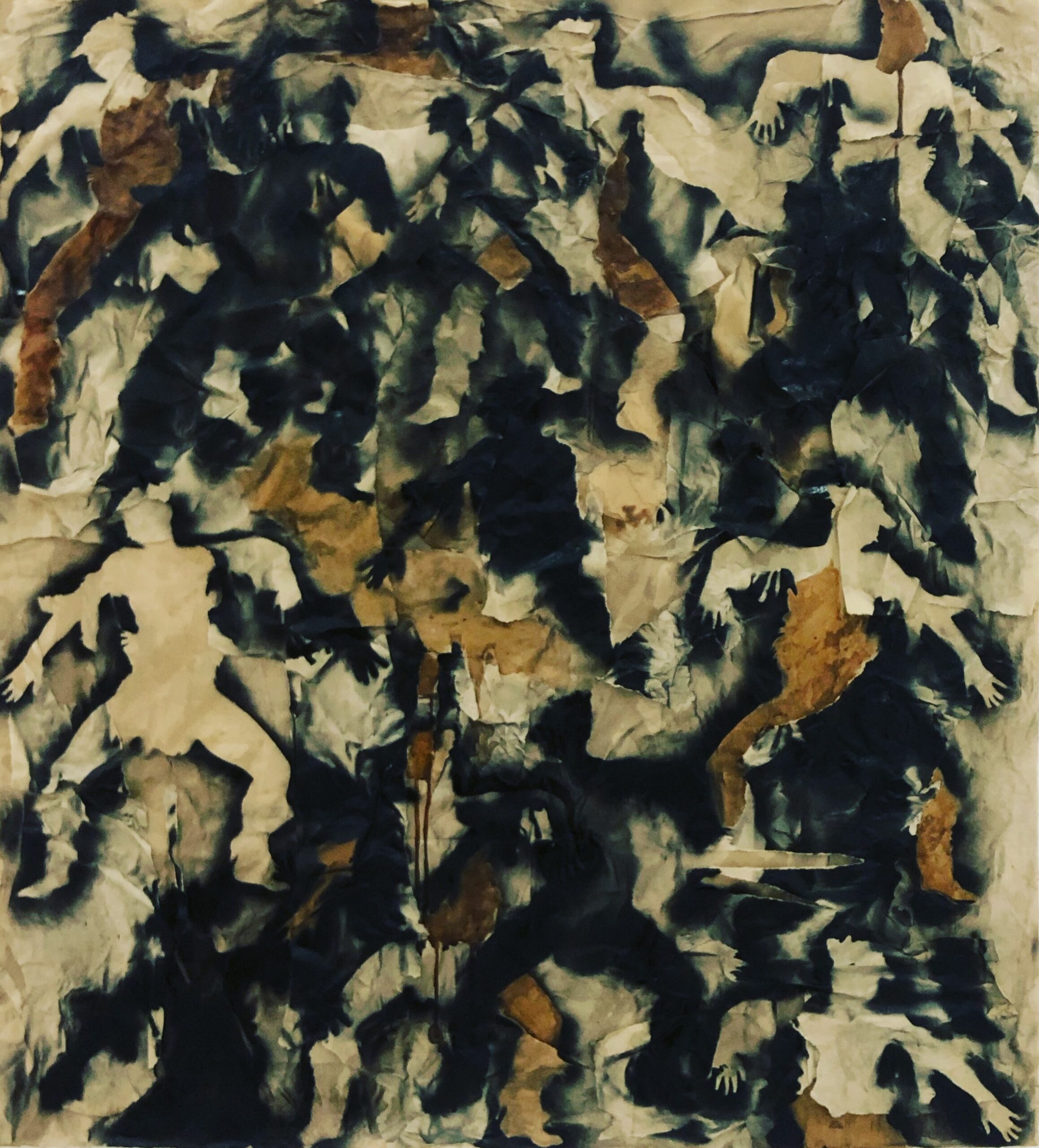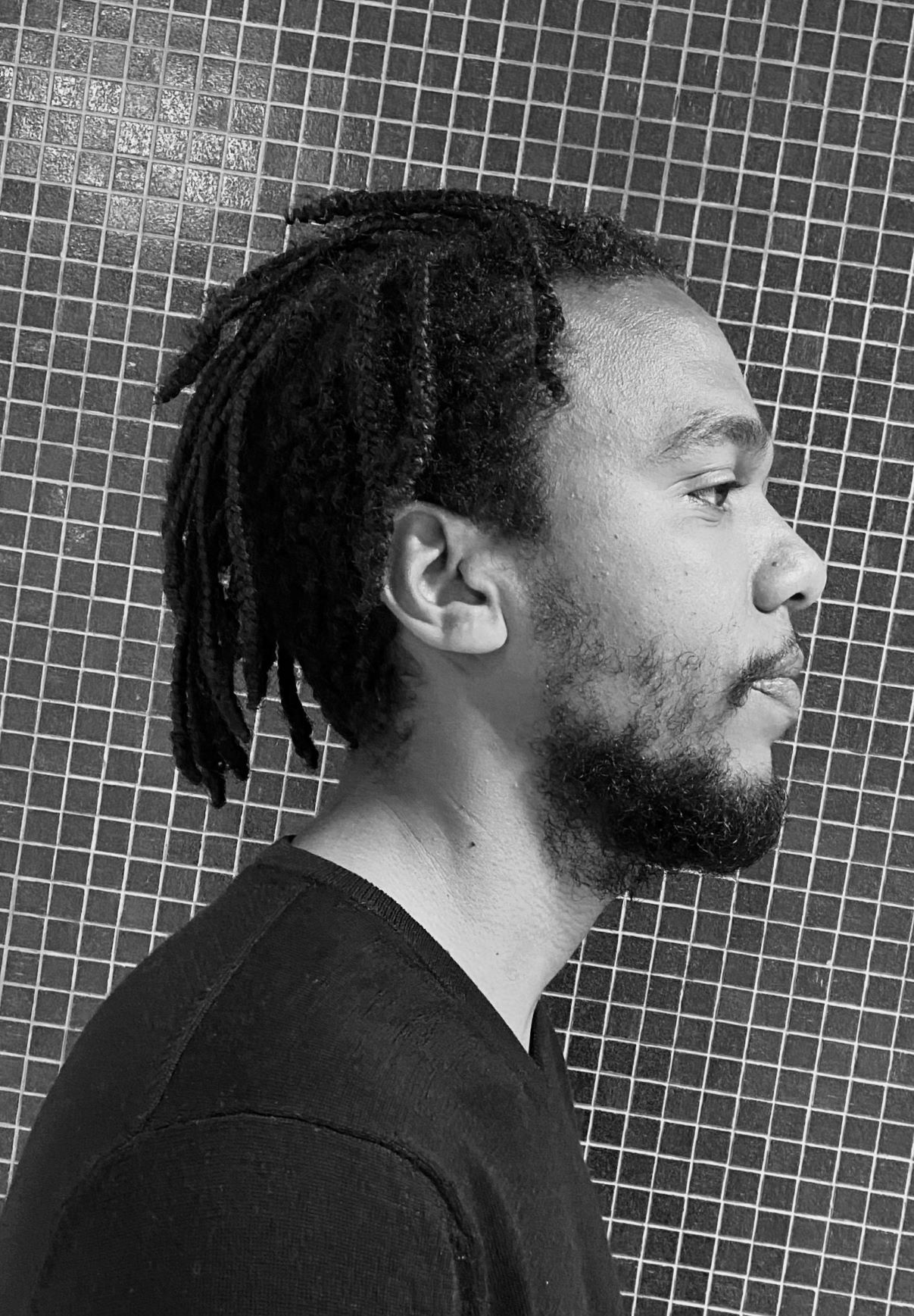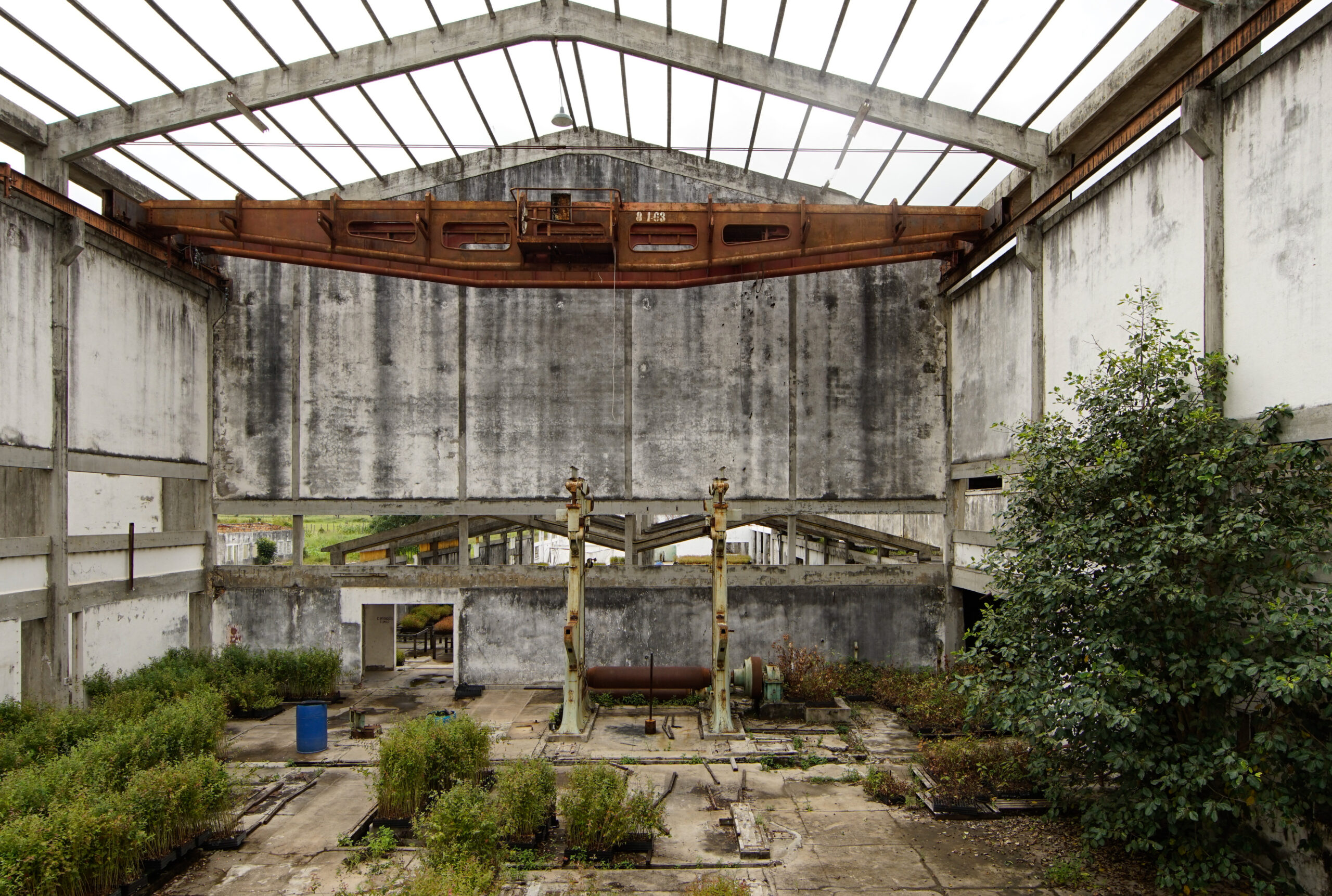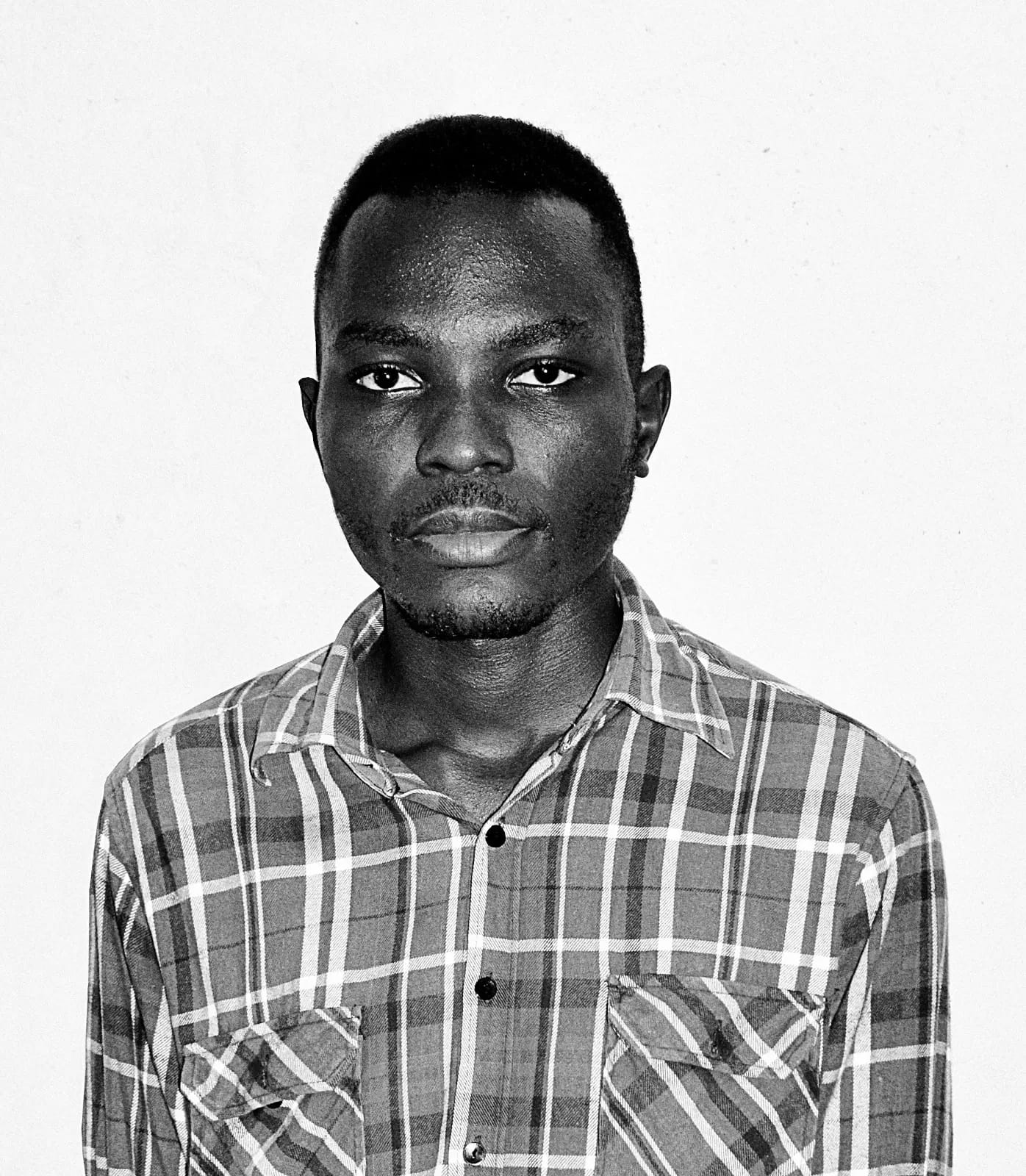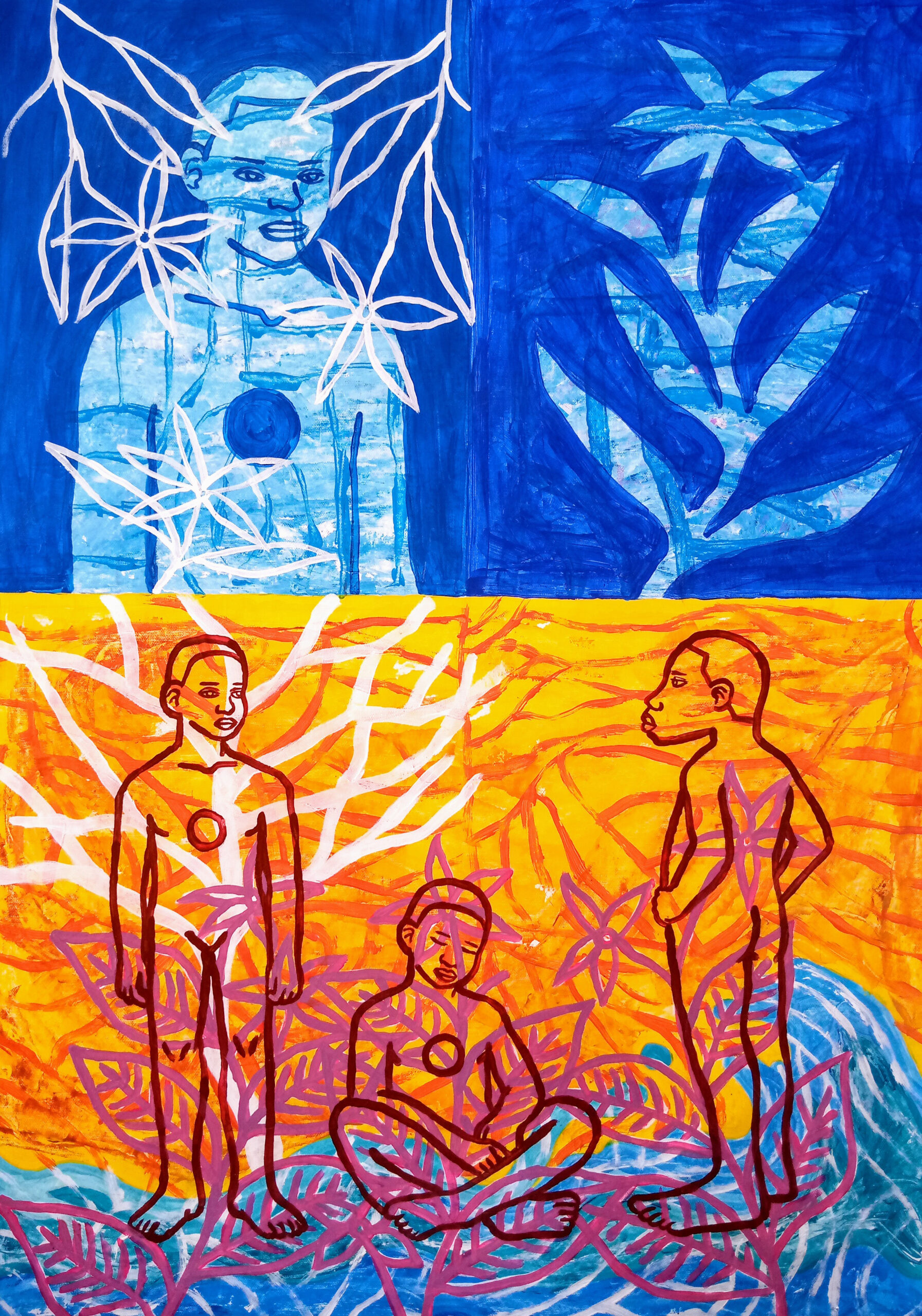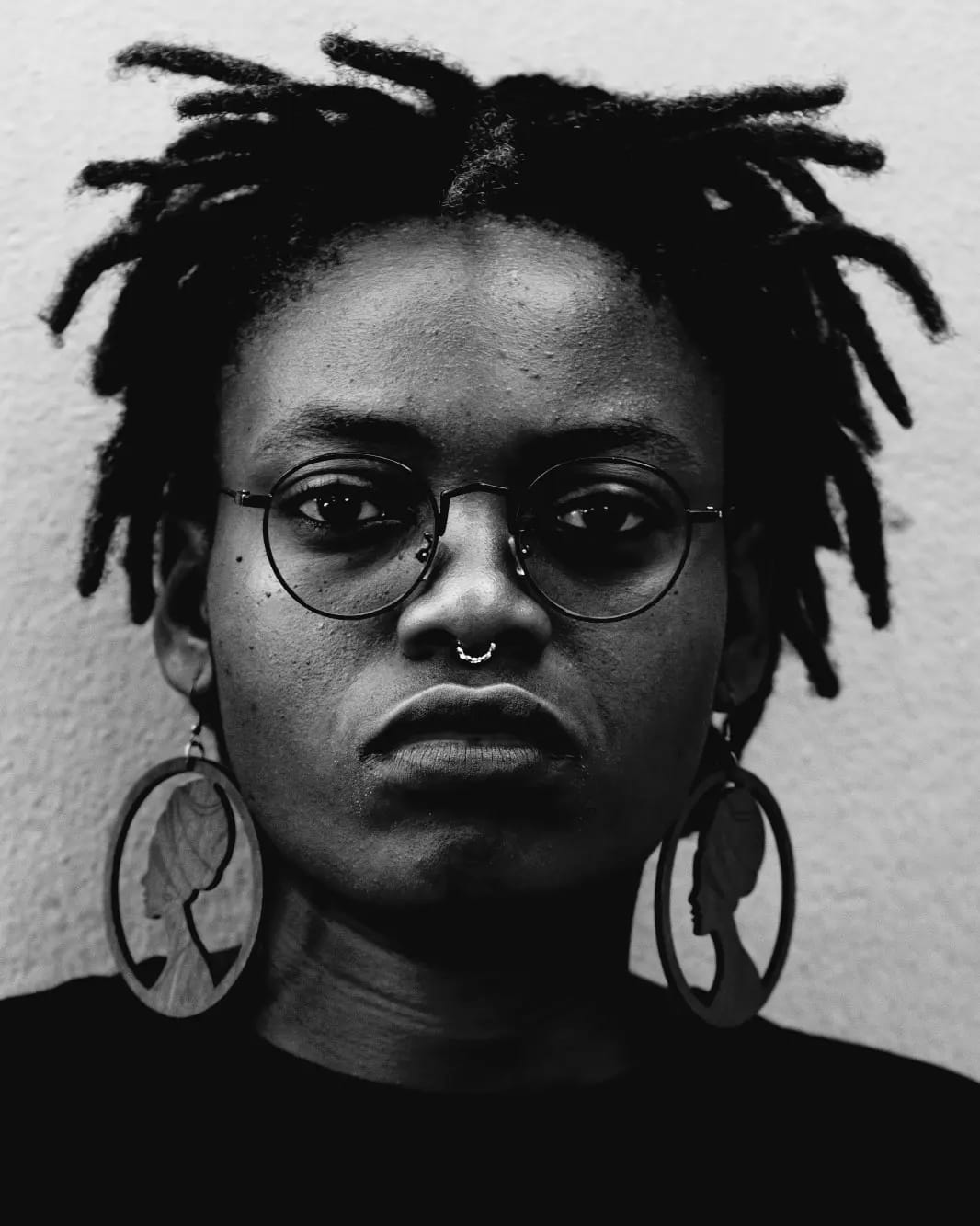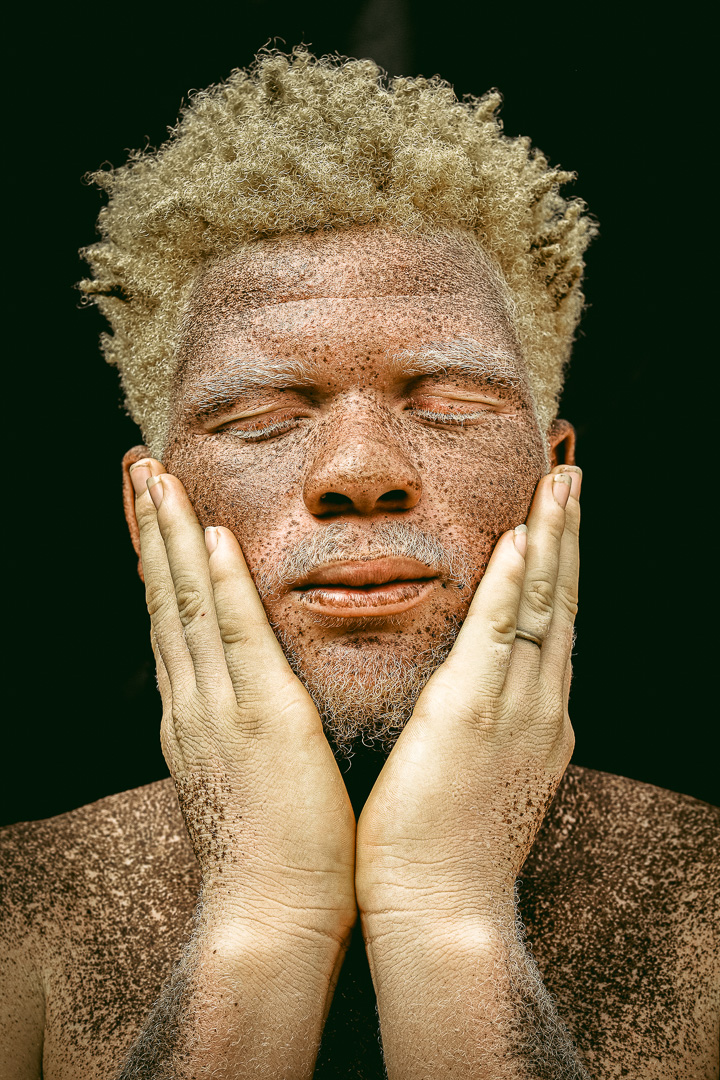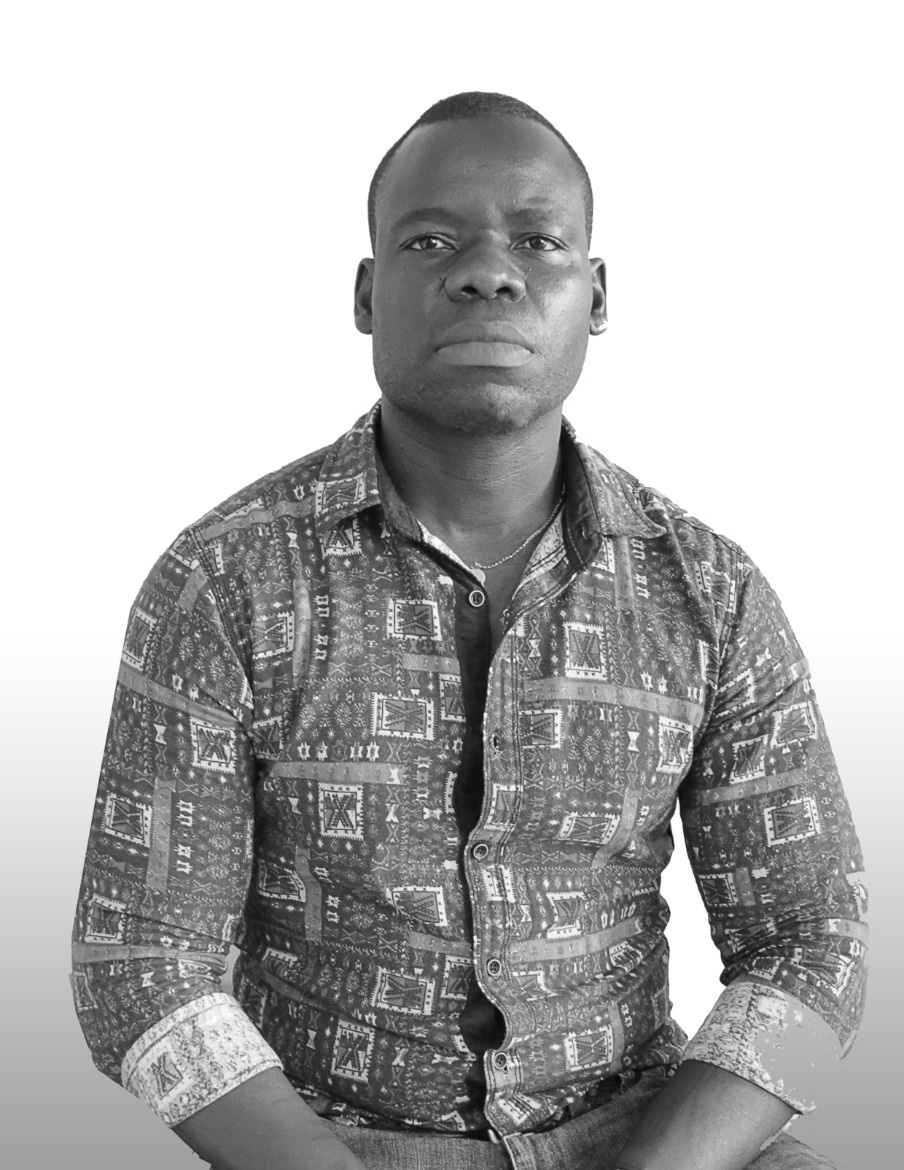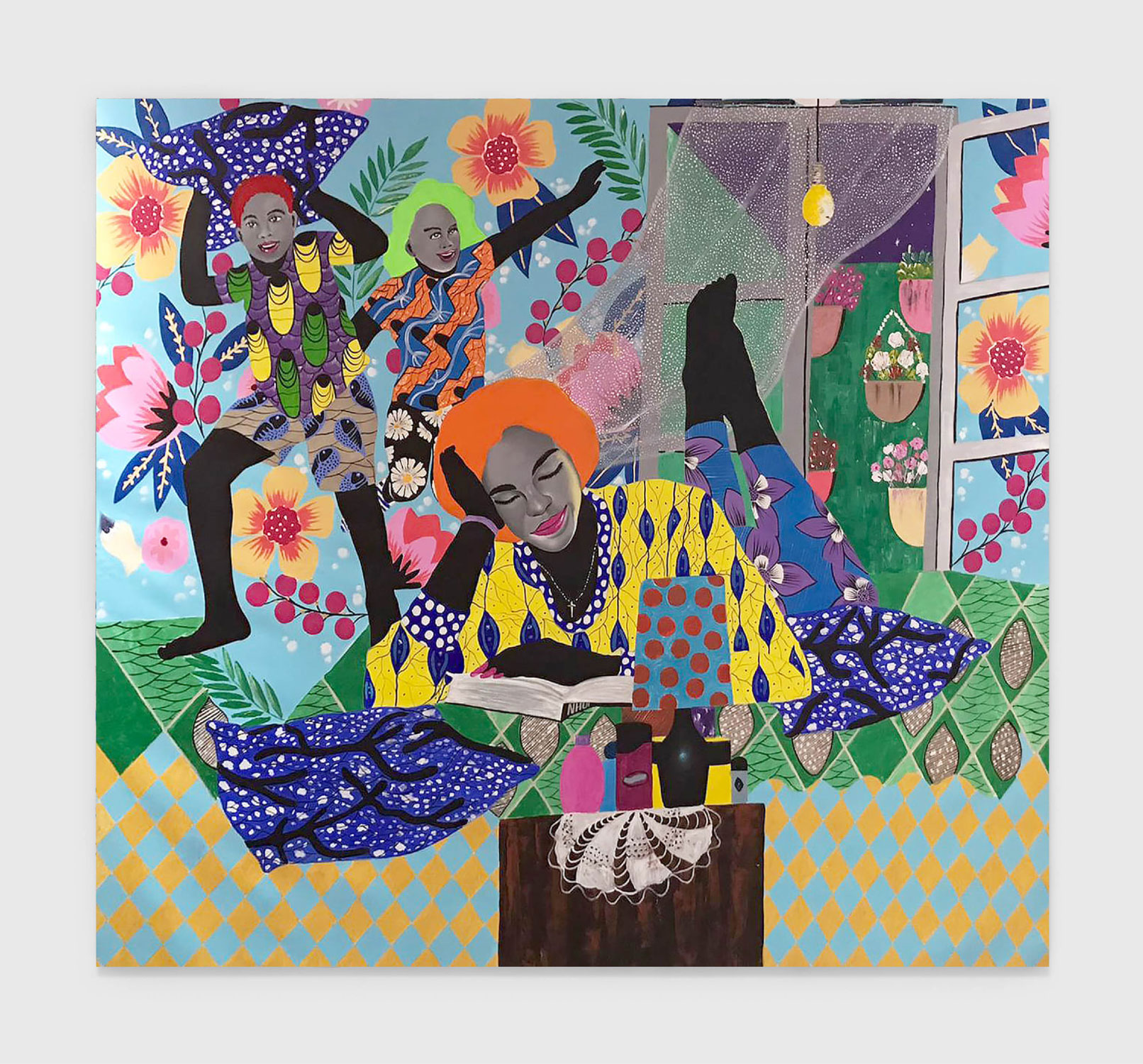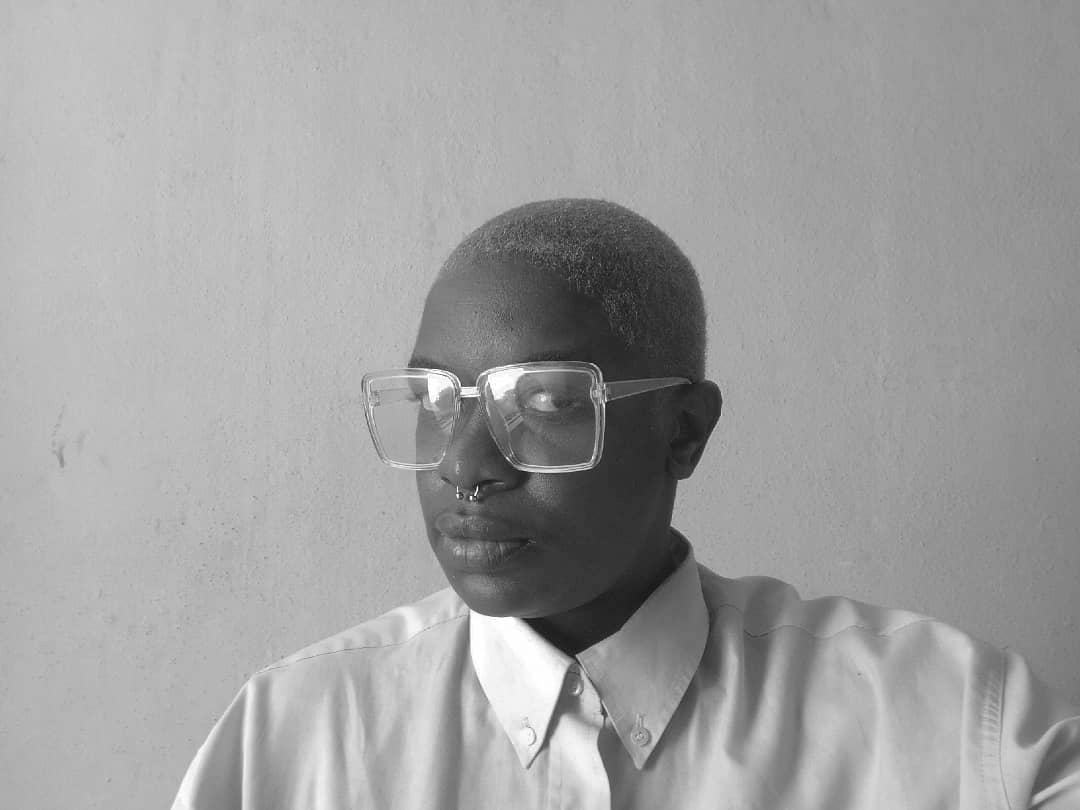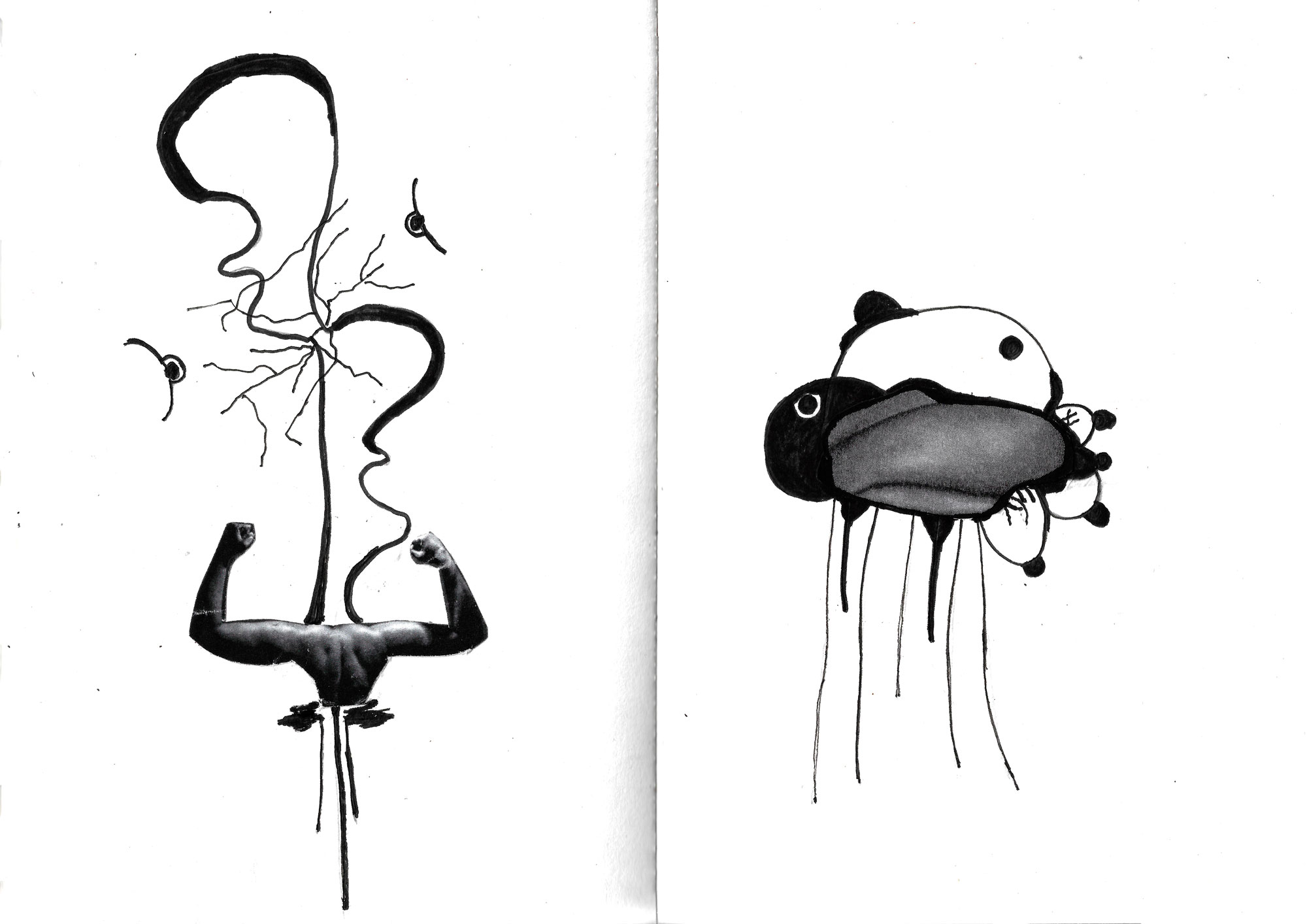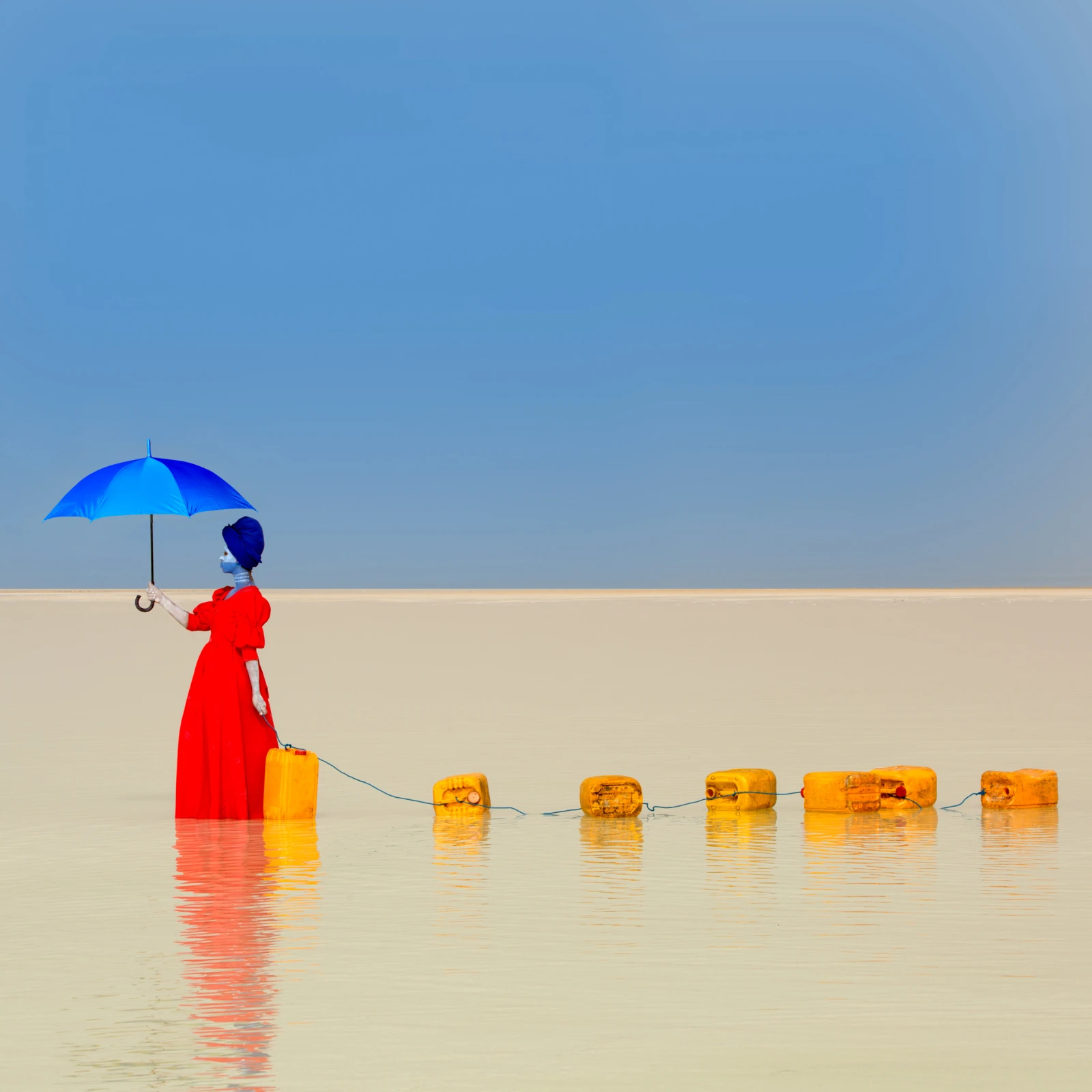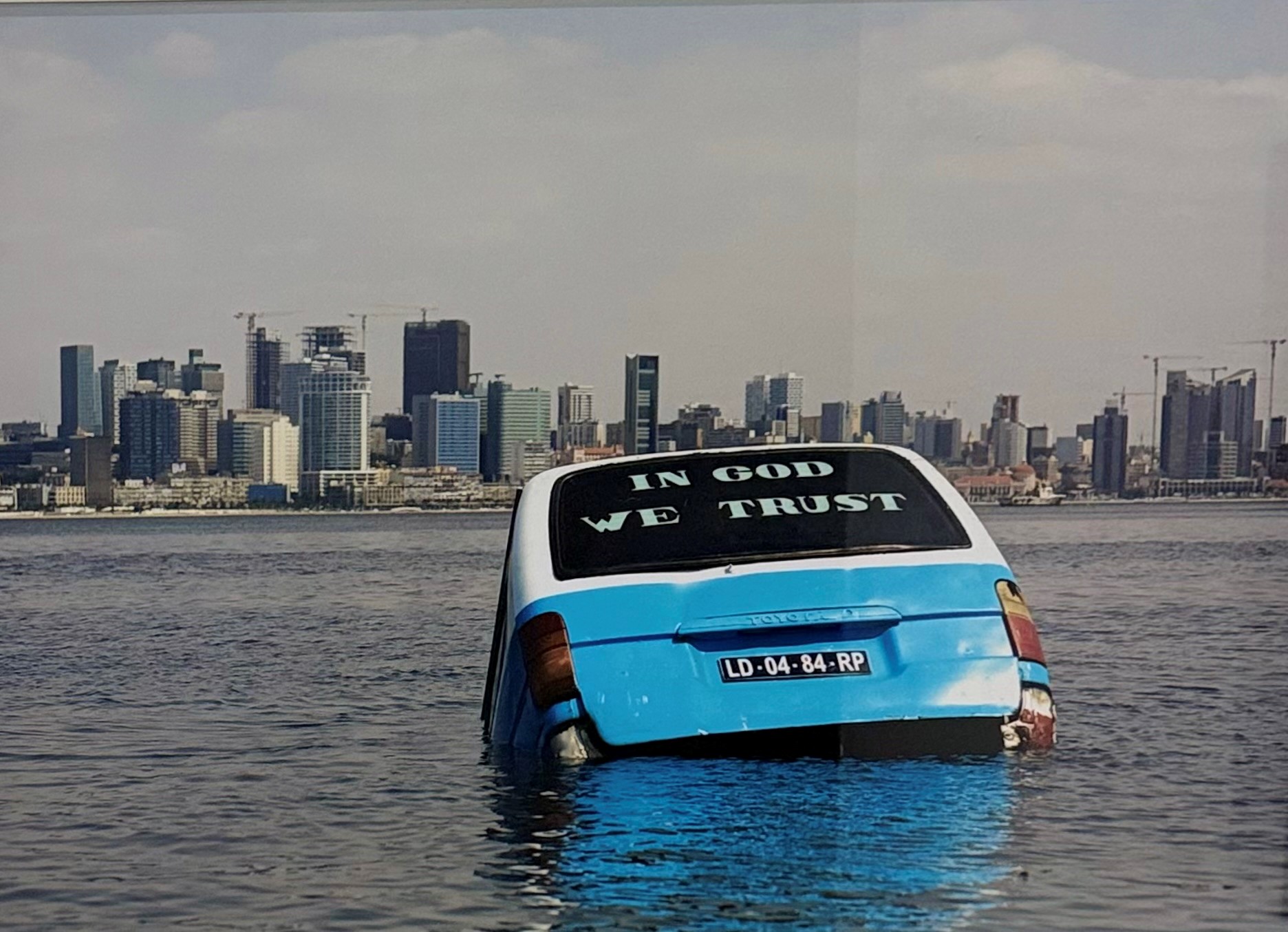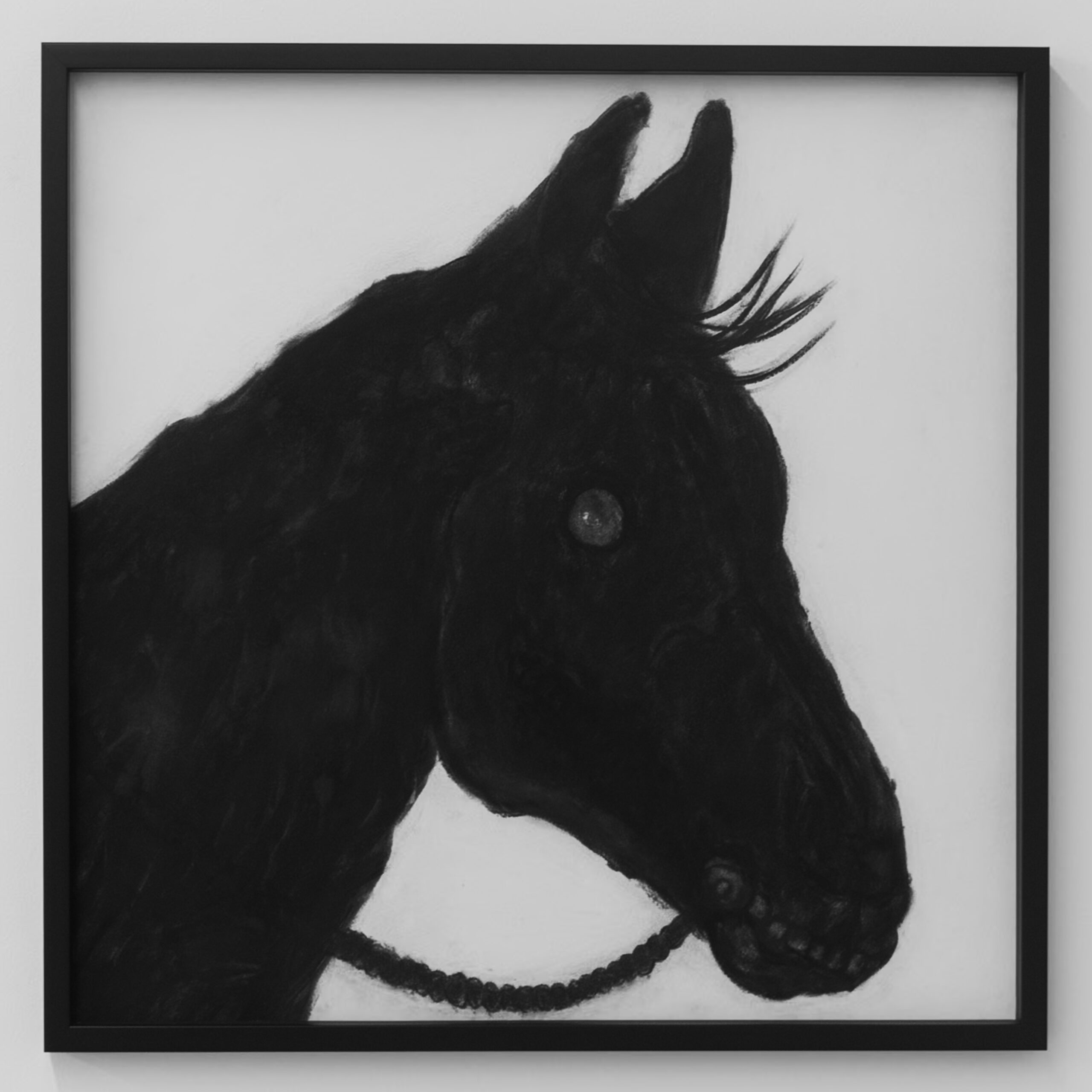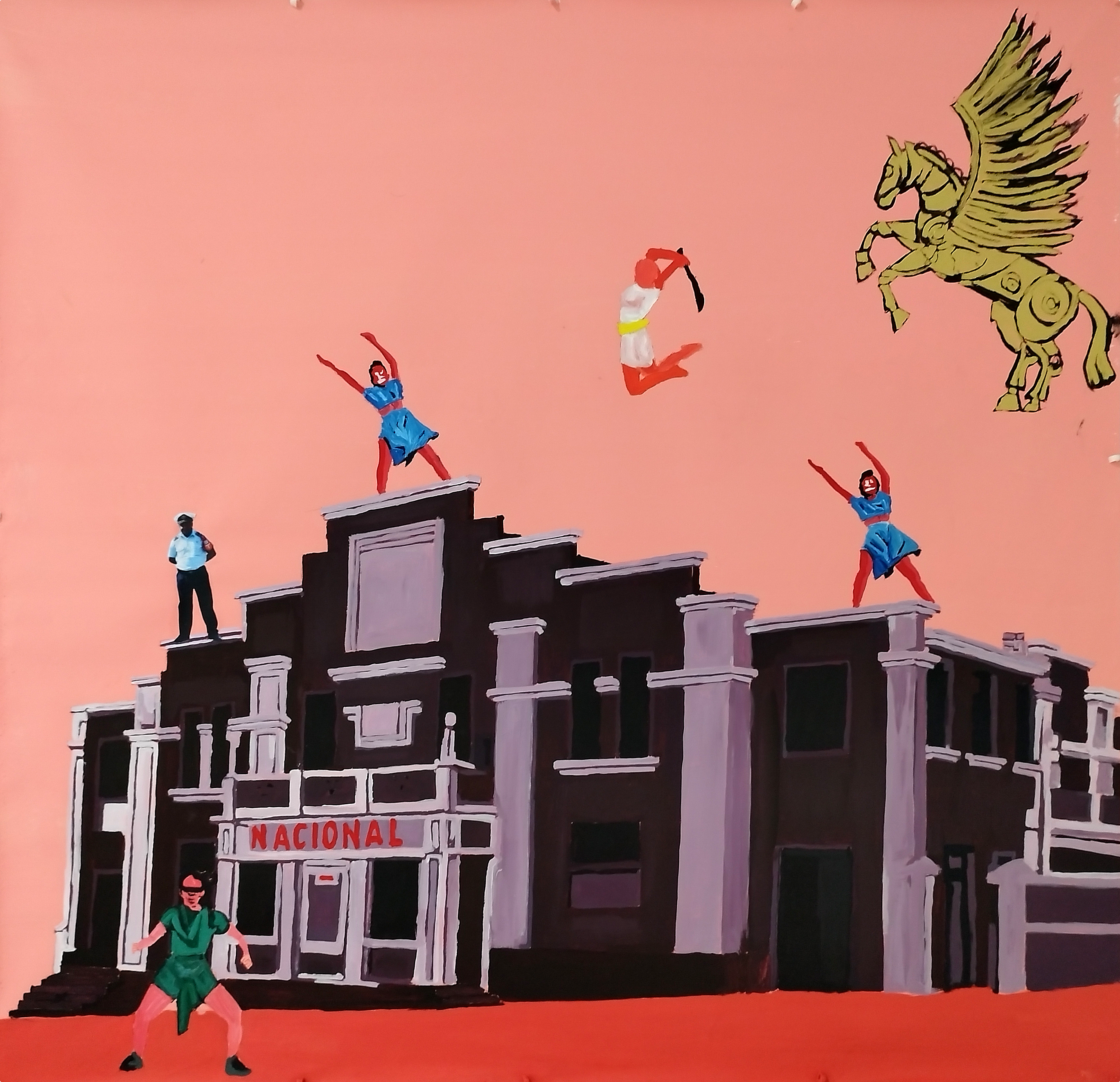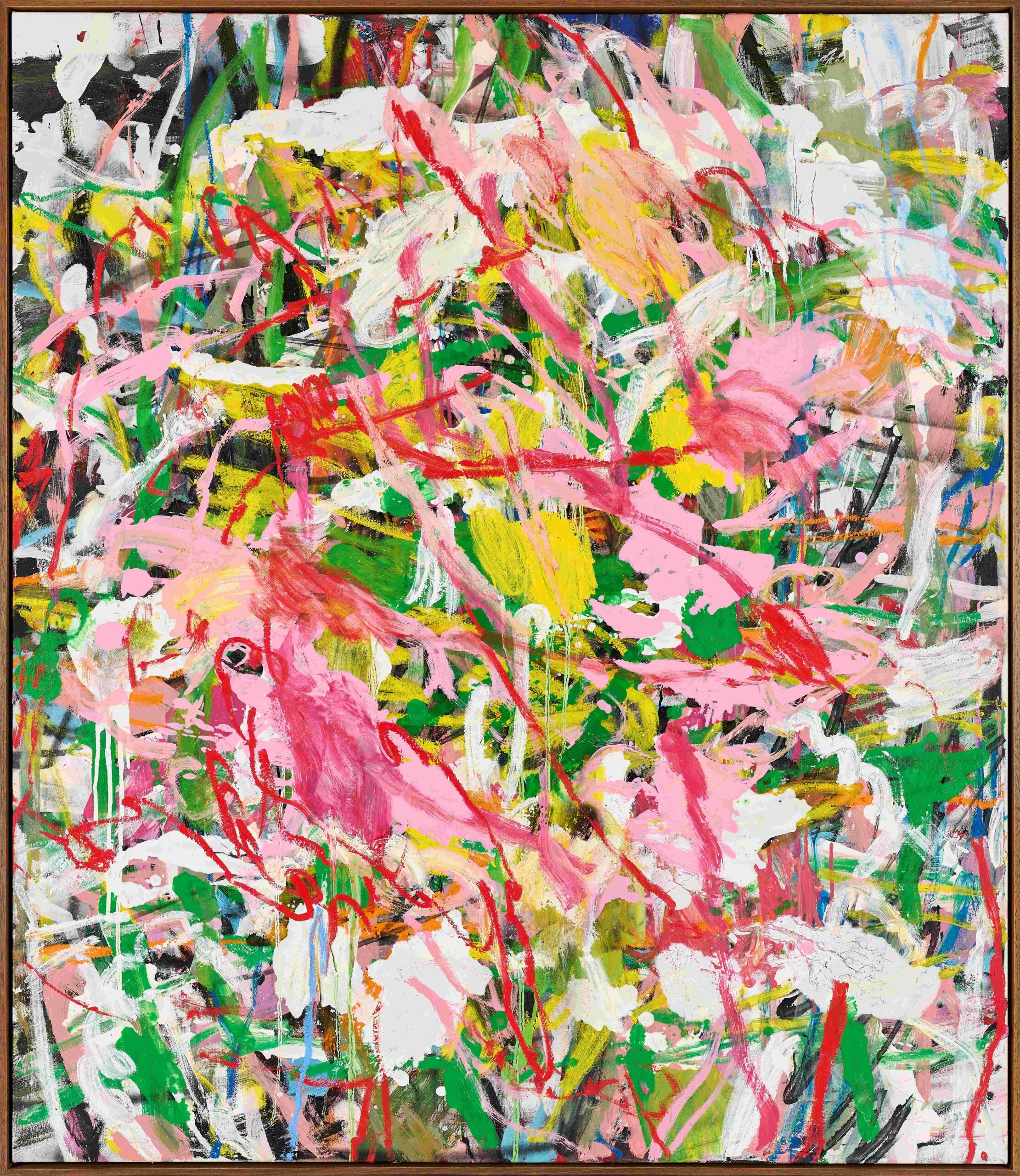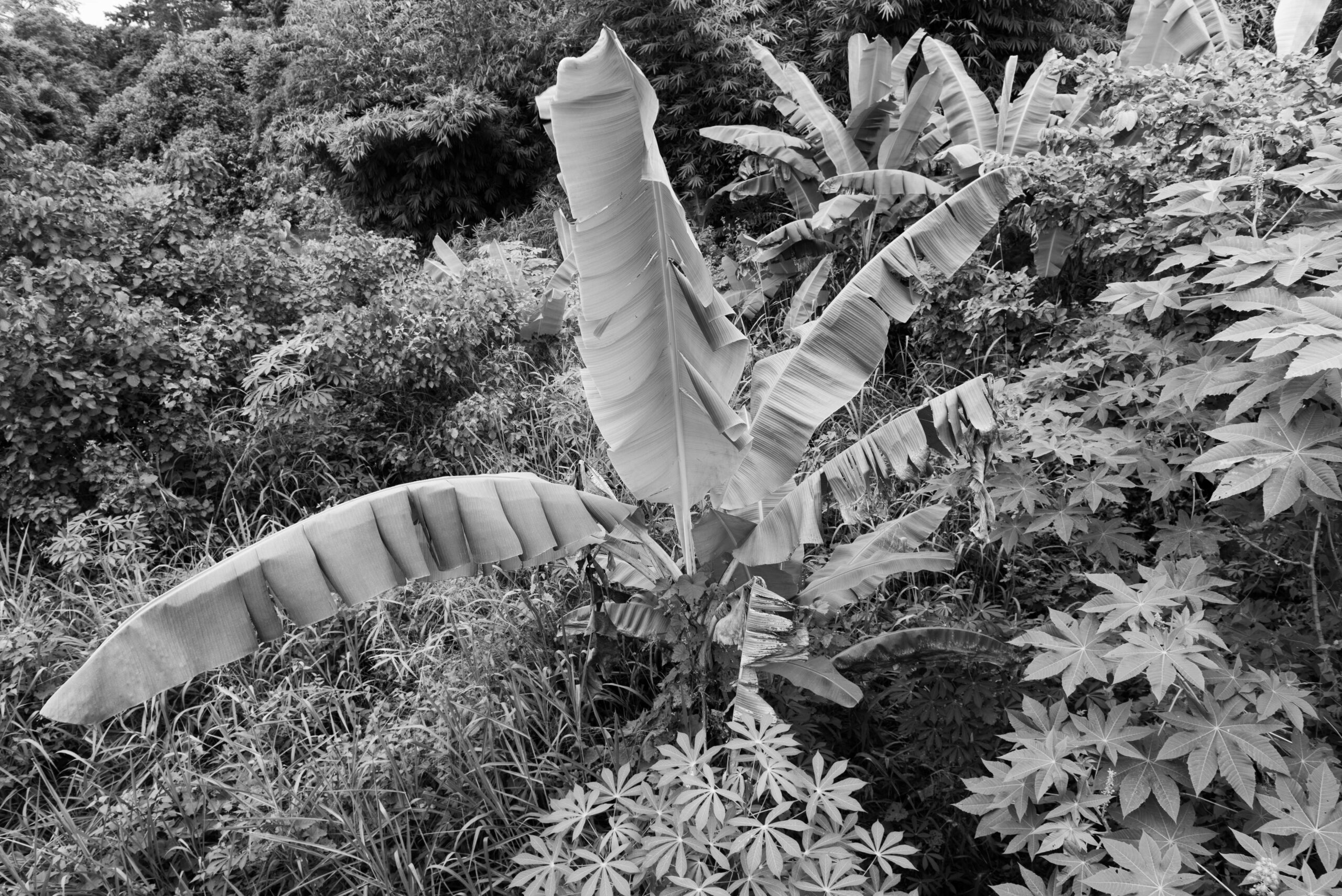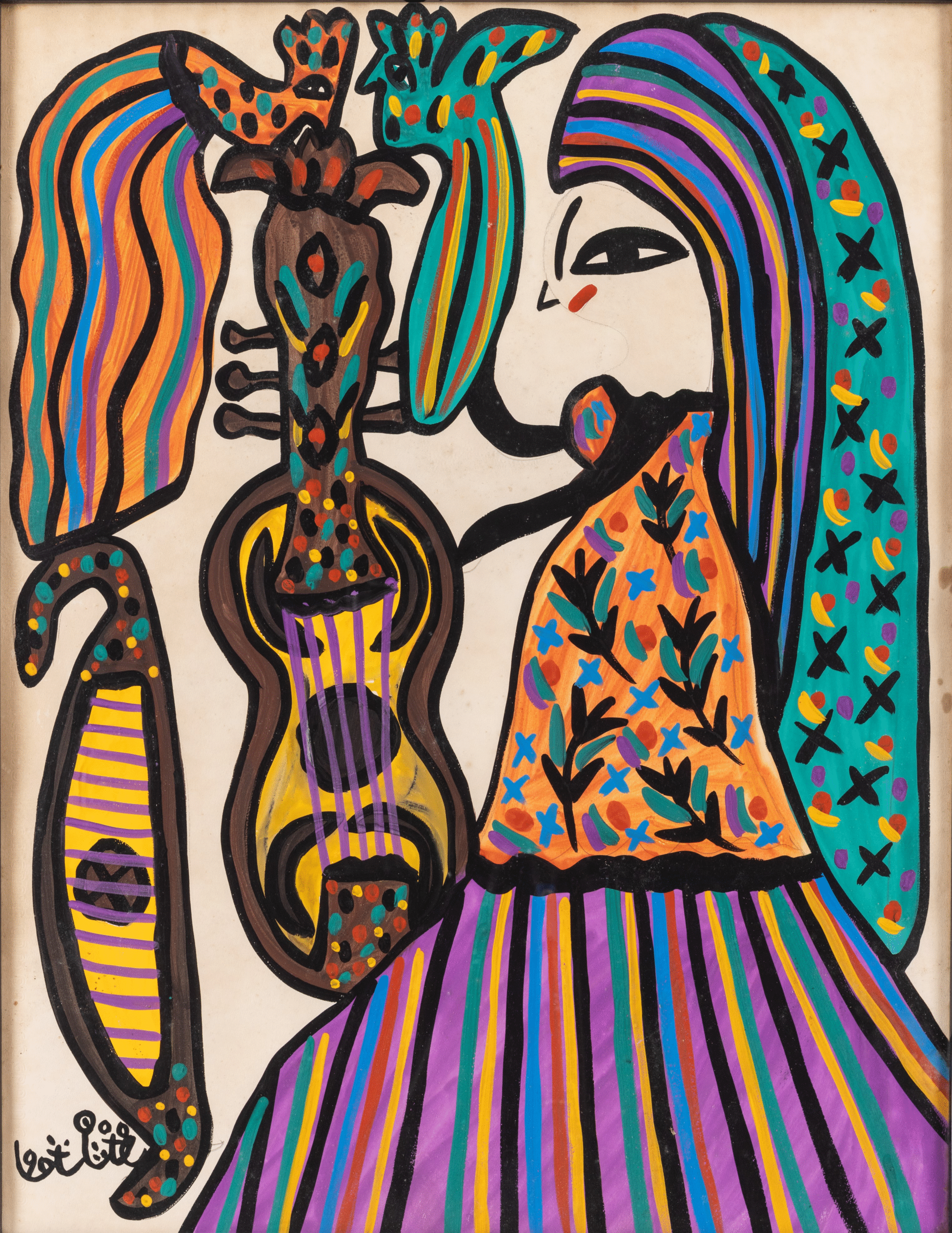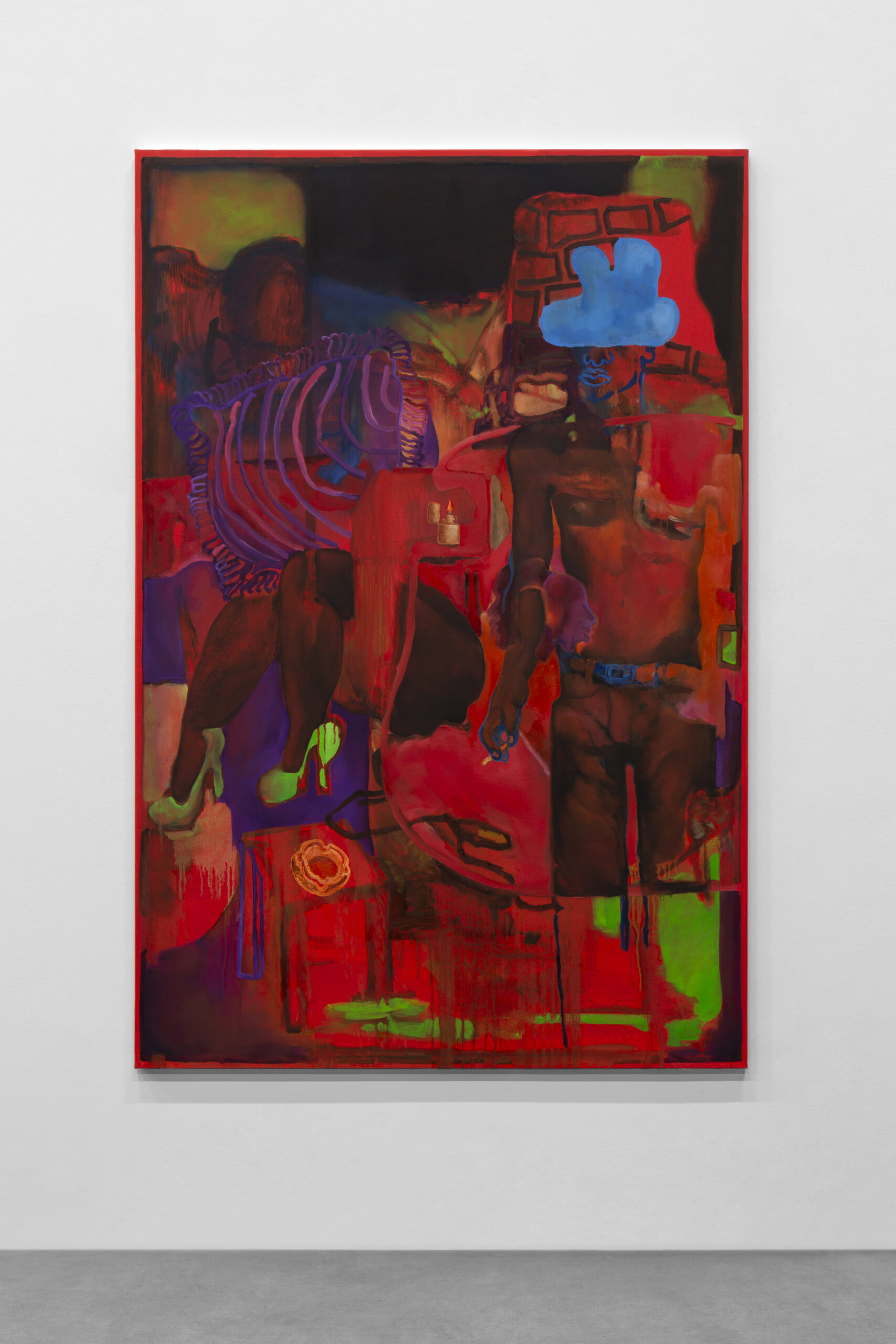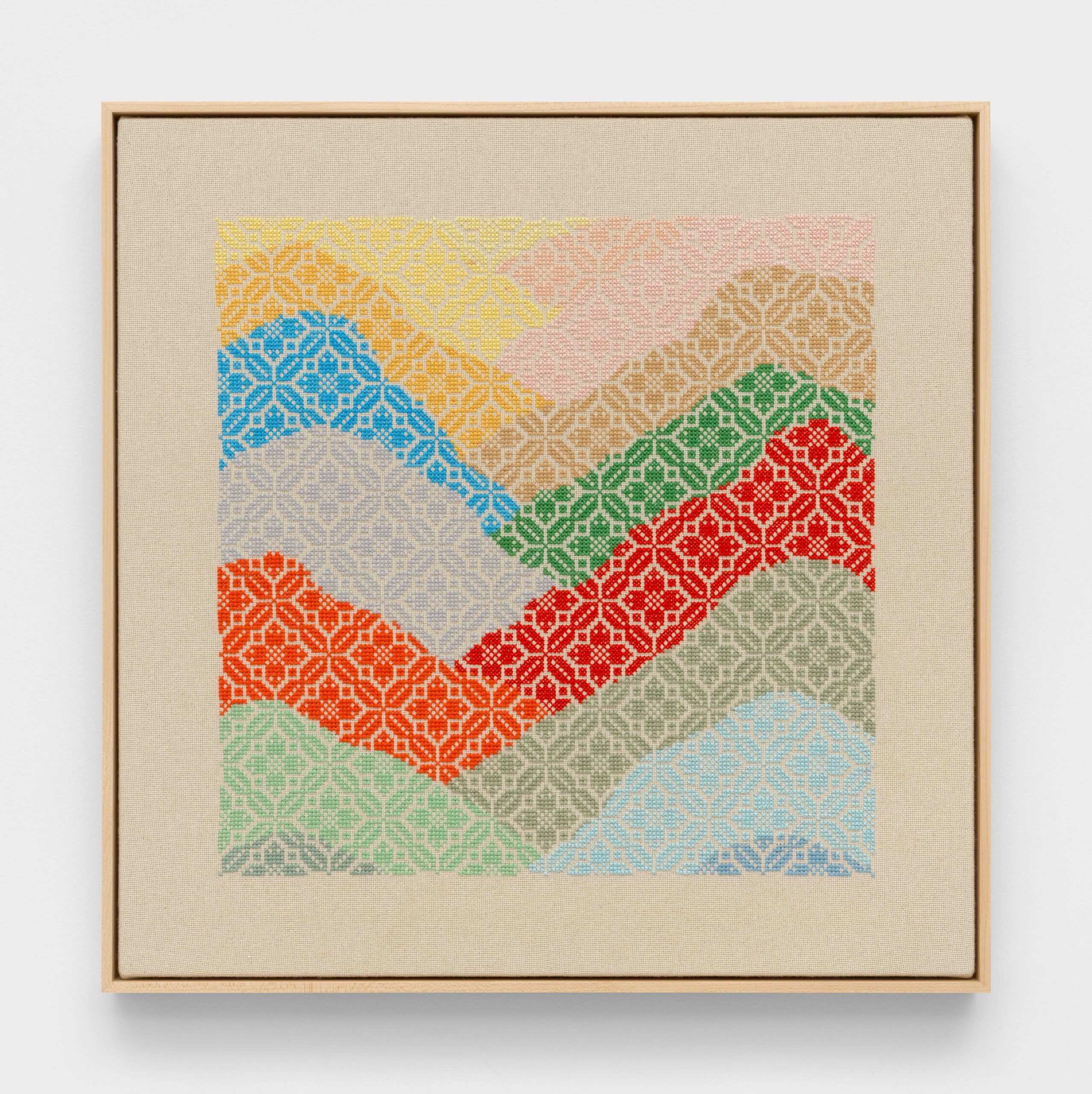Presentation
Taking place in Luanda, the NESR Art Foundation's residency program is open to all emerging artists from Angola, Cape Verde, Guinea - Bissau, Mozambique, São Tomé e Príncipe and the selection is made by the foundation's Artistic Committee following an open call for applications.
The residencies' mission is to establish deeper engagement between artists and curators, and to create opportunities for practical and theoretical mentorship. It has a commitment to facilitating connections with the social and cultural scene in Angola, as well as maintaining strong conversations between the residents and international arts professionals.
The Residency program welcomes 6 artists per year, in 3 sessions of 10 weeks (each), with 2 artists at a time. Residents receive a fully furnished studio and living space, as well as a stipend and production grant.
Open Call
APPLICATIONS ARE CLOSED.
Details
Residents
Sheila Ramirez Sheila Ramirez
Residency: October - December, 2025
Gilda Barros Gilda Barros
Residency: October - December, 2025
Wendy Morris Wendy Morris
Residency: Jully, 2025
Whitney Ernest Whitney Ernest
Residency: June - August, 2025
Art and journalism have long documented human experience - separately. However, Whitney’s pieces use doodles as her personal iconographic language to document current affairs, drawing on some principles from data art.
An autodidact at heart, Whitney has developed her own personal style and iconography through repeated experimentation, practice, and study of old masters. Creating art as a form of visual journaling - a form that took easily to her penchant for pens, markers, and acrylics - is how she hopes to document tomorrow’s history in real time.
Raul Jorge Gourgel Raul Jorge Gourgel
Residency: June - August, 2025
Raul Jorge Gourgel (b.1999) is an Angolan multidisciplinary artist and researcher currently
based in Cape Town. Drawing from Angolan modern history and the current, their practice is
interested in dissecting the construct of the nation and how it informs collectivized
ontologies and epistemologies.
Cassi Namoda Cassi Namoda
Residency: April, 2025
As part of our new Public Program for the Foundation, Cassi Namoda has been invited to join the NESR Foundation’s residency program in Luanda this April.
An artist whose work intricately weaves the personal with the historical, Namoda’s practice is deeply influenced by her nomadic upbringing, as she has lived in multiple countries.
Born in Maputo, Mozambique, she initially studied cinema, and her approach to painting reflects a strong engagement with narrative structures, imagined characters, and archival references.
Resem Verkron Resem Verkron
Residency: March - May, 2025
Born in Luanda, Angola, in 1999, Resem Verkron is a visual artist and filmmaker whose creative practice revolves around the concept of "Emotional Futurism." This movement, which he shapes as a personal experimental field, explores the connections between human emotions, African cultural identity, and contemporary visual narratives. His artistic journey began in 2015 when he joined Colectivo Verkron, embarking on a mystical search for the "particles of the whole," a spiritual path that profoundly influenced his work.
Starting with graffiti and transitioning to photography in 2017, Resem began exploring diverse visual languages, expanding his repertoire to experimental cinema, electronic music, and audiovisual installations. His works often merge vibrant visual aesthetics with sound, creating immersive experiences that reflect the emotional and social complexity of contemporary Angola.
Kwame Souse Kwame Souse
Residency: March - May, 2025
Kwame Sousa discovered his taste for art at an early age, starting to draw as a self-taught artist. Kwame Sousa is part of the third generation of artists from São Tomé and Príncipe and is widely regarded as one of the country's most influential figures in the arts.
After building much of his career and earning international recognition, Kwame decided to return to his homeland to establish an art school. In 2017, on a plot of land next to his father's house, he founded Ateliê M , the first and only Visual Arts School currently operating in São Tomé and Príncipe.
This school has become the cradle of a new
cultural and artistic movement in São Tomé, fostering artists who are globally aware yet deeply connected to their local roots, which is vividly reflected in their work.
Throughout his artistic career, Kwame has shown a keen interest in researching the processes of colonial independence and the ongoing development of African identity.
Irad Irad
Residency: September - November, 2024
Irad was born in Germany and has lived in Angola for 22 years. She’s part of the Verkron collective since 2011. She explores Afro-futurism, neo-muralism and oil painting, beyond the aesthetic aspects. Her art is interested in African mystical practices, blackness, black feminism and spirituality, rescuing Angolan feminine power and promoting transformation and empowerment.
Luís M.S.Santos Luís M.S.Santos
Residency: September - November, 2024
Luis M. S. Santos (1993) is a Mozambican sculptor. He was graduated in sculpture in 2016 from Faculty of Fine Arts of the University of Porto, Portugal. The artist participated in several international exhibitions in Mozambique, South Africa and Portugal. He won several awards.
Michel Onésio Michel Onésio
Residency: April - June, 2024
Michel Onésio seeks to transcend traditional art forms, using his multidisciplinary approach to evoke deep feelings beyond the brush’s stroke. Immersed in serenity, he connects profoundly with his canvas, exploring its every facet. Influenced by his rural upbringing, natural tones pervade his work, as he blends painting, sculpture, and installation to realize his visions, inviting viewers into a realm where time ceases, and only the essence of creation remains.
Flávio Cardoso Flávio Cardoso
Residency: April - June, 2024
Flávio Cardoso merges technology, architecture, and history in his art, utilizing photography and installations to explore humanity’s essence.
His work, often minimalistic yet layered with symbols, metaphorically employs objects and figures to question human influence on environments, crafting narratives through series or singular creations.
Irene A'mosi Irene A'mosi
Residency: September - December, 2023
Irene A’mosi is a multidisciplinary artist who identifies herself as a storyteller of the habits and customs of her generation. She is a filmmaker, poet, voice artist, actress and everything she allows herself to be. She primarily works with audiovisual installations, performance and poetry.
Filomena Mairosse Filomena Mairosse
Residency: September - December, 2023
Filomena Mairosse lives in Maputo. As an interdisciplinary artist, she works primarily with photography, writing, video, and analog collage. She explores themes around reimagining realities, belonging, consumption, interdependence, and nature.
Sofia Yala Sofia Yala
Residency: May - July,2023
Sofia Yala's artwork conveys a sense of urgency to display archival material combined with episodes of emancipation in life.
Yala is a storyteller, working in different times, textures, and layers. Her work considers (de)construction of her own body and identity in search of futuristic ways of framing.
Her medium of choice is photography, but Sofia enjoys experimenting and showing her work alongside different formats and compositions.
Carina Ubisse Capitine Carina Ubisse Capitine
Residency: May - July, 2023
Mozambican and queer artist Carina Capitine believes in the power of art to give voice to the realities of marginalized communities.
She manifests the sapphic nature of her art in her use of the body, nature, and sensuality to portray her interaction with feminine energy.
Through the combination of traditional ceramics, writing, and audio-visual cut-outs, Carina finds a vehicle for self-reflection and expression and she explores the use of art as a communication tool for social change.
Malebona Maphutse Malebona Maphutse
Residency: January - March, 2023
Malebona Maphutse, guest artist through a partnership with the THIS IS NOT A WHITE CUBE gallery, lives and works in Johannesburg, and seeks to build historical narratives through her extensive and comprehensive artistic production - which includes linocuts and digigraphy, painting on canvas, drawing, sculptural installations, and video art.
Her digital collages and installations appropriate the visuals and language of street flyers, bitingly exploring the historical debt resulting from systemic oppression. Her work seeks to investigate how bodies encounter space and transcend mere existence to understand the politics of space.
Hélio Buite Hélio Buite
Residency: January - March, 2023
Hélio Buite's practice goes deep into different disciplines, such as photography, video, installation, audio, and documentation.
He is interested in neocolonialism when analyzing the path taken by Angola, from colonialism, independence, civil war, and the economic crisis that the country is going through.
Hélio believes in a future of self-sufficiency and human rights that are practiced, not just written. A reality that seems utopian in the current context.
Adriano Cangombe Adriano Cangombe
Residency: September - November, 2022
Adriano Cangombe's practices focus on resignifying certain aspects, facts, and events that have marked Angolan history in the context of the civil war.
His work is fundamentally based on the construction of collective memory and archive that sustains his narrative, resulting in experimenting different media and materials.
Rui Magalhães Rui Magalhães
Residency: September - November, 2022
Rui Magalhães is a photographer who captures commonplace with detailed intensity and an eye for the expressions, attitudes, and postures that expose mechanisms of visibility and opacity, mobility and permanence, resistance, and survival in a city built on economic eventualities.
Studying us and the occupations of the spaces, his practice is a mix of critical archives of Luanda’s recent architectural history and urban archaeology, documenting the city's inoperable relations.
Benigno Mangovo Benigno Mangovo
Residency: May - June, 2022
Benigno's work is mostly a metaphorical representation of personal experiences and various characteristics that make up the human experience, such as interpersonal relationships, fear, death, loneliness, memory, love, and dreams.
Eltina Gaspar Eltina Gaspar
Residency: May - June, 2022
Eltina Gaspar uses photography as a communication tool, expressing herself through it. Her work is focused on human rights and social protests.
Through images, she is storytelling the social, political, and economic context of her country and the world.
Osvaldo Ferreira Osvaldo Ferreira
Residency: November - December, 2021
Osvaldo Ferreira explores the relationship between generations within Angola's social everyday life.
Pamina Sebastião Pamina Sebastião
Residency: November - December, 2021
Pamina Sebastião is an artist and activist whose practice focuses on gender and sexuality, as well as the (de)construction of the body as part of the decolonization process.
Open Call
Sheila Ramirez
Residency: October - December, 2025: October - December, 2025
Gilda Barros
Residency: October - December, 2025: October - December, 2025
Wendy Morris
Residency: Jully, 2025: Jully, 2025
Whitney Ernest
Residency: June - August, 2025: June - August, 2025
Art and journalism have long documented human experience - separately. However, Whitney’s pieces use doodles as her personal iconographic language to document current affairs, drawing on some principles from data art.
An autodidact at heart, Whitney has developed her own personal style and iconography through repeated experimentation, practice, and study of old masters. Creating art as a form of visual journaling - a form that took easily to her penchant for pens, markers, and acrylics - is how she hopes to document tomorrow’s history in real time.
Raul Jorge Gourgel
Residency: June - August, 2025: June - August, 2025
Raul Jorge Gourgel (b.1999) is an Angolan multidisciplinary artist and researcher currently
based in Cape Town. Drawing from Angolan modern history and the current, their practice is
interested in dissecting the construct of the nation and how it informs collectivized
ontologies and epistemologies.
Cassi Namoda
Residency: April, 2025: April, 2025
As part of our new Public Program for the Foundation, Cassi Namoda has been invited to join the NESR Foundation’s residency program in Luanda this April.
An artist whose work intricately weaves the personal with the historical, Namoda’s practice is deeply influenced by her nomadic upbringing, as she has lived in multiple countries.
Born in Maputo, Mozambique, she initially studied cinema, and her approach to painting reflects a strong engagement with narrative structures, imagined characters, and archival references.
Resem Verkron
Residency: March - May, 2025: March - May, 2025
Born in Luanda, Angola, in 1999, Resem Verkron is a visual artist and filmmaker whose creative practice revolves around the concept of "Emotional Futurism." This movement, which he shapes as a personal experimental field, explores the connections between human emotions, African cultural identity, and contemporary visual narratives. His artistic journey began in 2015 when he joined Colectivo Verkron, embarking on a mystical search for the "particles of the whole," a spiritual path that profoundly influenced his work.
Starting with graffiti and transitioning to photography in 2017, Resem began exploring diverse visual languages, expanding his repertoire to experimental cinema, electronic music, and audiovisual installations. His works often merge vibrant visual aesthetics with sound, creating immersive experiences that reflect the emotional and social complexity of contemporary Angola.
Kwame Souse
Residency: March - May, 2025: March - May, 2025
Kwame Sousa discovered his taste for art at an early age, starting to draw as a self-taught artist. Kwame Sousa is part of the third generation of artists from São Tomé and Príncipe and is widely regarded as one of the country's most influential figures in the arts.
After building much of his career and earning international recognition, Kwame decided to return to his homeland to establish an art school. In 2017, on a plot of land next to his father's house, he founded Ateliê M , the first and only Visual Arts School currently operating in São Tomé and Príncipe.
This school has become the cradle of a new
cultural and artistic movement in São Tomé, fostering artists who are globally aware yet deeply connected to their local roots, which is vividly reflected in their work.
Throughout his artistic career, Kwame has shown a keen interest in researching the processes of colonial independence and the ongoing development of African identity.
Irad
Residency: September - November, 2024 : September - November, 2024
Irad was born in Germany and has lived in Angola for 22 years. She’s part of the Verkron collective since 2011. She explores Afro-futurism, neo-muralism and oil painting, beyond the aesthetic aspects. Her art is interested in African mystical practices, blackness, black feminism and spirituality, rescuing Angolan feminine power and promoting transformation and empowerment.
Luís M.S.Santos
Residency: September - November, 2024: September - November, 2024
Luis M. S. Santos (1993) is a Mozambican sculptor. He was graduated in sculpture in 2016 from Faculty of Fine Arts of the University of Porto, Portugal. The artist participated in several international exhibitions in Mozambique, South Africa and Portugal. He won several awards.
Michel Onésio
Residency: April - June, 2024: April - June, 2024
Michel Onésio seeks to transcend traditional art forms, using his multidisciplinary approach to evoke deep feelings beyond the brush’s stroke. Immersed in serenity, he connects profoundly with his canvas, exploring its every facet. Influenced by his rural upbringing, natural tones pervade his work, as he blends painting, sculpture, and installation to realize his visions, inviting viewers into a realm where time ceases, and only the essence of creation remains.
Flávio Cardoso
Residency: April - June, 2024: April - June, 2024
Flávio Cardoso merges technology, architecture, and history in his art, utilizing photography and installations to explore humanity’s essence.
His work, often minimalistic yet layered with symbols, metaphorically employs objects and figures to question human influence on environments, crafting narratives through series or singular creations.
Irene A'mosi
Residency: September - December, 2023: September - December, 2023
Irene A’mosi is a multidisciplinary artist who identifies herself as a storyteller of the habits and customs of her generation. She is a filmmaker, poet, voice artist, actress and everything she allows herself to be. She primarily works with audiovisual installations, performance and poetry.
Filomena Mairosse
Residency: September - December, 2023: September - December, 2023
Filomena Mairosse lives in Maputo. As an interdisciplinary artist, she works primarily with photography, writing, video, and analog collage. She explores themes around reimagining realities, belonging, consumption, interdependence, and nature.
Sofia Yala
Residency: May - July,2023: May - July,2023
Sofia Yala's artwork conveys a sense of urgency to display archival material combined with episodes of emancipation in life.
Yala is a storyteller, working in different times, textures, and layers. Her work considers (de)construction of her own body and identity in search of futuristic ways of framing.
Her medium of choice is photography, but Sofia enjoys experimenting and showing her work alongside different formats and compositions.
Carina Ubisse Capitine
Residency: May - July, 2023: May - July, 2023
Mozambican and queer artist Carina Capitine believes in the power of art to give voice to the realities of marginalized communities.
She manifests the sapphic nature of her art in her use of the body, nature, and sensuality to portray her interaction with feminine energy.
Through the combination of traditional ceramics, writing, and audio-visual cut-outs, Carina finds a vehicle for self-reflection and expression and she explores the use of art as a communication tool for social change.
Malebona Maphutse
Residency: January - March, 2023: January - March, 2023
Malebona Maphutse, guest artist through a partnership with the THIS IS NOT A WHITE CUBE gallery, lives and works in Johannesburg, and seeks to build historical narratives through her extensive and comprehensive artistic production - which includes linocuts and digigraphy, painting on canvas, drawing, sculptural installations, and video art.
Her digital collages and installations appropriate the visuals and language of street flyers, bitingly exploring the historical debt resulting from systemic oppression. Her work seeks to investigate how bodies encounter space and transcend mere existence to understand the politics of space.
Hélio Buite
Residency: January - March, 2023: January - March, 2023
Hélio Buite's practice goes deep into different disciplines, such as photography, video, installation, audio, and documentation.
He is interested in neocolonialism when analyzing the path taken by Angola, from colonialism, independence, civil war, and the economic crisis that the country is going through.
Hélio believes in a future of self-sufficiency and human rights that are practiced, not just written. A reality that seems utopian in the current context.
Adriano Cangombe
Residency: September - November, 2022: September - November, 2022
Adriano Cangombe's practices focus on resignifying certain aspects, facts, and events that have marked Angolan history in the context of the civil war.
His work is fundamentally based on the construction of collective memory and archive that sustains his narrative, resulting in experimenting different media and materials.
Rui Magalhães
Residency: September - November, 2022: September - November, 2022
Rui Magalhães is a photographer who captures commonplace with detailed intensity and an eye for the expressions, attitudes, and postures that expose mechanisms of visibility and opacity, mobility and permanence, resistance, and survival in a city built on economic eventualities.
Studying us and the occupations of the spaces, his practice is a mix of critical archives of Luanda’s recent architectural history and urban archaeology, documenting the city's inoperable relations.
Benigno Mangovo
Residency: May - June, 2022: May - June, 2022
Benigno's work is mostly a metaphorical representation of personal experiences and various characteristics that make up the human experience, such as interpersonal relationships, fear, death, loneliness, memory, love, and dreams.
Eltina Gaspar
Residency: May - June, 2022: May - June, 2022
Eltina Gaspar uses photography as a communication tool, expressing herself through it. Her work is focused on human rights and social protests.
Through images, she is storytelling the social, political, and economic context of her country and the world.
Osvaldo Ferreira
Residency: November - December, 2021: November - December, 2021
Osvaldo Ferreira explores the relationship between generations within Angola's social everyday life.
Pamina Sebastião
Residency: November - December, 2021: November - December, 2021
Pamina Sebastião is an artist and activist whose practice focuses on gender and sexuality, as well as the (de)construction of the body as part of the decolonization process.
Presentation
Constituting a significant and unprecedented group of artworks showcasing the vitality and diversity of Angola, the collection aims at contextualizing these works within wider practices in Africa and its diaspora.
The Foundation facilitates the circulation of works across the world with an active loan program of its collection.
Artists
Aïda Muluneh Aïda Muluneh
Residency:
Born in Addis Ababa in 1974, Muluneh graduated from Howard University in Washington D.C with a degree from the Communication Department with a major in Film. Her photography has been published widely, and can be found in the permanent collections of the Museum of Modern Art (MoMA), the Smithsonian’s National Museum of African Art, Hood Museum, The RISD Museum of Art, and the Museum of Biblical Art in the United States.
António Ole António Ole
Residency:
António Ole (b.1951 Angola) is a leading figure in the history of artistic developments in Angola and one of the most active on the international contemporary art scene among Portuguese-speaking African artists. His rich and diversified visual universe is bound in the vivid intersection of direct observation, historical memory, far-reaching references and pressing contemporary issues such as poverty, inequity, migration, corruption and unsustainable development.
Benigno Mangovo Benigno Mangovo
Residency:
Benigno’s work is mostly a metaphorical representation of personal experiences and various characteristics that make up the human experience, such as interpersonal relationships, fear, death, loneliness, memory, love and dreams.
Binelde Hyrcan Binelde Hyrcan
Residency:
Binelde Hyrcan (b. 1983) is a multidisciplinary artist working across painting, drawing, sculpture, design, film, performance and installation. His work often addresses the absurdity represented by political and social customs and attitudes, critiquing structures of power and human vanity.
Using imagination and dreaming as methods of endurance and overcoming, his configurations parody the constructs of power, poverty, migration and inequality, with delicately negotiated humor, reflecting both his confrontation of the country’s troubling realities and relations with the outside world and enjoyment of the creative process. A humanist, his work also reflects intimate aspects of his life’s journey on this earth, sometimes explored in his diplomarbeit.
Cassi Namoda Cassi Namoda
Residency:
Cassi Namoda (b. 1988) is a painter whose work transfigures the cultural mythologies and historical narratives of life in post-colonial Africa, particularly those of the artist’s native Mozambique. Namoda’s paintings are highly elusive, drawing upon literary, cinematic and architectural influences that capture the expansiveness of her specifically Luso-African vantage point.
Esther Mahlangu Esther Mahlangu
Residency:
Esther Mahlangu is part of the Ndebele community in the Gauteng region, located north of Pretoria. The Ndebele, unlike many other tribes in South Africa, have managed to preserve their centuries’ old ancestral traditions. Esther Mahlangu is an important proponent of this tradition. She draws freehand, without first measuring or sketching, using luminous and high-contrast vinyl paints that lend extraordinary vigor to her murals. While at a glance purely abstract, her compositions are built upon a highly inventive system of signs and symbols. Mahlangu is the first Ndebele artist to transpose wall paintings onto canvases and to take the conventions of her artwork into the larger arena.
Felix Shumba Felix Shumba
Residency:
Felix Shumba is a multidisciplinary artist whose practice encompasses drawing,
painting, video, text, and installation work. His work attempts at deconstructing
spaces (real or imagined)—which he describes as Fold Fields Space (FFS).
These are sites generally characterized and haunted by death, trauma, tension,
restraint, psychic terror, ecological damage and use of the military as an
apparatus of control.
Gio Swaby Gio Swaby
Residency:
"My work revolves around an exploration of identity, more specifically, the intersections of Blackness and womanhood. I am interested in the ways in which this physical identity can serve as a positive force of connection and closeness, while also examining its imposed relationship to otherness."
Helena Uambembe Helena Uambembe
Residency:
Helena Uambembe is an Angolan-South African artist whose work interrogates the dyadic relationship between the political (world politics) and the domestic (personal politics). Drawing from personal and familial history, Uambembe maps the ideological and intimate space created by the historical and colonial links between
Angolan, Southern African and global history. Born in South Africa in 1994, her Angolan parents fled the Angolan civil war back in 1975 and settled in the embattled Pomfret with other families of the 32 Battalion.
Joana Choumali Joana Choumali
Residency:
Born in 1974, Choumali is a visual artist/photographer based in Abidjan, Côte d'Ivoire. She works mainly on conceptual portraits, mixed media, and documentary photography.
Jeremy Demester Jeremy Demester
Residency:
Kiluanji Kia Henda Kiluanji Kia Henda
Residency:
Born in 1979 in Luanda (Angola), Kiluanji Kia Henda is a Multidisciplinary artist that uses humor and visual storytelling to examine Angola’s colonial history and propose new possibilities for the future. His work has been presented at the Venice Biennale, Bienal de São Paolo, and Gwangju Biennial, and his photo series Rusty Mirage (The City Skyline) (2013) was acquired by the Tate Modern in 2019.
Malebona Maphutse Malebona Maphutse
Residency:
Malebona Maphutse is a Johannesburg-based visual artist. She completed her BA.FA (Fine Arts Hons) at the University of Witwatersrand and is currently attending her MFA in Filmmaking at New York Film Academy. In her body of work, she challenges historical narratives through heterogeneous media, particularly painting, sculptural installation, linocut printing, digital prints, and video art.
Misheck Masamvu Misheck Masamvu
Residency:
Misheck Masamvu (b. 1980, Zimbabwe) is widely regarded as one of the leading figures of the Harare painting school. Trained in Germany, Masamvu continues to live and work in
Zimbabwe which provides rich inspiration for his gestural painting. Oscillating between abstraction and figuration, Masamvu uses the act of painting to (re)think, (re)work and (re)imagine the world and our place within it.
Mónica de Miranda Mónica de Miranda
Residency:
Born in 1976, Mónica de Miranda is a Portuguese artist, living and working in Lisbon, Portugal. Mónica is an artist and researcher. Born in Porto (Portugal) from Angolan parents, she actually describes herself as an artist working in the diaspora. Her work is based on themes of urban archaeology and personal geographies.
Osvaldo Ferreira Osvaldo Ferreira
Residency:
Osvaldo Ferreira (b. 1980, Angola) explores themes associated with the everyday life of Angolan society, evidencing an intergenerational continuity/discontinuity with regard to social experiences. His work, primarily constituted of paintings, often integrates chromatic and material elements that refer to the African textile tradition of exuberant colors.
René Tavares René Tavares
Residency:
René Tavares (b.1983, São Tomé e Príncipe) translates into painting and drawing, through strokes, lines, and spots, a personal
synthesis of his own identity - always "unfinished" and in construction - positioning himself in
constant movement between past and present references.
Simphiwe Mbunyuza Simphiwe Mbunyuza
Residency:
Sofia Yala Sofia Yala
Residency:
Sofia Yala's practice is an exploration of archival material and a meditation on processes of image making, a constant process of transformation. In the artist's words, (it is) "an endeavour that is never complete". Working primarily with photography and experimental image-making processes such as cyanotype, language, and sound, Yala's work reflects the complexities of identity as a diasporic body.
Yinka Shonibare Yinka Shonibare
Residency:
Throughout his colourful multimedia practice, Yinka Shonibare considers issues of postcolonialism and globalism and often references the distinctive batik cloth common in Nigeria.
The African Library is a commemoration of the fight for independence in previous European colonies across the African continent and celebrates the achievements made by Africans since liberation.
Ymane Chabi-Gara Ymane Chabi-Gara
Residency:
Ymane Chabi-Gara is a French painter born in 1986 in Paris. She lives and works in Montreuil.
Isolation, solitude, the body in relation to the world, and to the condition of being social are the main subjects of Ymane Chabi-Gara’s paintings. They represent individuals, alone or in small groups, in universes and situations that mirror their interiority. Domestic spaces and industrial wastelands serve as a support for the narrative, guided by formal and colored impressions. At first, a very detailed drawing determines the structure of the composition. Then the experience of painting for its own sake, opens sensitive and pictorial possibilities.
Yto Barrada Yto Barrada
Residency:
Holes in the Moon (2023–24) are square metal prints that reveal the varied topography of the moon’s craters, recognizing these sites as opportunities to voice concerns about historical and future modes of colonisation.
Barrada pinpoints lunar craters, created over millennia by asteroid strikes, which the International Astronomical Union named for scientists and natural philosophers in 1935. Some of these are attributed to Arab or Islamic figures, with many names undergoing Latinisation (for instance, the 10th century Persian medical scientist Ibn Sina is called Avicenna). Barrada’s works are each titled after these craters, such as Holes in the Moon (Ibn Battuta) (2024), which commemorates the 14th century Maghrebi traveller and scholar Ibn Battuta.
Baya Baya
Residency:
Baya Mahieddine, born Fatma Haddad in 1931 in Bordj El Kiffan, Algeria, was a self-taught artist whose vibrant, dreamlike paintings captivated the art world. Orphaned at a young age, she was raised by her grandmother and later supported by French art collector Marguerite Caminat, who recognized her talent early on. At just 16, Baya held her first solo exhibition in Paris in 1947, garnering praise from prominent figures like André Breton and Pablo Picasso. Her work, characterized by vivid colors and fantastical depictions of women, flora, and fauna, drew from her Algerian heritage and personal imagination. After a decade-long hiatus following her marriage in 1953, during which she focused on family life, Baya resumed painting in the 1960s. She continued to create and exhibit her art until her death in Blida in 1998, leaving behind a legacy that has inspired generations of artists.
Clémence Gbonon Clémence Gbonon
Residency:
An admirer of contemporary painters Lubaina Himid (1954–) and Walter Price (1989–), Clémence Gbonon is developing a unique style of painting at the dawn of her career, one that skillfully brings together references to Afro-American popular culture and disparate art historical influences, ranging from Willem De Kooning (1904–1997) to Dana Schutz (1976–) and David Hammons (1943–). In her paintings, she creates liminal spaces where Black psyches can exist freely. Addressing history and cultural consciousness through the prism of race, Clémence Gbonon orchestrates domestic interiors that house Black bodies, offering themselves as a home for the elusive depths of their minds. Echoing the famous words of the American writer James Baldwin, “arm yourself or harm yourself”, Clémence Gbonon calls for a profusion of physical and fictional spaces for sharing, where Black bodies can exist in all the power of their personal experiences and the beauty of their complexities.
Jordan Nassar Jordan Nassar
Residency:
“Beyond our mountains,” 2024 é uma das dez bordagens em painel único, de escala intimista, criadas por ocasião da recente exposição individual institucional de Jordan Nassar. “THERE” estreou no North Carolina Museum of Art Winston-Salem e itinerou para o Susquehanna Art Museum, em Harrisburg, Pensilvânia. Nassar produziu as suas mais recentes bordagens no seu estúdio em Nova Iorque. Estas prestam homenagem às suas obras monumentais colaborativas, ao recorrer aos mesmos motivos, desenhos de painéis individuais e dimensões como blocos de construção para paisagens inteiramente novas. Aqui, Nassar sobrepõe faixas de cor vibrantes que se fundem numa paisagem montanhosa abstrata, tudo executado num modo tradicional de bordado “açúcar num prato”.
Aïda Muluneh
Born in Addis Ababa in 1974, Muluneh graduated from Howard University in Washington D.C with a degree from the Communication Department with a major in Film. Her photography has been published widely, and can be found in the permanent collections of the Museum of Modern Art (MoMA), the Smithsonian’s National Museum of African Art, Hood Museum, The RISD Museum of Art, and the Museum of Biblical Art in the United States.
António Ole
António Ole (b.1951 Angola) is a leading figure in the history of artistic developments in Angola and one of the most active on the international contemporary art scene among Portuguese-speaking African artists. His rich and diversified visual universe is bound in the vivid intersection of direct observation, historical memory, far-reaching references and pressing contemporary issues such as poverty, inequity, migration, corruption and unsustainable development.
Benigno Mangovo
Benigno’s work is mostly a metaphorical representation of personal experiences and various characteristics that make up the human experience, such as interpersonal relationships, fear, death, loneliness, memory, love and dreams.
Binelde Hyrcan
Binelde Hyrcan (b. 1983) is a multidisciplinary artist working across painting, drawing, sculpture, design, film, performance and installation. His work often addresses the absurdity represented by political and social customs and attitudes, critiquing structures of power and human vanity. Using imagination and dreaming as methods of endurance and overcoming, his configurations parody the constructs of power, poverty, migration and inequality, with delicately negotiated humor, reflecting both his confrontation of the country’s troubling realities and relations with the outside world and enjoyment of the creative process. A humanist, his work also reflects intimate aspects of his life’s journey on this earth, sometimes explored in his diplomarbeit.
Cassi Namoda
Cassi Namoda (b. 1988) is a painter whose work transfigures the cultural mythologies and historical narratives of life in post-colonial Africa, particularly those of the artist’s native Mozambique. Namoda’s paintings are highly elusive, drawing upon literary, cinematic and architectural influences that capture the expansiveness of her specifically Luso-African vantage point.
Esther Mahlangu
Esther Mahlangu is part of the Ndebele community in the Gauteng region, located north of Pretoria. The Ndebele, unlike many other tribes in South Africa, have managed to preserve their centuries’ old ancestral traditions. Esther Mahlangu is an important proponent of this tradition. She draws freehand, without first measuring or sketching, using luminous and high-contrast vinyl paints that lend extraordinary vigor to her murals. While at a glance purely abstract, her compositions are built upon a highly inventive system of signs and symbols. Mahlangu is the first Ndebele artist to transpose wall paintings onto canvases and to take the conventions of her artwork into the larger arena.
Felix Shumba
Felix Shumba is a multidisciplinary artist whose practice encompasses drawing, painting, video, text, and installation work. His work attempts at deconstructing spaces (real or imagined)—which he describes as Fold Fields Space (FFS). These are sites generally characterized and haunted by death, trauma, tension, restraint, psychic terror, ecological damage and use of the military as an apparatus of control.
Gio Swaby
"My work revolves around an exploration of identity, more specifically, the intersections of Blackness and womanhood. I am interested in the ways in which this physical identity can serve as a positive force of connection and closeness, while also examining its imposed relationship to otherness."
Helena Uambembe
Helena Uambembe is an Angolan-South African artist whose work interrogates the dyadic relationship between the political (world politics) and the domestic (personal politics). Drawing from personal and familial history, Uambembe maps the ideological and intimate space created by the historical and colonial links between Angolan, Southern African and global history. Born in South Africa in 1994, her Angolan parents fled the Angolan civil war back in 1975 and settled in the embattled Pomfret with other families of the 32 Battalion.
Joana Choumali
Born in 1974, Choumali is a visual artist/photographer based in Abidjan, Côte d'Ivoire. She works mainly on conceptual portraits, mixed media, and documentary photography.
Jeremy Demester
Kiluanji Kia Henda
Born in 1979 in Luanda (Angola), Kiluanji Kia Henda is a Multidisciplinary artist that uses humor and visual storytelling to examine Angola’s colonial history and propose new possibilities for the future. His work has been presented at the Venice Biennale, Bienal de São Paolo, and Gwangju Biennial, and his photo series Rusty Mirage (The City Skyline) (2013) was acquired by the Tate Modern in 2019.
Malebona Maphutse
Malebona Maphutse is a Johannesburg-based visual artist. She completed her BA.FA (Fine Arts Hons) at the University of Witwatersrand and is currently attending her MFA in Filmmaking at New York Film Academy. In her body of work, she challenges historical narratives through heterogeneous media, particularly painting, sculptural installation, linocut printing, digital prints, and video art.
Misheck Masamvu
Misheck Masamvu (b. 1980, Zimbabwe) is widely regarded as one of the leading figures of the Harare painting school. Trained in Germany, Masamvu continues to live and work in Zimbabwe which provides rich inspiration for his gestural painting. Oscillating between abstraction and figuration, Masamvu uses the act of painting to (re)think, (re)work and (re)imagine the world and our place within it.
Mónica de Miranda
Born in 1976, Mónica de Miranda is a Portuguese artist, living and working in Lisbon, Portugal. Mónica is an artist and researcher. Born in Porto (Portugal) from Angolan parents, she actually describes herself as an artist working in the diaspora. Her work is based on themes of urban archaeology and personal geographies.
Osvaldo Ferreira
Osvaldo Ferreira (b. 1980, Angola) explores themes associated with the everyday life of Angolan society, evidencing an intergenerational continuity/discontinuity with regard to social experiences. His work, primarily constituted of paintings, often integrates chromatic and material elements that refer to the African textile tradition of exuberant colors.
René Tavares
René Tavares (b.1983, São Tomé e Príncipe) translates into painting and drawing, through strokes, lines, and spots, a personal synthesis of his own identity - always "unfinished" and in construction - positioning himself in constant movement between past and present references.
Simphiwe Mbunyuza
Sofia Yala
Sofia Yala's practice is an exploration of archival material and a meditation on processes of image making, a constant process of transformation. In the artist's words, (it is) "an endeavour that is never complete". Working primarily with photography and experimental image-making processes such as cyanotype, language, and sound, Yala's work reflects the complexities of identity as a diasporic body.
Yinka Shonibare
Throughout his colourful multimedia practice, Yinka Shonibare considers issues of postcolonialism and globalism and often references the distinctive batik cloth common in Nigeria. The African Library is a commemoration of the fight for independence in previous European colonies across the African continent and celebrates the achievements made by Africans since liberation.
Ymane Chabi-Gara
Ymane Chabi-Gara is a French painter born in 1986 in Paris. She lives and works in Montreuil. Isolation, solitude, the body in relation to the world, and to the condition of being social are the main subjects of Ymane Chabi-Gara’s paintings. They represent individuals, alone or in small groups, in universes and situations that mirror their interiority. Domestic spaces and industrial wastelands serve as a support for the narrative, guided by formal and colored impressions. At first, a very detailed drawing determines the structure of the composition. Then the experience of painting for its own sake, opens sensitive and pictorial possibilities.
Yto Barrada
Holes in the Moon (2023–24) are square metal prints that reveal the varied topography of the moon’s craters, recognizing these sites as opportunities to voice concerns about historical and future modes of colonisation. Barrada pinpoints lunar craters, created over millennia by asteroid strikes, which the International Astronomical Union named for scientists and natural philosophers in 1935. Some of these are attributed to Arab or Islamic figures, with many names undergoing Latinisation (for instance, the 10th century Persian medical scientist Ibn Sina is called Avicenna). Barrada’s works are each titled after these craters, such as Holes in the Moon (Ibn Battuta) (2024), which commemorates the 14th century Maghrebi traveller and scholar Ibn Battuta.
Baya
Baya Mahieddine, born Fatma Haddad in 1931 in Bordj El Kiffan, Algeria, was a self-taught artist whose vibrant, dreamlike paintings captivated the art world. Orphaned at a young age, she was raised by her grandmother and later supported by French art collector Marguerite Caminat, who recognized her talent early on. At just 16, Baya held her first solo exhibition in Paris in 1947, garnering praise from prominent figures like André Breton and Pablo Picasso. Her work, characterized by vivid colors and fantastical depictions of women, flora, and fauna, drew from her Algerian heritage and personal imagination. After a decade-long hiatus following her marriage in 1953, during which she focused on family life, Baya resumed painting in the 1960s. She continued to create and exhibit her art until her death in Blida in 1998, leaving behind a legacy that has inspired generations of artists.
Clémence Gbonon
An admirer of contemporary painters Lubaina Himid (1954–) and Walter Price (1989–), Clémence Gbonon is developing a unique style of painting at the dawn of her career, one that skillfully brings together references to Afro-American popular culture and disparate art historical influences, ranging from Willem De Kooning (1904–1997) to Dana Schutz (1976–) and David Hammons (1943–). In her paintings, she creates liminal spaces where Black psyches can exist freely. Addressing history and cultural consciousness through the prism of race, Clémence Gbonon orchestrates domestic interiors that house Black bodies, offering themselves as a home for the elusive depths of their minds. Echoing the famous words of the American writer James Baldwin, “arm yourself or harm yourself”, Clémence Gbonon calls for a profusion of physical and fictional spaces for sharing, where Black bodies can exist in all the power of their personal experiences and the beauty of their complexities.
Jordan Nassar
“Beyond our mountains,” 2024 é uma das dez bordagens em painel único, de escala intimista, criadas por ocasião da recente exposição individual institucional de Jordan Nassar. “THERE” estreou no North Carolina Museum of Art Winston-Salem e itinerou para o Susquehanna Art Museum, em Harrisburg, Pensilvânia. Nassar produziu as suas mais recentes bordagens no seu estúdio em Nova Iorque. Estas prestam homenagem às suas obras monumentais colaborativas, ao recorrer aos mesmos motivos, desenhos de painéis individuais e dimensões como blocos de construção para paisagens inteiramente novas. Aqui, Nassar sobrepõe faixas de cor vibrantes que se fundem numa paisagem montanhosa abstrata, tudo executado num modo tradicional de bordado “açúcar num prato”.
The Nesr Art Foundation is an independent art foundation founded in 2021 by Hiba and Wissam Nesr. It focuses on supporting Angolan artists, and artists from the continent, through a platform for dialogue and exchange within Africa and internationally. The foundation provides a space for artistic research, production, and critical discourse through its residencies, collection, and educational projects, centered around a creative hub located in Luanda, Angola.
Founders
Hiba and Wissam Nesr are philanthropists and founders of the Nesr Art Foundation; a foundation born out of their wish to support the dynamic creative community within Angola and promote it internationally. The Nesr family has been based in Africa for the last 40 years and operates the largest agri-industrial group in Angola. For the last ten years, Hiba and Wissam have focused their philanthropic efforts to promote quality education, zero hunger, clean water and sanitation in the country.
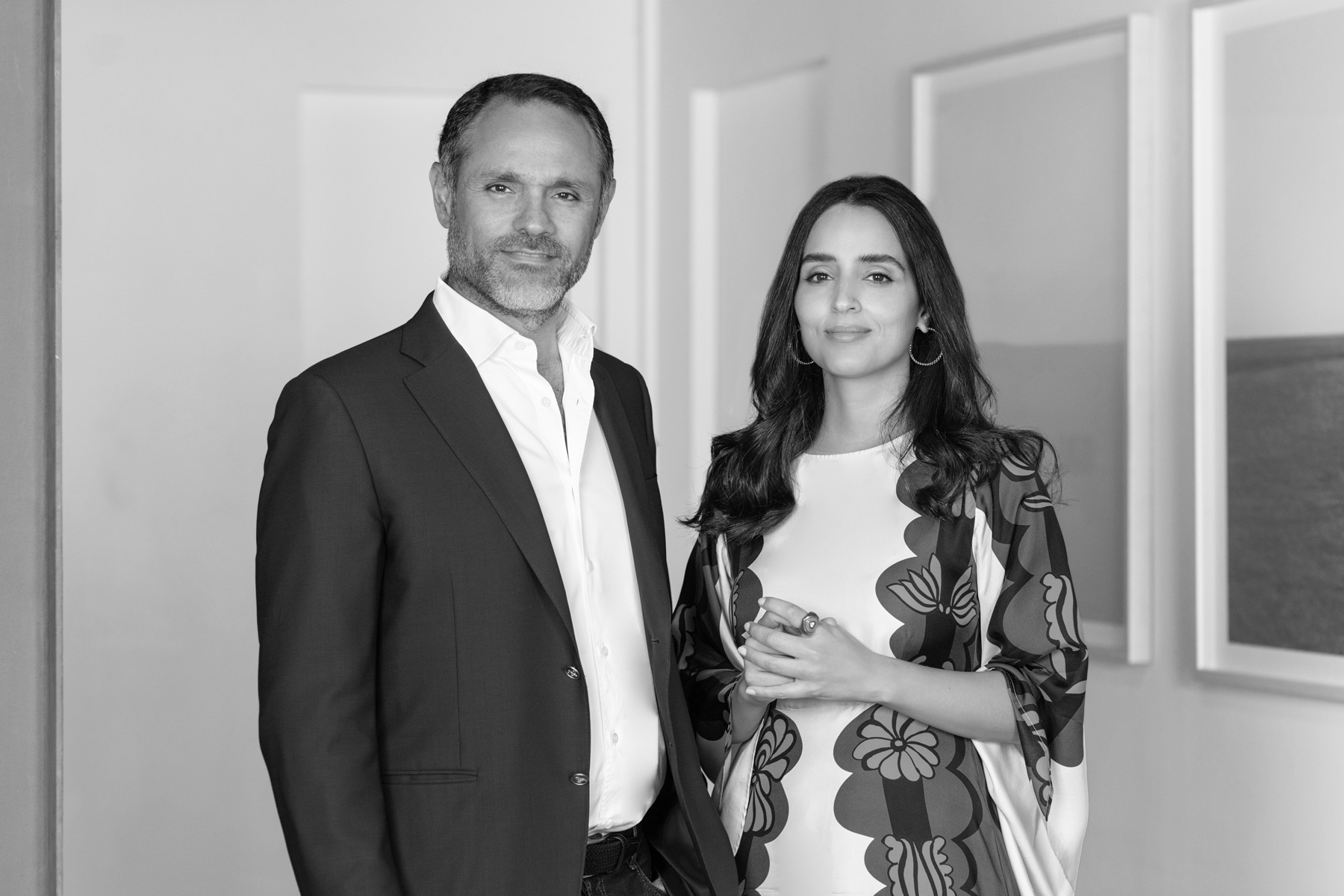
Project Manager
Edna Bettencourt
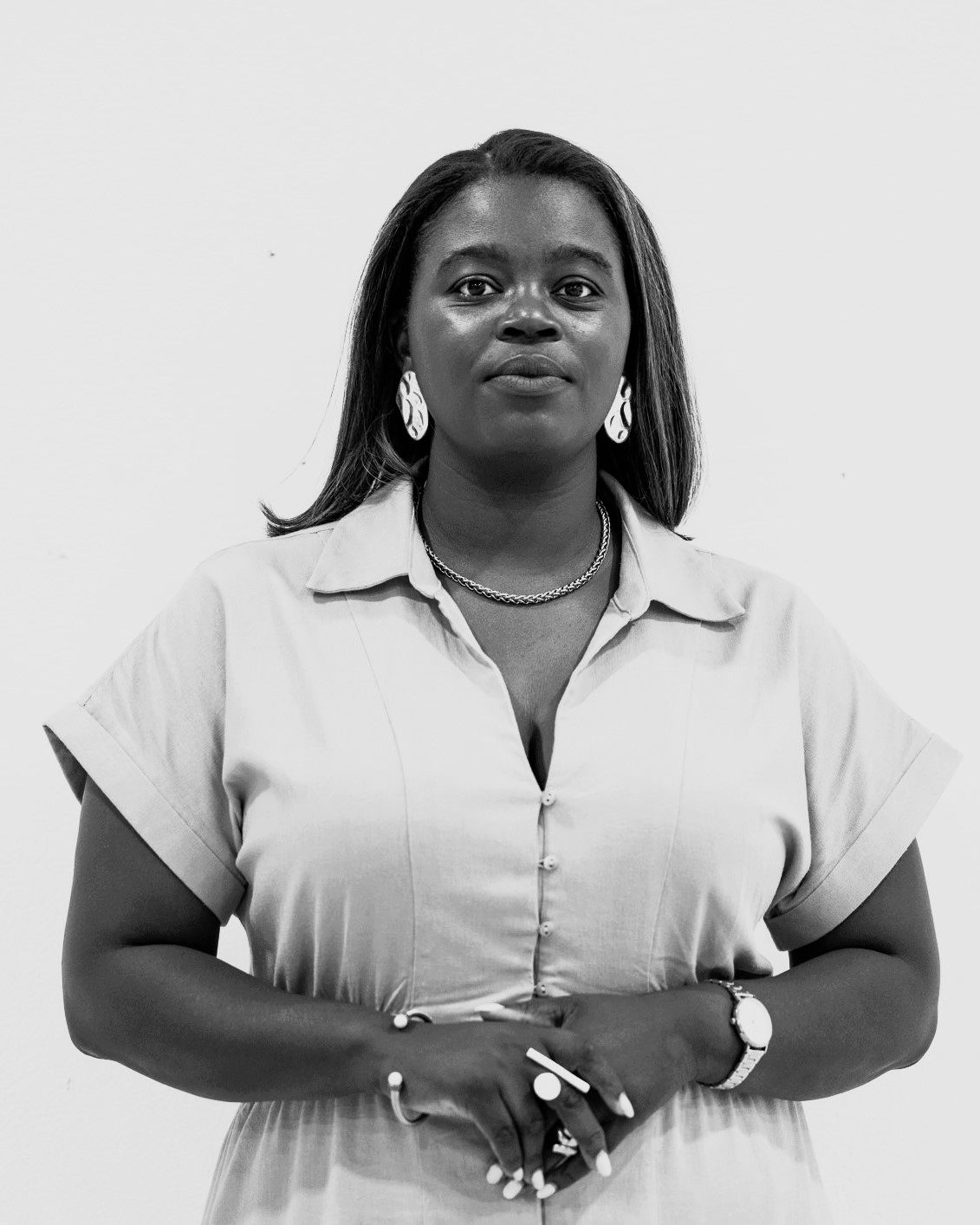
Artistic Committee
Azu Nwagbogu Tandazani Dhlakama Thiago de Paula Souza
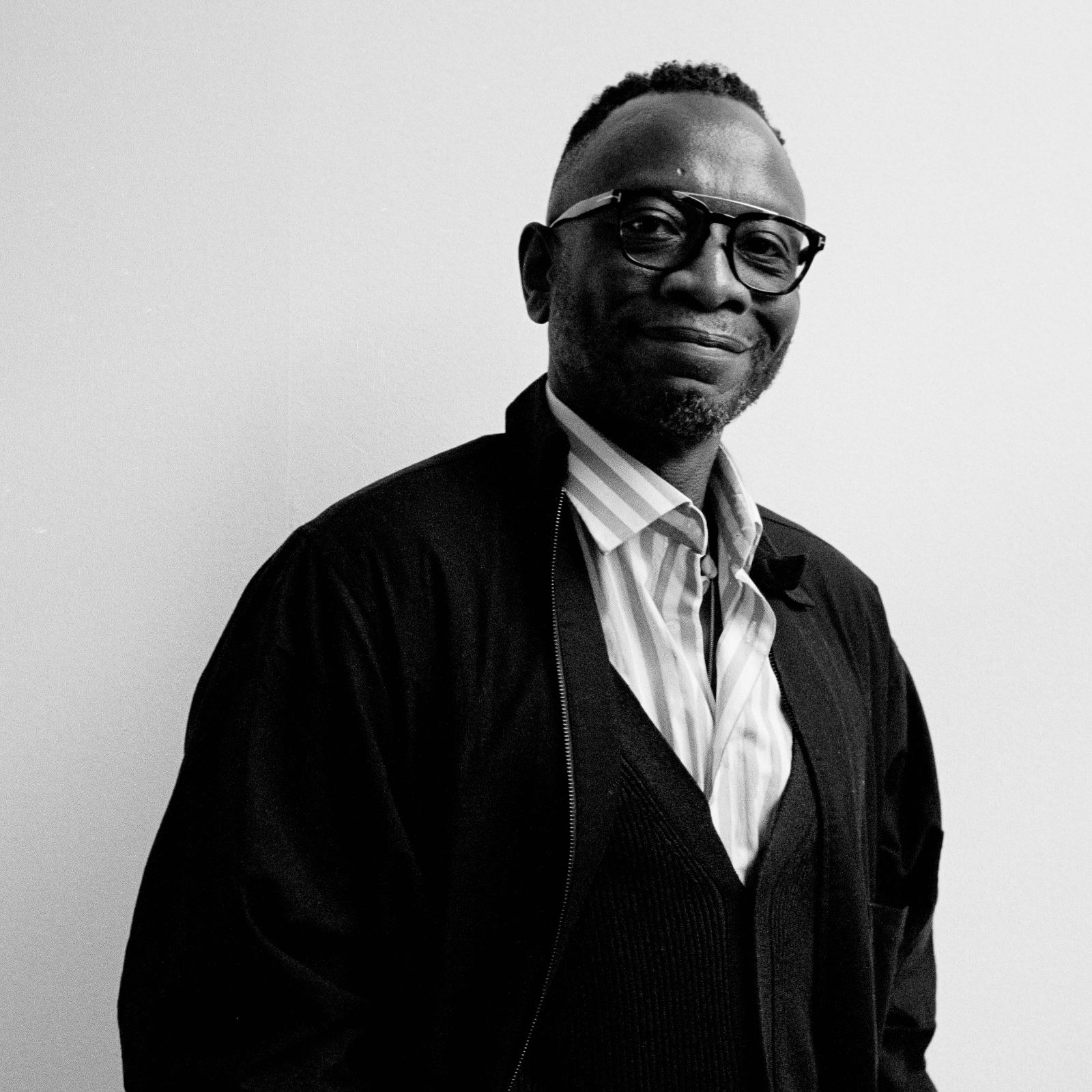
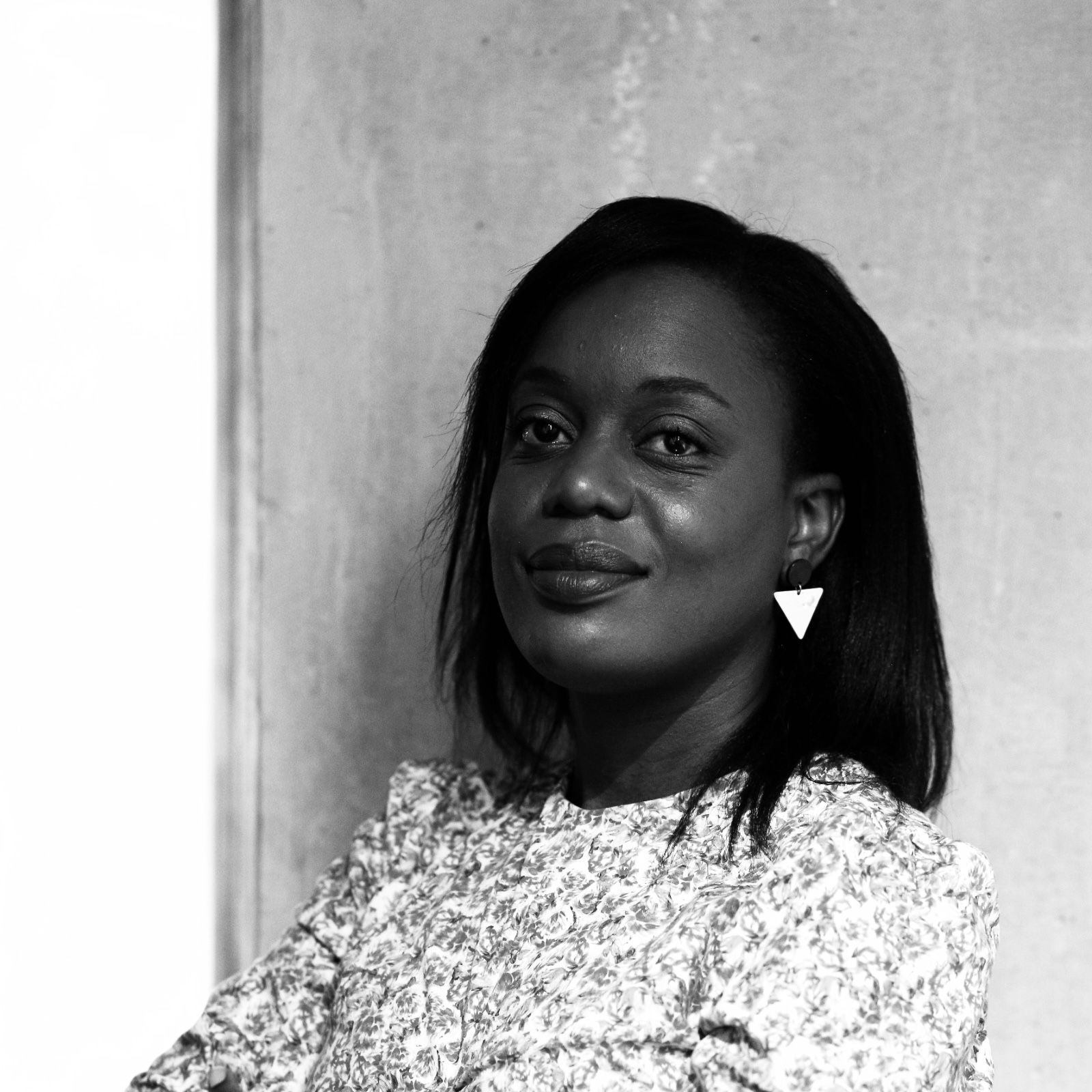
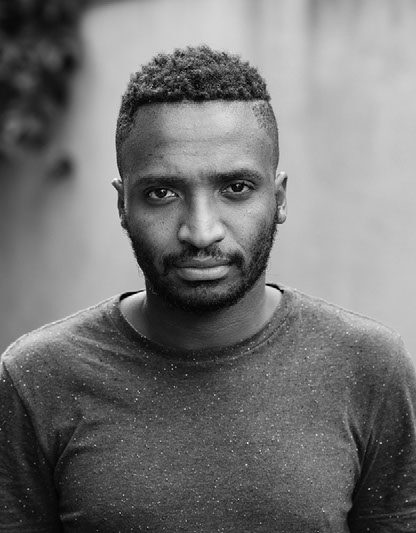
Advisory Board
Diana Campbell N'Goné Fall Samy Ghiyati Hala Khayat Jozef Smets Suzana Sousa Mercedes Vilardell Paula Nascimento





